The cost of traveling Europe: real budget numbers from 9+ years of travel

What is the real cost of traveling Europe?
How do you afford to do it full-time?
How much do I need to save if I want to travel in Europe for a year (or two years or a month or six months)?
As someone who has been traveling full time for nearly nine years, most of that time in Europe, these are probably the questions I get most often about my lifestyle.
Money, unsurprisingly, is the biggest obstacle people think they’ll face on the road. Because if vacations are so pricey, wouldn’t full-time travel be even more so?
(Psst. Here’s a full breakdown of why it’s not .)
This is why for the last 10+ years, while I’ve been traveling full-time, I’ve kept track of my budgets all over the world. Because the truth is that full-time travel can be expensive (just like staying put can be expensive), but it doesn’t have to be . And the only way I know to prove it is to share my own real budgets.
Today, I’m back to share more budget updates with you. More insights into how I travel full-time and what it costs to live and travel in Europe.
First, though, let’s talk about travel styles…


What full-time travel looks like for me
First, it’s important to say that there’s no right or wrong way to travel full time . There’s no standard. Every person I know who does it does it differently .
I have friends who circle back to their favorite places every single year. I have friends who are always chasing new adventures. I’ve met digital nomads who live out of hostels and move every few days and nomads who spend a year or more in one place.
So, before I dive into how I travel, I’ll caveat it by saying that my way is not the way . There are people who travel on a much lower budget than mine and people who travel on a higher budget than mine. There are people who travel faster and people who travel slower. This budget breakdown is based on my experiences and my experiences alone.
Okay, so what are my experiences ?
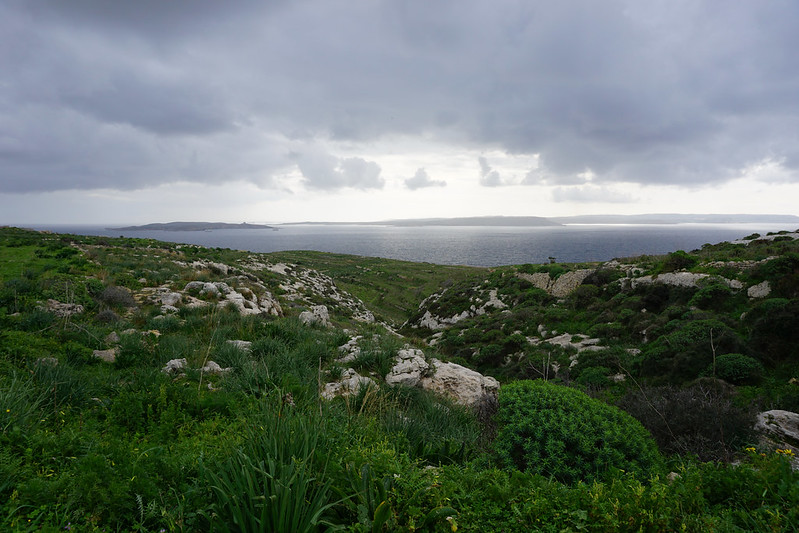
For the first few years, I traveled solo with my dog . For five years, I traveled as part of a couple (though my budgets here on the blog reflect my half of shared expenses + 100% of my personal expenses). And now I’m back to solo-girl-with-dog-takes-on-the-world. ( Here’s a comparison of costs solo vs. traveling with someone else .)
I mostly travel around Europe, though I’ve also done a bit of North and South America in the past few years (and before I hit the road full-time, I visited every continent except Antarctica).
I prefer to stay in one place for at least a month (and sometimes two or three) and I tend to rent comfortable apartments in local neighborhoods. If I’m staying in a hotel or hostel, it’s usually only for a weekend trip or a travel day.
I’m a foodie through and through, so I devote a large portion of my budget to good, fresh, usually organic food and I eat out pretty regularly, especially if I’m in a place known for its cuisine.
I work part-time (on writing books , content strategy and copywriting ). This means big chunks of my week are devoted to work, so someone retired or vacationing is likely to spend quite a bit more than I do.
And in my spare time, I love to cycle, hike, read, explore, and eat, most of which is cheap or free and keeps entertainment budgets on the low side. I rarely do museums or indoor attractions.

The cost of traveling Europe: monthly expense breakdown
Before we get into individual budgets around the world, here’s a breakdown of my general monthly expenses and how I approach them:
Housing : This was my biggest expense in the US, and it’s my biggest expense now. From 2012 to 2015, when I was traveling solo, I spent about $1,000 per month. In 2015 to 2021, my partner and I split the rent, so we could afford a nicer space and usually keep our individual spending on the lower side. I shot for under $800 per person per month and we often came in under $600 each. Now, solo again and with accommodation prices having risen over the years, I’m upping my housing budget to $1,500. I’ll still try to come in under when I can, but that’s my new ceiling.
So, what’s the secret to affordable accommodations while traveling in Europe? Traveling slow. Monthly rental costs are significantly lower than nightly or weekly rentals. On sites like Flatio and Airbnb, monthly discounts run anywhere from 20% – 70% .
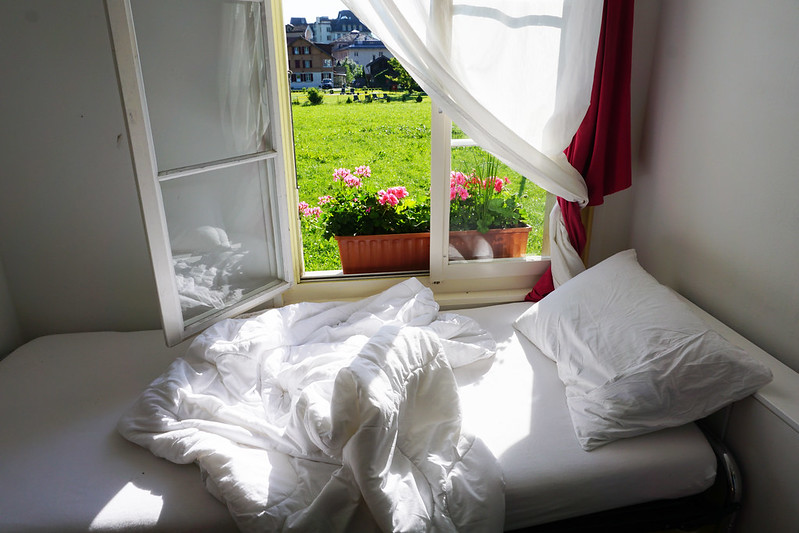
Food: Perhaps unsurprisingly, this foodie’s second highest expense is meals. I track my spending on groceries separately from my spending on eating out. I don’t put a budget ceiling on groceries because eating fresh, high-quality food is really important to me and I’d rather spend a bit more on groceries (and a bit less on other things) than take shortcuts with my health or joy.
In the states, I shopped at organic grocery stores and tried to buy healthier options, which were often a bit pricier. In Europe, I shop at fresh markets, local butchers, and tiny bakeries most of the time and stay away from imports that might have questionable chemicals or ingredients.
I always strive to only buy what I need and to buy it in the best quality, most local form I can. I mostly cook at home instead of eating out and when I do eat out I go for quality over quantity.
Recent grocery budgets have run about $393 ( Zagreb, Croatia ), $614 ( Thun, Switzerland ), $653 ( Bad Ischl, Austria ), and $429 ( Tartu, Estonia ). Eating out budgets in those same locations were around $257 (Zagreb), $0 (Thun), $41 (Bad Ischl), and $88 (Tartu). This means totals for those three places landed at $650 (Zagreb), $614 (Thun), $694 (Bad Ischl), and $517 (Tartu). As you can see, food spending varies, but not enormously. If you read my older budgets, you’ll also notice that the average has gone up over time (which makes sense, because inflation).

Transportation: Since I tend to stay longer in one place, transportation costs generally run pretty reasonable (e.g. far less than I spent when I owned a car). Every month or two, I buy a long-distance train ticket or two, and maybe once or twice a year I take a flight (though I try to fly as little as possible both because I hate flying and I try to be conscious of my environmental footprint).
In between big train journeys, I choose to walk whenever possible (which, in Europe, is nearly always) and only take buses and metros when the weather is walking-prohibitive, if the walk would be more than an hour long, if I’m carrying something heavy, or if I’m in a particularly busy city and the walk would be crowded or stressful.
These days, I spend anywhere from about $25 (Prague unlimited monthly transit pass) on a month where I’m staying put to $300ish (trains from Rennes, France, to Prague, Czech Republic) on a month when I’m moving from one base to another.

Luna the traveling pooch’s food and care: This varies a little from country to country, but rarely exceeds $200 per month. Luna eats a homemade diet primarily consisting of rabbit, fish, quinoa, and veggies (the diet was created with a veterinary nutritionist and if you decide to do the same, I highly recommend hiring one through your vet), and I’m not very strict about separating her food budget from mine, so expect that some of the grocery budget is actually going to Luna.
As with human health care, I’ve found vet care to be significantly more affordable in Europe (compared to the US). In Latvia, four injections, a blood test, two weeks of pancreatic enzyme pills, a vet consult, and an exam cost just over $100. In Dubrovnik, Croatia, in a similar vet emergency, the bill for the sedation, IV fluids, blood work, x-ray, exam, anti-nausea shot, and 100 days worth of pancreas pills was about $150. In the US, the cost would have been at least tripled in each of those cases. A single blood test in Colorado cost us upwards of $200 last time we were there.
Entertainment/fun money: When I’m traveling, most of my activities are free or cheap, so this line item is always pretty small compared to the others.
Supplies: These tend to run less abroad as well, in part because I am careful about what I buy, since I carry everything on my back, and, in part because I’m less bored and thus feel less of a need to shop. The ironic and wonderful thing about this is that the things I buy are often higher quality and more expensive, yet I generally spend less overall than I did in the states.
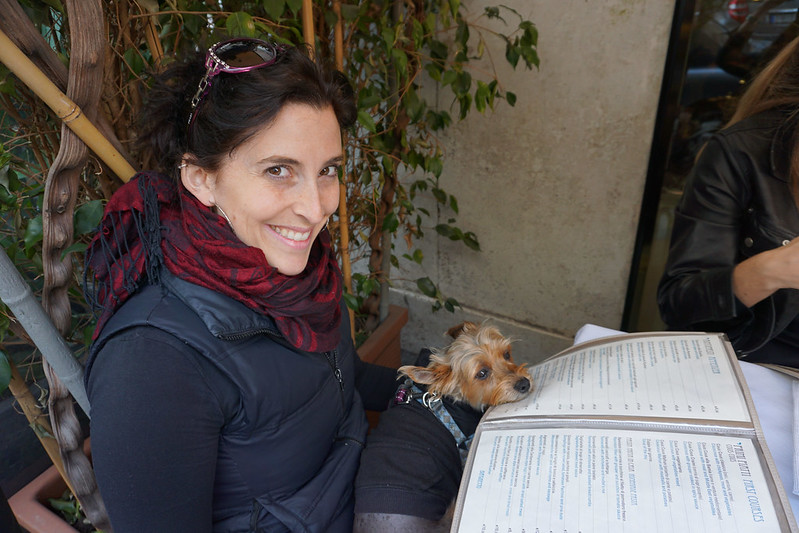
Health insurance and healthcare : Since I’m currently based in Portugal, I’m relying on the local health system. While traveling more extensively, I previously paid $268 per month for GeoBlue insurance that covered me anywhere in the world except the US. Before that, I tried travel insurance through World Nomads, which I found wildly frustrating (despite marketing themselves to travelers, they require you to jump through a LOT of paperwork hoops that require access to printers, scanners, and copy machines) and IMG Global, who ignored my emails and took months upon months to even acknowledge my claims after I was hospitalized on Malta. I would not recommend either company.
For anyone who’s used a healthcare system abroad, it’ll come as no surprise that pretty much everywhere in cheaper than the US. Pre-Obamacare, I paid $150 for three months of birth control pills in the US. A three-month supply (and a doctor visit to get the prescription) in Germany cost me under $100. In Switzerland, that number dropped to around $50. And in Vietnam, the same pills (same ingredients, different brand name) were $10 and available over the counter.
In all, I try to keep monthly spending under $2,500 (not including my business spending). And even with this as my budget ceiling, I often come in under. A few months ago, I did the math on the 30+ real Europe travel budgets linked below (scroll down for links) and the monthly average came in at $1,637 .

For those who’d like a more detailed look at my monthly budgets around the world, here they all are categorized by price range (click on the links for in-depth details on the budgets):
My real monthly budgets
From cheapest to most expensive monthly budget. Click on each location for a more detailed breakdown.
Non-European locations are marked with an *. My favorite places appear in bold. Cost is in parentheses. And I’ve indicated the year the budget is from (obviously account for some inflation when using budgets from 10 years ago) and whether the budget was solo travel or traveling with a partner/friend (partnered travel typically means lower housing costs).
Under $1350 per month:
Konjic, Bosnia and Herzegovina / one month ($1157) 2017 / partnered
Labin, Croatia / one month ($1175) 2021 / solo
Tartu, Estonia / one month ($1213) 2020 / partnered
Tulum, Mexico / one month ($1232)* 2018 / partnered
Kotor, Montenegro / one month ($1253) 2019 / partnered
Mostar, Bosnia and Herzegovina / one month ($1296) 2017 / partnered
Sayulita, Mexico / one month ($1301)* 2013 / solo
Riga, Latvia / one month ($1313) 2019 / partnered
Split, Croatia / one month ($1317 & $1241) 2019 & 2013 / partnered & solo
Zagreb, Croatia / one month ($1337) 2018 / solo
Playa del Carmen, Mexico / one month ($1350)* 2013 / solo

Under $1,500 per month:
Taormina, Italy / one month ($1364) 2017 / partnered
Porto, Portugal / one month ($1366) 2022 / solo, living full-time here
Kranjska Gora, Slovenia / one month ($1385) 2017 / partnered
Toledo, Spain / one month ($1388) 2015 / solo
Kobarid, Slovenia / one month ($1422) 2015 / solo
Brasov, Romania / one month ($1433) 2018 / partnered
Dubrovnik, Croatia / one month ($1443) 2017 / partnered
Tallinn, Estonia / one month ($1460) 2019 / partnered

Under $1,700 per month:
Interlaken, Switzerland / one month ($1558) 2019 / partnered
Ljubljana, Slovenia / two weeks ($808) 2015 / solo
Bad Ischl, Austria / one month ($1618) 2020 / partnered
Rennes, France / one month ($1648) 2018 / partnered
Nerja, Spain / one month ($1689) 2015 / solo
Edinburgh, Scotland / one month ($1697) 2012 / solo

Under $1,800 per month:
Ljubljana, Slovenia / second stay, one month ($1735) 2017 / partnered
Grenoble, France / one month ($1739) 2018 / partnered
Prague, Czechia / one month ($1752) 2018 / partnered
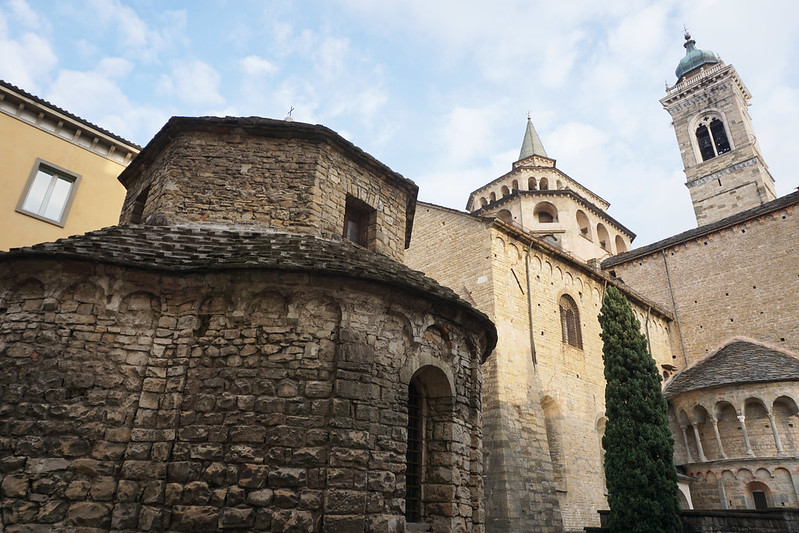
Under $2,000 per month:
Perugia, Italy / one month ($1882) 2013 / solo
Flagstaff, Arizona / one month ($1893)* 2016 / solo
Rome, Italy / one month ($1911) 2017 / partnered
Chamonix, France / two weeks ($962) 2015 / solo
Vancouver, Canada / one month ($1988)* 2016 / partnered
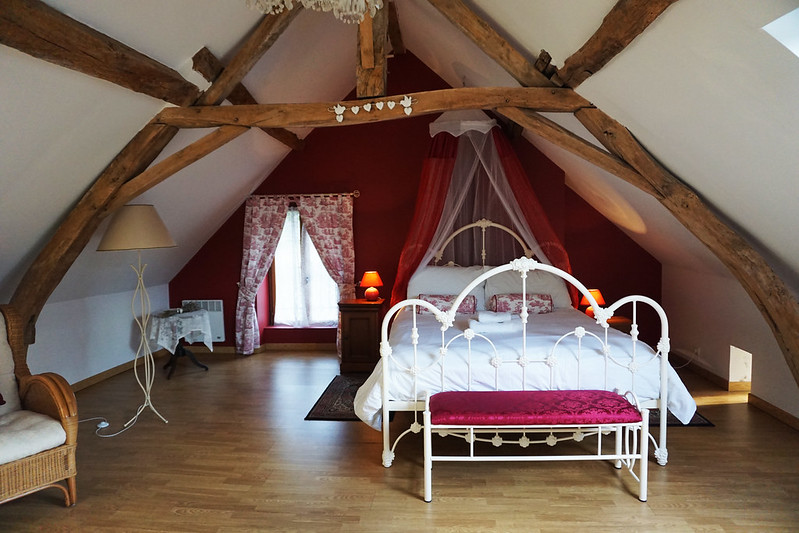
Over $2,000 per month:
Lauterbrunnen, Switzerland / three monthly budgets compared (varies) 2015 (and before) / solo
Amsterdam, Netherlands / two weeks ($1008) 2015 / partnered
Biarritz, France / one month ($2029) 2014 / solo
Innsbruck, Austria / one week ($511) 2018 / solo
Paris, France / one month ($2118) 2013 / solo
Thun, Switzerland / one month ($2124) 2021 / partnered
New York, New York, USA / one month ($2297)* 2018 / partnered
Zagreb, Croatia / one month splurge! ($2320) 2021 / solo
Opatija, Croatia / one month splurge! ($2897) 2021 / solo(ish)
Cycling across France / one month ($3091) 2015 / solo
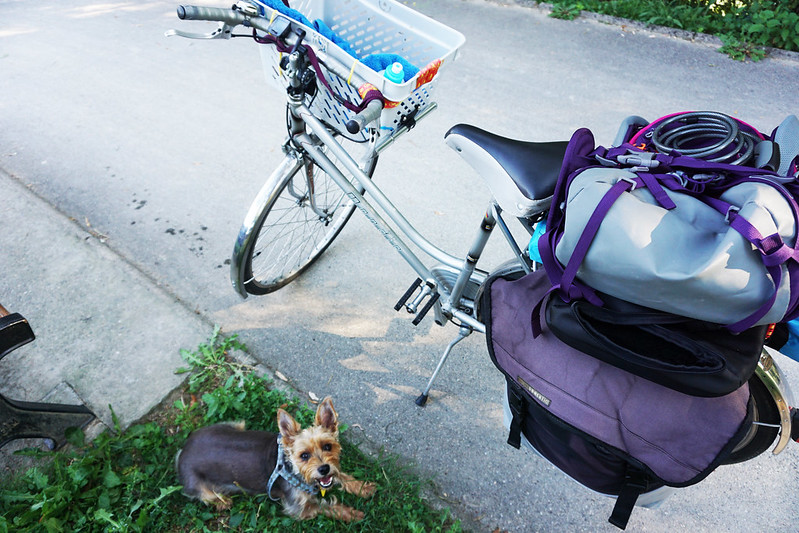
My budgets for shorter trips
Now, what about short trips? Weekends, overnights, week-long vacations? I’ve got some real budgets on those too, though they’re fewer and farther between for me. Here are they, from cheapest to most expensive per-day:
Vrbovsko, Croatia / 3 days ($87 / $29 per day) 2021 / solo
Plitvice Lakes National Park, Croatia / 3 days ($184 / $62 per day) 2021 / solo
Denver to LA road trip / 2 days ($207 / $103 per day)* 2012 / solo
Tbilisi, Georgia / 10 days ($1050 / $105 per day)* 2019 / partnered
Colmar, France / 5 days ($539 / $108 per day) 2019 / partnered
Paris, France / 5 days ($663 / $133 per day) 2019 / partnered
Emilia Romagna, Italy / 5 days ($776 / $155 per day) 2014 / solo

Business costs
It’s worth noting that you won’t see any business costs in the above budgets. My business expenses vary greatly based on what I’m working on, how much active marketing/sales I’m doing, and what kind of side projects (blogs, self-published books, etc.) I’m taking on.
The few consistent things I pay for business-wise include:
Subscriptions for Microsoft Word, Adobe Photoshop, cloud storage, and a media subscription or two.
I now own a cell phone (turns out living full-time in Portugal requires one), but I also need a US number, so I use TextNow on my iPad for US calls/client calls. The basic number is free (because they serve up ads), but I pay a small fee in order to get a few extra benefits.
Business insurance , which runs me about $50 per month, and a yearly fee (about $100) for my registered agent to handle my LLC renewal and receive any business mail for me.
Once a year or once every few years, I also have expenses for web hosting and domain renewal for the website. This usually costs me less than $100 per year.

Taxes: Finally, a note on the most unavoidable of all expenses – taxes. In general (though not in every case), you are expected to pay taxes in the place you reside. If you live in the US, you pay in the US. If you live in Switzerland, you pay in Switzerland.
If you’re from the US, you’ll always have to file US taxes even if you’re a resident abroad, but you may be eligible for the FEIE , which is basically there to prevent you from paying double taxes. (Rather than get into it further here, I’ll suggest you book a consult with a US tax accountant. Many do free first consults and they will know so much more than I do about all the ins and outs of your particular situation.)
NOTE: If you’re paying in the states and self-employed, taxes are due quarterly, not yearly. This means when I’m paying in the States, I sit down every quarter and calculate the taxes I owe and send the government a check. At the end of the year, I hire a tax whiz (which generally runs me another $350 – $500) to help me make sure everything has been paid and filed properly.

Air travel expenses (& other big one-time costs)
There are a few things I don’t budget for monthly (or include in my monthly budget posts) because they are yearly or quarterly expenses and may vary greatly from month to month. One of these things is plane tickets .
I’m not a traveler who flies a lot, preferring to explore one continent thoroughly at a time and take trains where possible both because it’s simply a more pleasant way to travel, because it’s more environmentally responsible, and because the older I get the worse my motion-sickness gets, so flying has stopped being even a little bit fun.
So, since I’m not buying them monthly or even bi-monthly, I usually don’t track plane ticket costs monthly and instead factor them into my budget on a quarterly or yearly basis.
In 2021, I took four flights (one-way Switzerland to Croatia, one-way Croatia to Portugal, then round-trip Portugal – Croatia to collect my visa). In 2022, I only took one (one-way from Paris to Porto – I took trains in the other direction).
Replacing technology (my laptop or tablet), big one-time medical expenses, and other large one-time purchases (like my folding bike) are also something I look at quarterly or annually rather than monthly.

Saving money while traveling full-time
Finally, for me, part of feeling comfortable starting my business and then, a year or so later, leaving to travel full-time was having a decent financial buffer in the bank. I was advised while starting my business to have at least six months worth of expenses in the bank just in case. Being a bit neurotic about money, I waited until I had 10 months and enough clients that I was already almost breaking even.
Similarly, when I started traveling, even though I would be working normally and hopefully earning normally, part of feeling comfortable was the knowledge that I had a buffer. If all my clients ditched me in month one, I could live for a year without income (assuming I lived relatively frugally).

Everyone operates differently on this. When my aunt started her business, she quickly went into debt. Yet she was wildly successful over time. I’ve also heard stories of those who moved to a cheap part of Asia to start their business, which meant the limited funds they had could last them much longer while they got things off the ground. I know one man who told me it’s going to take $150,000 to start his business. Another woman told me a success story that started with just 3,000 euros in the bank. An old roommate told me she’s been traveling and working for years with just a few hundred euros to her name.
My income is variable , but I also try to set aside a decent percentage each month for the future –both to tackle unexpected expenses or emergencies, to be prepared for my yearly tax bills, and, of course, to create more security for myself in case I ever cannot or no longer want to work.

Any expenses you tend to have during travel that I haven’t mentioned? Any questions about travel expenses and budgeting? Toss them in the comments.
Share this post!
You may also like
My cost of living in montenegro: one month in kotor as a digital nomad, how much does it cost to spend a month in ljubljana, slovenia, how much does it cost to spend two nights in vrbovsko, croatia, how much does it cost to spend a month in northern slovenia, how to save money (or maybe even make money) on your next vacation, how i make money while traveling the world full-time, leave a comment cancel reply.
Save my name, email, and website in this browser for the next time I comment.
17 comments
This is so cool. Thank you for this.
I’m living in a tiny house on a farm right now, but after my kid graduates high school I – or perhaps both of us – have considered living like this for a while. I’m building up my author/editor business, and it certainly would be nice to get around. I get really restless staying in one spot too long.
Glad you enjoyed it! And good luck!
Idnloke to know more about working abroad
If you are looking for info on my freelance career, here’s the skinny: https://gigigriffis.com/how-i-make-money-while-traveling-the-world-full-time-behind-the-scenes-with-a-location-independent-writer/
If you are looking for info on jobs abroad, I’m sorry to say I don’t have much info on that.
I’m not brave enough to try this with my husband and two kids, but I loved reading about how you do it! Kudos!!
Thanks for sharing your experience! This gives us an idea of how to budget for travel in Europe.
I am really enjoying following your adventures. I am waiting for a Portuguese residency permit and will be dipping my toe in the nomadic water soon. One question I am grappling with – what do you do for health insurance when you are back in the US?
For short trips, I get a temporary travel insurance plan (something like World Nomads even though their paperwork hassles are epic). But I think many European health plans also cover emergencies outside Europe, so might be worth looking into whether your Portuguese insurance will cover you once you’re resident there (I know in Switzerland the insurance we looked at covers US travel).
Amazing post!! Thanks for the detailed breakdowns. So happy to have found your site – it’s SO helpful and informative for slow travelers.
Great post! Thanks for sharing these insights with everyone. I wonder if you might answer a tax question. If one were to travel 1-3 months in each country, does that mean you need to file taxes in each of those countries plus the US?? I get if one were in the same country for over 6mo then that country would probably be considered the country of residence for tax filing purposes but what about when hoping county to county, never staying in any one country longer than 3mo??
Thanks in advance for any insights on my tax question!
Most countries don’t consider you a tax resident until you’ve been there more than 180 days in a year. Most tax accountants will do a free consult if you would like a professional perspective on your specific situation, though!
i’m a new dog owner (about 9 months) and also planning for a 6-month travel sabbatical in about 1.5 years. i’m still debating whether i should take my yoshi with me (he’s a 13 lb chiwienie). I’ve never flown with him before, and I’m wondering if you have any tips and tricks to help ease him into the process? you’re an inspiration!
Thanks! If you haven’t already, I’d read the Luna the traveling pooch section of the blog. https://gigigriffis.com/category/luna/ . There’s tons of stuff in there. The short answer is lots of treats and comfort toys inside the carrier (with the carrier open) in your house to get him used to and feeling safe in the carrier.
Thank you a million times over!
Thanks, Gigi. I needed this. It gives me courage as a single 55 yo American dude. I need some challenge in my life…something to conquer…something that will keep me on my toes. I’ve always suffered from bouts of wanderlust and I’m just plain DONE with corporate health/academic full time work. I did a back-of-the-envelope calculation on my expenses and came out around 2,200/mo traveling mostly in European Union with time in Serbia, Montenegro, B/H, SE Asia, Georgia and Turkey to mitigate the Schengen rules. Any reason you spent so little time in the Balkans? Is it a solo-female traveler thing? Sadly Russia appears off the list. I have spent a fair amount of time there before.
I have savings and a professional license (planning to do consulting over zoom). I plan to work part time (10-12 hours/wk) while honing film photography, reading for pleasure, learning about local history, and making friends. My budget is a bit lighter for accommodations (I don’t mind living in an Airbnb room) and heavier on LOCAL travel. I want to hike and spend time shooting landscapes in the areas I choose. This is a giant question mark in my mind. How to get to these places without a vehicle? I’m a bit reticent about using a scooter and don’t want to spend a fortune on taxi. I’m thinking there might be local bus service that gets me close in many places? Any insights here would be appreciated.
Your style is very much how I view my own journey. Stay in one place 1-2 months to maximize accommodation expenditures, minimize European touristy museums (been there done that—going to 1-2 local gems is my thought), mostly eat at home, and take rail day trips once a month with a night-over. Kudos for avoiding the BIG European cities. That is exactly my plan. I don’ think you could force me to spend time in Paris for more than 3 days, mirroring my aversion to New York, Chicago and LA. Lol.
Once again, thank you for the inspiration! Hit me up on email if you like. If you have any tips on making local friends in the places you traveled, I’m all ears. Stay safe and pleasant travels!
Hey! Glad it’s helpful and good luck!
To your questions:
1) I actually spent quite a lot of time in Croatia (in fact, got a visa for a year after living in Estonia 1.5 years during the whole covid fiasco). The Balkans outside Croatia are a touch trickier because of infrastructure (which goes to your second question, I suppose). There’s less train/bus access, so they are trickier to get to and trickier to get around without a car (and I detest driving). Croatia definitely has better infrastructure than some other spots, though I did enjoy my jaunt into Bosnia and Montenegro.
The other reason is the dog. They tend to be the less dog-friendly options in Europe. I felt fine as a woman traveling solo, but the dog complicates places like Bosnia (which I did spend some time in, despite this) and Albania.
2) The Schengen countries (for the most part, with a few exceptions) have great public transit, so I relied on that. For hiking/wilderness areas, I find that there is transit but it sometimes runs less frequently, so I just had to plan well and sometimes find myself a base very close to the wilderness areas to stay for at least a few days (I did this, for instance, for Bohemian Switzerland in Czechia). Other places (Switzerland, France) often have trails very integrated into every location and/or transit to even the remotest spots.
The places that are a bit more tricky tend to be places on the edges of Europe (the center is very well connected). So I had to get more creative in places like Portugal, Spain, and Estonia, which have somewhat less extensive public transit and more car culture. (Even so, I have never rented a car in any of those places and have relied on everything from infrequent buses to my bicycle to taxis or rideshares.)
Great! Thank you for the insights! I poked around your blog and found solid information on making friends. Funny, having a meal at home with a handful of people is definitely my style. :) I enjoyed many of the images on your blog. Particularly one from Italy with the path going along that turquoise river. Sublime! Excellent information on the hiking trails in different countries and your tip on staying close to trail systems for a handful of days. Lastly, your travels helped me to discover the inclusion of Portugal to the digital nomad parade! That’s particularly exciting to me as my younger brother and fam are planning a permanent move to Portugal (getting tired of Seattle/US health care/foods). Looks like potentially a more lengthy process? What an amazing time to see the world and work from anywhere! New DM visas are also popping up in SE Asia. Cheers!
This website uses cookies to improve your experience. Opt-out here if you wish! Accept Read more
Share on Mastodon

- January 19, 2022
Budget for a trip to Europe: How much do i need?

Table of Contents
That Europe is one of the most sought after destinations for tourism travel everyone already knows, we even have a list of 5 most visited countries in Europe and their incredible sights that certainly corroborates this conclusion! However, planning this trip can be a difficult task, since there are so many things to think, research and organize that can leave you lost, even more with the high costs that are a big problem for your plans, right? That’s exactly why we are here! We can help you with the basics or, if you prefer, you can start by taking a look at how to plan a trip to Europe during the pandemic and then come back here to create your budget for a trip .
So, have you gone and come back? Or did you prefer to stick around here? Well, roll your mouse over and find out all you need to know about how to make a cheap trip to Europe !
ON THE POINT: Writing down expenses
To plan a trip you should go through a basic itinerary of where you want to go, how many days you intend to stay, which places to visit and make reservations . This will all be part of your budget. As we are here to help you we recommend that you take into account two very important things: the external conditions and the standard expenses .
External conditions
When we talk about external conditions, we talk about a tip that can change everything! This is because each one of them greatly influences your pocket when it comes to buying and booking. They are:
- The country : some countries are cheaper than others and the difference can be quite significant, as you can check in Little Money: 3 countries to visit in Europe with little money ,
- The period : times with less tourist movement is called low season, and this term, like its name, is synonymous with low prices, ranging from tickets to accommodation and attractions.
- The European currency quote : the value of each currency is constantly changing and it is important to be aware of its current value to catch its best times.
Standard spending
The standard expenses are the essential costs of the trip – or at least the basics of a complete and still economical trip – that you should write down considering the above conditions and the time you intend to stay abroad:
- Return air tickets;
- Travel insurance;
- Accommodation;
- Tourist attractions.
Now that your expenses are organised, open your browser, take out your pencil, paper and calculator and get to work!
WHAT TO DO TO SAVE MONEY?

Before starting the calculations, it is best to follow a few steps thinking about the external conditions of your trip, so you will have an overview of the expenses, besides finding the cheapest prices for when you calculate the rest of your budget for a trip.
Step one: plan everything in advance!
- When it comes to planning, even more so when you want low prices, you have to be willing to be flexible with dates and times , plus the earlier you book the better it is!
- So the first step for your planning and subsequently your budget is to choose dates well ahead, such as booking tickets 2 to 6 months in advance .
Step two: look for a cheap city!
- The cities located in Eastern Europe are a bargain! With a list that includes Budapest , Krakow , Istanbul , Prague and Sofia and prices of up to 40 euros per day .
- Others between Greece, Italy, Spain and Portugal have a cheap average spend, between 50 and 60 euros per day .
- And there are still some very popular tourist destinations such as Berlin , in Germany, London , in England, Paris, in France, and Rome , in Italy, as well as Amsterdam , Barcelona , Brussels and Lisbon , with average prices ranging from 60 to 70 euros per day .
Step three : choose the best time!
- The period of your trip matters a lot, after all you can catch the low season at the right times, besides, of course, less suffocating with queues and crowds.
- In most places it occurs in the winter period as seen in some countries mentioned in 5 incredible places to visit in the European winter , starting in late autumn . From November to March are the months with the lowest prices .
- Spring is also a good time. In general, the landscapes in the season of dry leaves and flowers in bloom are beautiful and unite natural beauty with good prices.
Step four: keep an eye on the European currency!
- The value of the European currency changes constantly and even small amounts make a big difference when it comes to paying.
- Many hostels and locations only accept European currency.
- Therefore, you have 2 options: one is to convert it when calculating the expenses, always keeping in mind a margin of error; and the second and more practical option is to exchange the currency of your country for the Euro, so you reduce the difficulties of your trip.
- As the currency can overvalue or depreciate depending on the weather, it is good to exchange in advance.
- Also bear in mind that although the Euro is the official European currency, some regions make use of other currencies such as England with the Pound Sterling and the Swedish Krona and Czech Koruna , respectively of Sweden and the Czech Republic.
Step five: search for reliable sources and websites!
- Once you find it, you can search and book (in advance) your tickets and accommodation.
Lean more at How Much Does it Cost to go to Europe?
PRE-TRIP EXPENSES
After following the recommended steps, start to really calculate each of the standard expenses, starting with those that must be done in advance, because then it is less of a worry and it is enough to save for when the day of the trip comes.
As the item that should be purchased the furthest in advance, tickets should be your priority, and remember:
- As the goal is cheap tickets, we will follow the previous tips aiming at the low season period;
Flights booked in December with a date in March of the following year, that is 3 months, 4 days of stay in the city, being the time that interchanges the outward and return trip, and for 1 adult in economy travel, stay around
- Flight with (1) connection NY – Lisbon: from 181,22 euros;
- Direct flight NY – London: from €257.73;
- Direct flight NY – Paris: from 250.83 euros
- Direct flight NY – Rome: from 316.04 euros
* These cities were just some examples, the values may change depending on the place of embarkation and disembarkation.
Ps: don’t forget to look for flexible airlines! So, if necessary you can change the date of your trip without problems or having to pay extra for it.
Travel insurance
I’ m sure you’re already tired of hearing about travel insurance when it comes to Europe, right? But that just goes to show how essential it is. And if you’re lost about it, we recommend you check out how to travel safely to Europe during the pandemic in 2023 to learn how important it is. But to put you in context, this obligation is a guarantee that, in case you have an accident or something similar happens, you will be able to pay for the medical-hospital expenses.
So what do you need to know about them for your budget for a trip?
- Which countries require travel insurance . Not all of them, but many countries do, including the member countries of the Schengen Treaty (if you haven’t seen the first article mentioned, take the opportunity to check it out now, there is a list of all of them);
- What insurance covers . Of the main services offered from travel insurance, medical-hospital and pharmaceutical costs are top of the list, however insurance still covers other issues such as:
- Flight cancellation due to medical emergency or otherwise;
- Tracking and compensation in case of lost luggage;
- Compensation for disability or accidental death, as well as funeral assistance;
- Legal costs and bail bonds;
- The best plan for you . Depending on the length of your trip or what collateral you find most essential, you can choose an insurance plan that covers what you want, for the most affordable price. You can do this using simulators.
- The price of insurance is from 2,35 euros per day;
- From 13,80 euros per day without luggage insurance;
- And a more complete plan around 20 euros per day.
Ah, keep an eye on the European Travel Visa! Soon the Schengen Visa Waiver will come into effect, which will have a fee for the service, but its cost-benefit is also great, as it will be valid for 3 years. You can see more in United States and Europe: will you need a visa in 2023 ?
Accommodation
As well as the time of year, the country and the location of the accommodation you choose will also influence the price of the accommodation you choose, whether it is a simpler or more elegant hostel, budget hotels or flats for rent, always keeping the focus on the low price.
Best hostel options
- Lisbon (daily rate – 1 person): from 12,49 to 78,47 euros;
- London (daily rate – 1 person): from 12.24 to 70.39 euros;
- Paris (daily rate – 1 person): from 21,81 to 39,08 euros;
- Rome (daily rate – 1 person): from 12.56 to 53.52 euros.
Best options for flats
- Lisbon (daily rate – 1 person): around 53.83 to 152.86 euros;
- London (daily rate – 1 person): from around 47.87 to 166.67;
- Paris (daily rate – 1 person): from 45.36 to 137.64 euros;
- Rome (daily rate 1 person): from about 55,40 to 180,80 euros;
Best hotel options
- Lisbon (daily rate – 1 person): from 12 euros;
- London (daily rate – 1 person): from 18,05 euros;
- Paris (daily rate – 1 person): from 24.48 euros;
- Rome (daily rate – 1 person): from 33,27 euros.
Expenses during the trip
Now that you have seen the expenses before the trip, you need to know how much you will spend during the trip, which on average is around 50 euros per day for one person. Let’s break this down?
Sightseeing and tourist attractions
When talking about saving money, you have to be aware that it requires a lot of searching. Attractions are no different. They can vary a lot, from attractions that cost nothing or have very low prices , as is the case of Serra da Estrela, in the Portuguese winter period, or can be quite high, depending on its fame and how much is demanded.
However, on average the cat cost with attractions is 20 euros per day for a person, enough to visit the main sights. Even because, with the incredible landscapes
that there are, walking a little bit through the streets enjoying the view, is one of the best experiences and doesn’t cost anything! Of course you don’t have to miss out on an attraction you like because of the price, just make sure you control how many you go to so you don’t lose your hand on the budget and a lot of money in your pocket.
Transport when travelling is essential, especially if you don’t want to get lost in unknown lands. And it is even possible to go from city to city only with train rides , so it is a very interesting expense, don’t you agree? But you have to think well about the cost-benefit before spending. So, decide if you want to stay in one city only or travel between several.
- If you choose to stay in only one city, bus or train rides are very cheap, ranging from 1 to 3 euros . You can also buy 24 to 72 hour passes.
- From Lisbon to Madrid: 16 euros;
- From Madrid to Rome: 26 euros;
- From Rome to Paris: 23 euros;
- From Paris to London: 38 euros.
If you are interested, read more about how to travel by train in Europe: the best itineraries!
The cost of food to be cheap just depends on you! There are many famous restaurants in Europe, but the price can be discouraging. However, you can still choose a good option, get to know the cuisine and culture you want without having to spend too much!
- The first tip is: book hotels or hostels with breakfast included ! Even if it doesn’t, opt for the cheapest, so you can spend between 3 and 5 euros .
- The same tip goes for lunch; if possible, eat at the hotel . Or just leave lunch as your “out of town” meal. A simple meal will cost you around 12,56 euros .
- For dinner, you can eat at the hotel, which is much cheaper, or you can try the fast food at those times, which are always cheaper, and can be as low as 5 euros !
- Another cheap option is the “ Tourist Menu “, going for 9 euros .
- And then there are the markets, with excellent prices and a great alternative for buying meals.
- On average, opting for good quality and still economical, your meal will be around 20 to 25 euros per day.
SUMING IT ALL UP: How much does a cheap trip to Europe cost altogether?
After writing down all the expenses before and after the trip, choosing the best periods and following the tips for an economical trip, and taking the average of tickets and hotel accommodation for 4 days, the expense that a person would have to visit Europe for four days is 500 euros . Very economical, isn’t it? With this you can even spend a little more, since it is impossible to do a tour like this and not buy anything or take souvenirs home – which by the way are an expense of about 30 euros a day! And now, do you know everything to plan a budget for a trip and start your journey?
If not, we have a complete budget for a trip: Holidays in Portugal: how much money do I need?
If so, how about doing some more extensive planning and a 10-day trip to Europe?
Want to keep up with our blog?
Get our most valuable tips right inside your inbox, once per month!
- budget for a trip , Europe , travel cheap , travel cheaply , Travel in 2022
Related Posts

Madeira Expedition: Sunrise at Pico Ruivo and Camping in Encumeada
I woke up early, around 6:30 am, my goal there was to capture the best

Madeira Expedition: Lunch at Pico do Areeiro and camp on Pico Ruivo
I woke up there in Pico Alto, it was cold, it was 8 am, I

Madeira Camping Expedition: Funchal to Pico Alto
This is the article number 1 of this series I left work on a Friday

Exploring Lauterbrunnen: A Day in the Swiss Paradise
This was a special Saturday. It was a cloudy morning, rainy weather in Switzerland, and

Swiss Hiking Adventure: Lucerne to Mount Pilatus
That day I had arranged with my cousin to go to a lake near Estavayer-le-lac.

Venice to Lucerne: Exploring Swiss Beauty and Italian Flair
We got up early in Venice to catch the flixbus to Milan. We went from
LATEST ARTICLES
© all rights reserved. 2021.

Travel Europe on a Budget
The Savvy Backpacker
City Guides .\33 a132798-3f3b-4585-954d-7e70cf863447{fill:#231f20}
How to travel europe on a budget | 100+ money-saving travel tips.
My MEGA list of the best ways to save money while traveling Europe on a budget.

I’ve spent the last 10 years writing hundreds of articles helping people just like you travel Europe on a budget, so I thought it might be a good idea to list out some of my favorite money-saving travel tips.
Estimate Your Overall Travel Costs

Before we jump into ways to travel Europe on a budget it’s helpful to give you an estimate on how much it actually costs to visit Europe — after all, having a baseline will help put costs into perspective.
In my experience, I’ve found that most frugal backpacker-style travelers spend around $70-$120/day in Western Europe and $40-$85/day in Eastern Europe. At this level, you can travel fairly modestly without making too many sacrifices — but you’re not going to be living it up.
If you’re on a budget but not a “backpacker” then you can expect to pay around $90-$225/day — your accommodation choice will make the biggest impact on your daily budget.
Note: These are just ballpark figures so your results will vary. Also, these don’t include transportation (i.e. train tickets, airfare, etc.). Learn more about estimating travel costs by reading my How Much It Costs To Travel Europe guide.
How To Find Cheap Flights To Europe
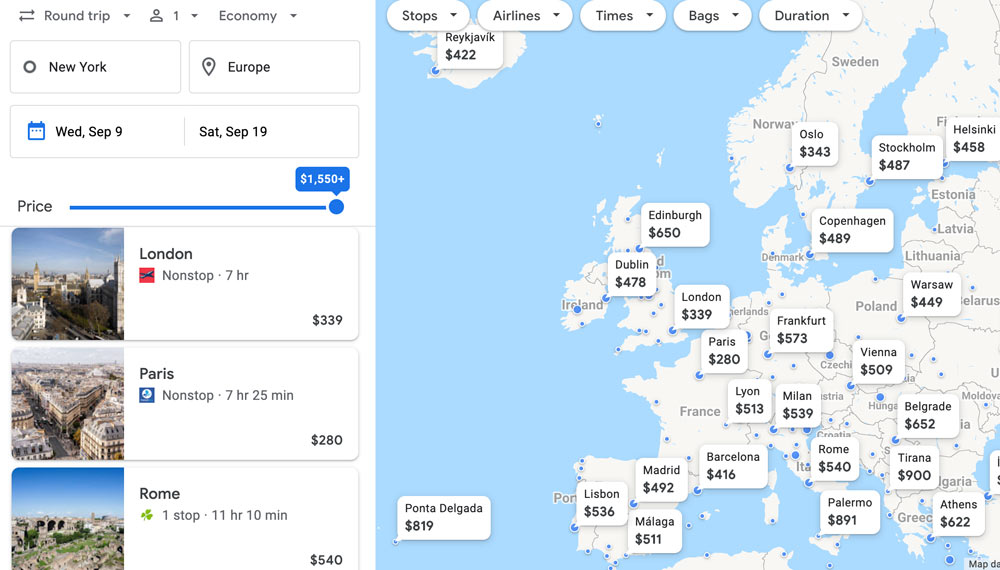
Your first major travel cost will be your flights to Europe as they can cost anywhere from around $400 to $1,400+. There are dozens of factors that go into how much you’ll spend on your airfare but I’ve listed some general strategies to help you get the best price.
Online Flight Booking Resources
There are tons of online resources to help you find cheap flights but after years and years of searching I’ve narrowed it down to a few favorites:
- Google Flights: I’m a huge fan of Google Flights because it allows you to search through multiple routes quickly and they do a great job of organizing the search results. My favorite feature is how you can simply put “Europe” as the destination and it will find you the cheapest destinations. Visit Google Flights
- Momondo and Skyscanner: While Google does a good job of finding most flights, I’ve found that Momondo and Skyscanner can sometimes find cheap flights that don’t show up in Google’s results. Visit Momondo or Visit Skyscanner
- Scott’s Cheap Flights: Finding random deals can take a ton of time so that’s why I’m a huge fan of Scott’s Cheap Flights. SCF is an email newsletter that emails multiple cheap deals every day. Most of the deals featured on in their newsletter are only available for a day or two so this is best for flexible travel dates. Visit Scott’s Cheap Flights
Book Flights Early (But Not Too Early)
In general, your flights will be the cheapest when booked a few months before departure. However, if you book too early you’ll end up paying more because the airlines figure that anyone who books 6-8 months early is dead set on those specific travel times.
On the other hand, booking last minute will also be very expensive since the airlines also assume that you’re locked into that specific travel time.
My strategy is to start looking 5-6 months early and continue monitoring prices over the next month or two. Once I find a price I’m comfortable is when I pull the trigger.
Save On Flights By Traveling Off-Season
Traveling to Europe in the summer is always going to be expensive — it’s hard to get around that. Additionally, Christmas and New Year’s can also be expensive times to fly.
My favorite time to fly is April/May or September/October because you can still score some great deals and the weather is still generally nice.
Of course, traveling during the winter will be the cheapest but then you have to deal with poor weather.
Be Flexible and Save Big
I’ve said it before but it being flexible is the absolute best way to save money on flights to Europe. Even shifting your travel date by a day can save hundreds of dollars.
Switching up your destination airport can also result in big savings.
I love flying direct but it’s usually more expensive than buying a flight that has a layover.
Pay Attention To The Costly Drawbacks Cheap Flights
Cheap flights certainly have drawbacks and many budget airlines tack on all kinds of extra fees and restrictions. It’s important to pay attention to these extra fees as they can make “cheap” flights not so cheap. Here are some things to watch out for:
- Bag Fees: Many cheap tickets only allow a personal item that can fit under the seat so you have to pay for a checked and carry-on bag. Adding a bag can easily cost $50-$80 each way. Some airlines are very strict on weight limits and will charge you extra if the bags are overweight.
- No Free Food/Drink: Some airlines charge extra for water, soda, and all food.
- Non-Refundable: Almost all tickets are non-refundable these days and have expensive change fees.
- Secondary Airports: Some cheap airlines fly into smaller airports that are further away from the city they service than the major airport. These smaller airports may not be well served by public transport so that could be an extra expense.
Fly In And Out Of Different Airports
Often flying in and out of different airports can save you time and money — for example, flying into Paris and flying home from London.
This prevents you from wasting time and money backtracking to a city you already visited so you can spend more time exploring somewhere new. It also lets you expand where you visit so you’re not stuck to a small region for the sole purpose of needing to stay near a specific airport.
Look Into Free Flights via Airlines Miles and Credit Card Offers
I’ve never been one of these travel hackers who use airline miles to earn free flights but I know it’s a very popular thing to do. It’s important to be smart about your spending because you don’t want to end up spending more money than you save on a free ticket.
How To Fly Cheaply Within Europe
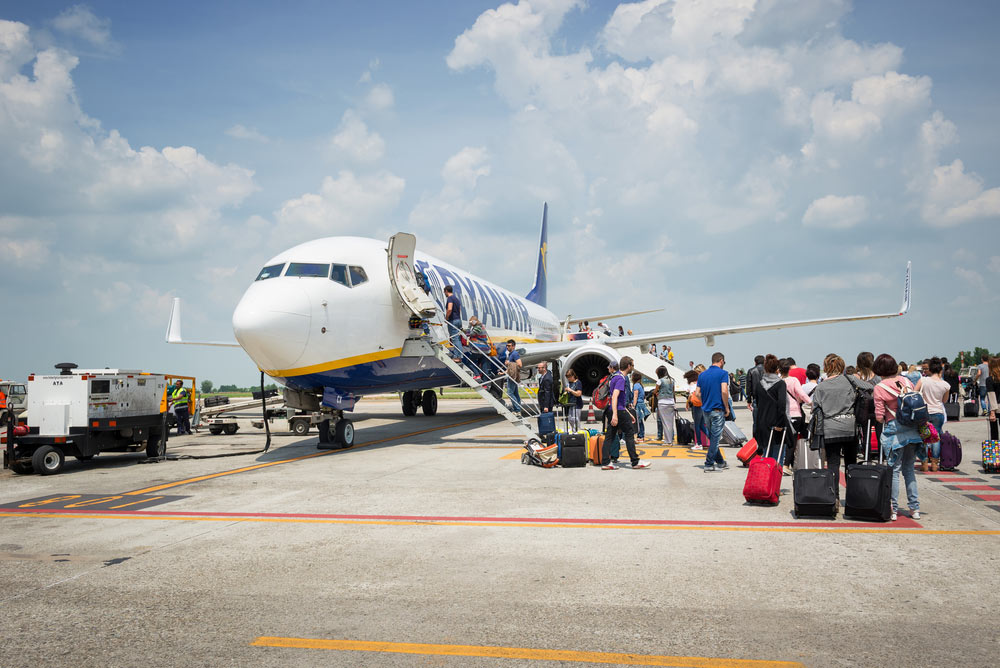
Flights within Europe are way different than what many of us non-Europeans are used to. Basically, Europe has a ton of budget carriers and they also have to compete with the high-speed trains, so you can find some crazy cheap airfare — like Paris to Berlin for $50. I once flew from London to Edinburgh for $2.
The strategies for finding cheap flights within Europe are similar to how we find cheap flights to Europe:
- Use A Flight Search Engine: Google Flights, Momondo, and Skyscanner are my favorite places to find the best deals on flights.
- Book A Few Weeks Early: Booking last minute can be expensive you can find some excellent deals but booking a couple of weeks in advance. Conversely, booking multiple months in advance can also be expensive.
- Budget airlines are often sticklers about luggage restrictions so pay attention to the size and weight limits as it’s an easy way for them to make money.
- Factor In Transportation Costs: Getting to and from the airport will be an extra cost so take that into account.
How To Save Money On Travel Gear
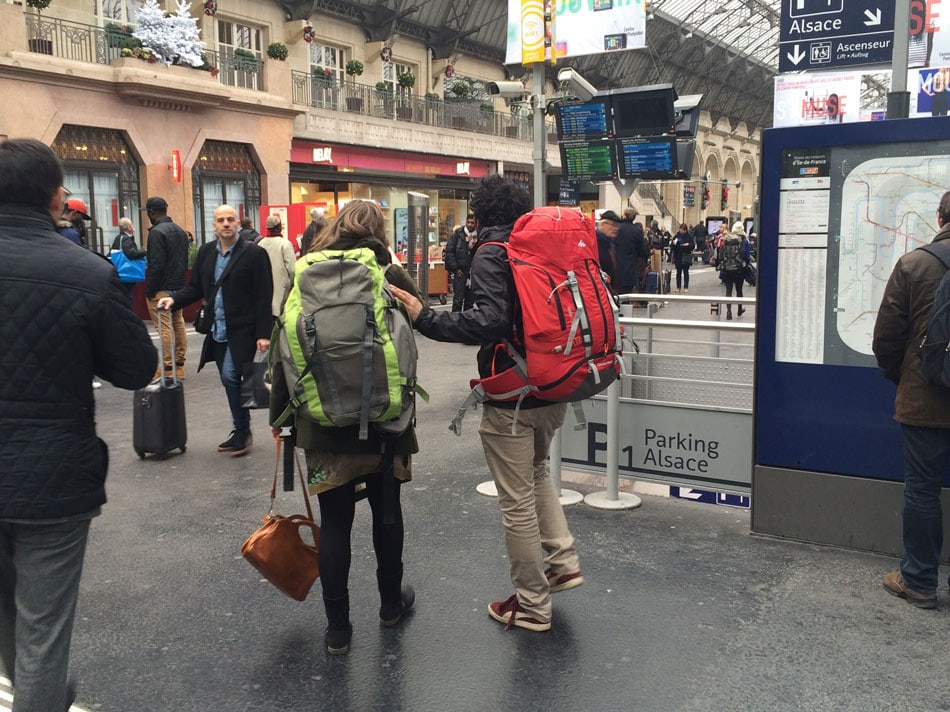
I’m a huge fan of travel gear but it’s easy to go overboard by spending a ton of money on travel stuff. In fact, there is a good chance that you already have basically everything you need.
Saving On Big Ticket Travel Gear
- Travel Backpack/Suitcase: A nice travel backpack can cost between $100-$300. Suitcases start around $50 but can easily go over $300 as well. Check with friends to see if anyone can lend you theirs. You can also buy these used on eBay for a decent price. Read more about my favorite travel backpacks .
- Comfortable Shoes: You want a solid pair of shoes but there is a good chance you might already have a perfectly suitable pair. Read more about my favorite travel shoes .
- Travel Clothing: There are lots of companies making clothing designed specifically for travel— i.e. quick-drying, wrinkle-resistant, odor-resistant, lightweight, etc. This stuff is nice to have but you can live without it.
- High-End Camera : Lots of people spend $600-$1000+ on a new camera for their trip. A nice camera can be great if you know how to use it but I find myself using my iPhone 99% of the time. In fact, even people who are good at photography get sick of lugging around a large camera and then switch to their phone.
- Laptop/iPad: Unless you absolutely need it for work, leave the laptop at home. An iPad does come in handy but I find that using your smartphone is more than enough.
More Money-Saving Packing Advice
- Pack Light & Save On Checked-Bag Fees: Almost every budget airline within Europe will charge a hefty fee ($30-$60) for checking a bag so you’ll save a lot by flying with a carry-on only. However, the weight of a carry-on bag is usually limited to around 20 lbs — which can be difficult for a lot of people.
- Pack Minimally and Buy As You Travel: Many people end up packing a ton of stuff they don’t need because they think they “might need it.” However, I find that it’s wiser to bring the essentials and then you can buy things while traveling.
- Borrow Gear: There is a good chance that someone you know has a bunch of travel gear packed away in a closet. Ask around before shelling out a ton of cash.
- Buy Used: Backpacks, cameras, guide books, electronics — all this stuff can be found at a heavy discount when bought second-hand.
- See What Gear You Have: Buying new stuff for your trip to Europe can be exciting but there’s a good chance you already own plenty of things that you might need for your trip.
Additional packing resources:
- Backpacking Europe Packing List
- Travel Europe Packing List for Women
- Europe Packing List (for any travel style)
- Hostel Packing List
- Ultralight Travel Packing List
- Winter Packing List for Europe
Choosing When To Travel

The time of year you travel will have a major impact on your overall travel costs — notably for airfare and hotel/hostel costs.
The summer will always be the most expensive time to travel — which generally runs from June to mid-September. Finding affordable airfare during this time can be difficult. Additionally, scoring affordable accommodation is also a challenge since there are lots of people looking for a place to stay.
The absolute cheapest time to travel Europe is during the winter (not counting Christmas & New Years) since the weather is generally cold and possibly rainy. That said, you can find some truly cheap airfare — I’ve flown from NYC to Copenhagen in November for $300. Hotels, hostels, and rental apartments also drop their prices to attract travelers.
My favorite time to travel is during the shoulder season — which roughly runs from late April to early June and mid-September to late October. These times offer a great mix of enjoyable weather and reasonable prices.
Visit Cheaper Countries

Scandinavia and Switzerland are all very expensive so you’ll pay a premium for food, alcohol, and accommodation.
Western Europe (especially major cities like London, Paris, Amsterdam, etc.) is also expensive but you can sometimes find decent deals.
Southern Europe is a little cheaper and you can often travel affordable in cities like Rome, Barcelona, and Lisbon.
Prices get even cheaper as you move east so you can find very solid deals in Berlin, Prague, Budapest, etc. Greece also has a lot of good deals to be found.
I’ve written 30+ city price guides for many of Europe’s most visited cities to give you an idea of how much you might spend when visiting.
Here are a few of my most popular city price guides:
- Amsterdam Travel Prices
- Athens Travel Prices
- Barcelona Travel Prices
- Berlin Travel Prices
- Budapest Travel Prices
- Copenhagen Travel Prices
- Dublin Travel Prices
- Florence Travel Prices
- Lisbon Travel Prices
- London Travel Prices
- Madrid Travel Prices
- Paris Travel Prices
- Prague Travel Prices
- Rome Travel Prices
Plan Around Major Cultural Events

Ok, this one can be a little harder to plan for but when cities host major cultural events it tends to spike accommodation rates.
For example, cities with large Christmas markets get a lot of travelers over the holidays and that raises rates. It’s the same around New Years in London, Paris, etc. because people come to party. Another example is Munich during Octoberfest as hotel rates can triple.
However, those events are predictable but there are other events like marathons, large sporting events, trade shows, local festivals, etc. that aren’t as apparent to foreign visitors. It doesn’t hurt to do a quick search as you’re planning your trip to make sure you don’t get stuck having to pay super-high rates.
Track Your Spending
If you’re on a strict budget then you’ll want to actually track your spending and review your notes often — because, let’s face it, it’s easy to lose track of how much money you’re spending.
There are various travel spending apps or you can simply write things down in a notebook as you go.
Save Money By Using ATMs and Avoiding Currency Exchange Offices
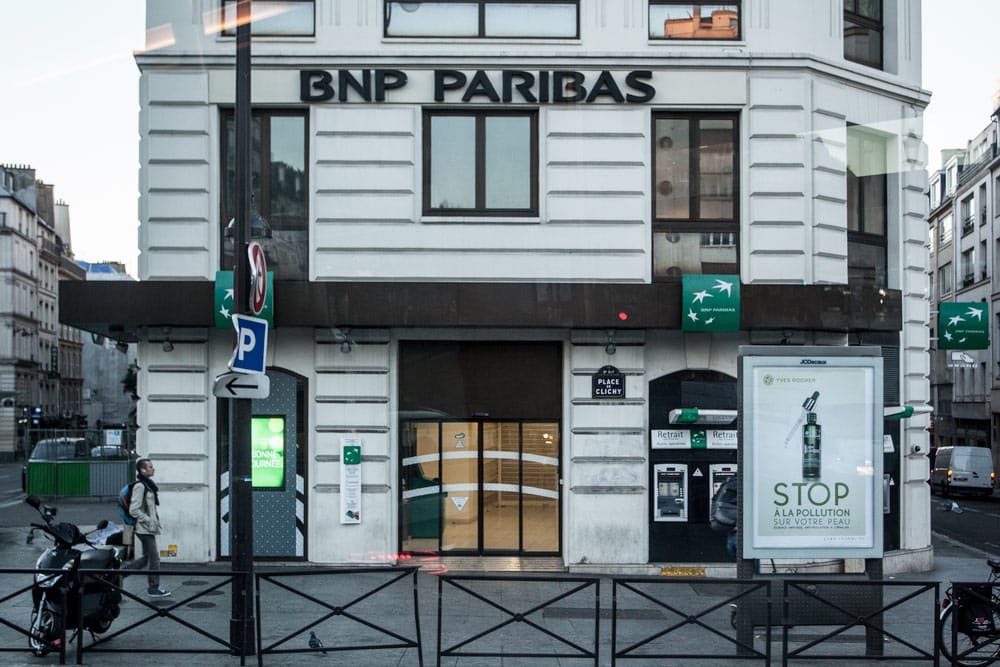
There are plenty of enjoyable ways to spend money while traveling Europe but spending money to get money from money exchange offices is never enjoyable.
The best (and cheapest) way to get money while traveling is from the ATM. In most cases, European ATMs don’t charge a fee (some airport ATMs that are attached to money exchange places will charge — those are tricky). Your own bank might charge a fee since it’s not your bank’s ATM but overall it’s the cheapest option.
Don’t bother getting cash from currency exchange offices because they charge big fees and commissions.
Similarly, don’t get a bunch of cash from your home bank before you leave because they also give you lousy exchange rates. If you’re really worried, get $100 worth of your first stop’s currency and then use ATMs after that.
Seriously, ATMs are everywhere in Europe.
Be Smart About ATM, Debit Cards & Credit Card Usage
Here is my strategy for paying for things while traveling:
- ONLY use your debit card to withdraw cash from ATMs.
- Use your credit card to pay whenever possible.
There are two main reasons to follow this strategy — it’s the cheapest option and it’s the safest way to use money.
Here’s the deal, card skimming (i.e. making a copy of a credit/debit card) is a very common scam in Europe — basically a waiter will take your card and scan it through a card reader that “copies” the card. The process takes a split second.
While most banks have fairly good fraud detection, if someone skims your card and then makes fraudulent charges the bank will cancel your card — which sucks if you’re traveling because getting a replacement card is nearly impossible.
So what happens if your debit card gets canceled? It means you have no way of getting cash from the ATM anymore. Furthermore, your debit card is directly connected to your checking/savings account so getting the money back is a much longer and more difficult process.
On the other hand, if you get fraudulent charges on your credit card it will still get canceled but you still have your debit card for cash from the ATM. And your credit card isn’t attached to your checking/savings account so you don’t have to worry about trying to claw back the stolen funds. In fact, I travel with two different credit cards just to be safe.
Financially speaking, there are some credit cards that don’t charge a foreign transaction fee and most use the current exchange rate so you’re not getting nickel and dimed on every purchase. Many credit cards also offer other benefits like cashback, travel insurance, travel credits, etc.
As far as getting money from ATMs, I recommend making large withdrawals so you can minimize the fees you’re paying. For example, my bank charges me around $3 per withdrawal so if I take out €300 ($325) I’m only paying about 1% in fees but if I take out €50 then I’m paying 5.5% in fees.
Skip Taxis & Use Public Transportation
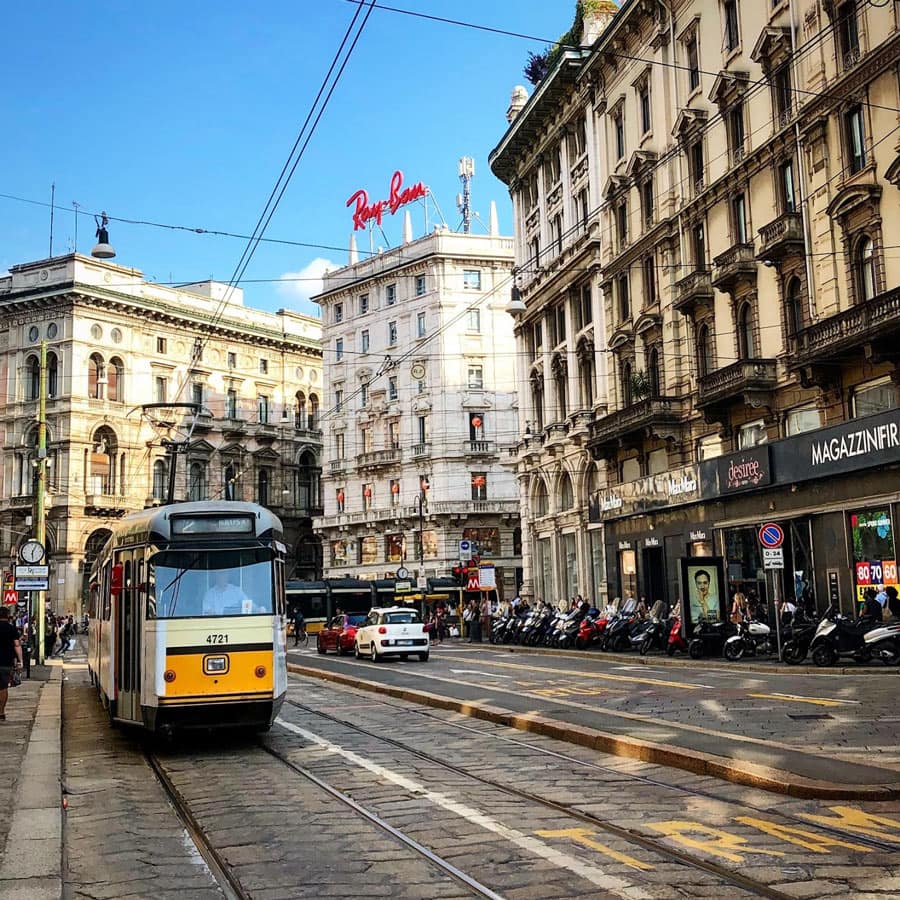
It seems like a no-brainer but using public transportation is much cheaper than using taxis. Most rides on public transit cost between $1-$3 so it’s hard to beat the price.
Where I get into trouble is when I feel like taking a taxi from the airport after a long flight — since I’m tired and have luggage. However, most airport taxi rides will cost €30-€70 so it’s a real budget killer when compared to the €2-€5 public transportation option.
Another thing to watch out for is taxi scams — which are most common in southern and eastern Europe. These scams can generally be avoided with Uber/Lyft but not all countries/cities allow ride-share companies.
Note: Only use taxis that are officially licensed taxis. There are plenty of “car services” that say they’re a taxi but they’re actually a private car and they can legally charge any rate they feel like.
How To Save Money on Train Tickets

I’m a huge fan of train travel and the Europeans truly know what they’re doing. In fact, I’d gladly pay a little extra for the train than have to deal with the hassle of air travel. Luckily, there are many ways to save on train tickets.
Book High-Speed Trains Early
As a general rule, high-speed trains are cheapest when booked as early as possible and get gradually become more expensive as the departure date approaches. If you book last-minute you’ll pay a premium.
Local and medium-distance trains are usually priced per distance so booking early doesn’t offer any money-saving benefits.
Here are some examples of high-speed train ticket prices to show you the price difference between booking early and booking last minute. Note: I used Omio to find these train ticket prices.
- Booked a few weeks before departure: €66-€100
- Booked two or three days before departure: €190-€250
- Booked a few weeks before departure: €99-€120
- Booked two or three days before departure: €133-€145
- Booked a few weeks before departure: €70-€100
- Booked two or three days before departure: €135-€155
- Booked a few weeks before departure: €13-€22
- Booked two or three days before departure: €20-€40
- Booked a few weeks before departure: €45-€70
- Booked two or three days before departure: €45-€70
- Booked a few weeks before departure: €25-€35
- Booked two or three days before departure: €25-€35
- Booked a few weeks before departure: €14-€30
- Booked two or three days before departure: €20-€35
Buy a Eurail Pass
I won’t say that Eurail Passes are always a great deal but many travelers find them to be a worthwhile investment.
In my opinion, the true value of the Eurail pass is its flexibility as you can essentially jump on any train without much planning — thus you’re not paying crazy high prices for last-minute train tickets.
On the other hand, pre-booking train tickets a few weeks/months early will almost always be cheaper than using a rail pass — but you give up flexibility/spontaneity.
Look Into Railcards
Most countries have some form of railcard that gives discounts on train travel. The discount can range from 15%-30% off the ticket price.
These railcards are usually for students (under 26 years old) and seniors — but there are some cards for people under 30 as well.
Railcards are typically meant for residents of the country but anyone can usually buy them.
Ask About Youth & Student Discounts

Pretty much anyone under 26 is considered a “student” in Europe and there are plenty of discounts for things like museums and train tickets.
Discounts vary by country and sometimes by the mood of the person selling tickets. Some countries only give a discount if you hold a student ID from a European Union university but others will give a discount to anyone.
It doesn’t hurt to ask so always bring your student ID just in case.
Travel With Friends

I love solo travel but there are certain times when traveling with a group of friends can cut down on travel costs.
Most notably, sharing a hotel or rental apartment with one or more people cuts down the per-person cost considerably. For example, splitting a $130/night Airbnb with four people ends up costing around $33/night per person — which is cheaper than a hostel.
Rental cars can also end up being very cheap when the cost is split between multiple people.
Meals can also be cheaper when split with others — you can split portions or make a meal for the group.
Get Travel Insurance
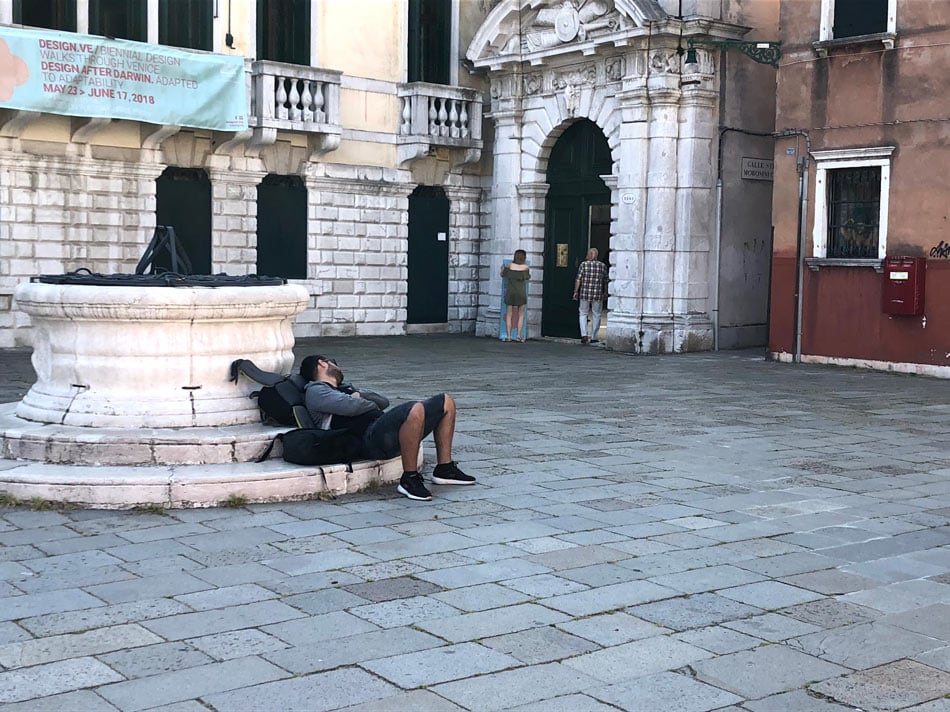
Travel insurance is a cheap investment that can save you thousands of dollars if you end up needing to use it. Trust me, you don’t want to get hit with a medical bill if you get injured overseas.
Travel insurance can also help you recover travel costs that you already paid for if your trip gets canceled/cut short and it can also help cover the cost of replacing lost/damaged luggage.
Personally, I use World Nomads as they’re geared toward budget travelers so their prices are very reasonable.
How To Save Money On Food & Alcohol
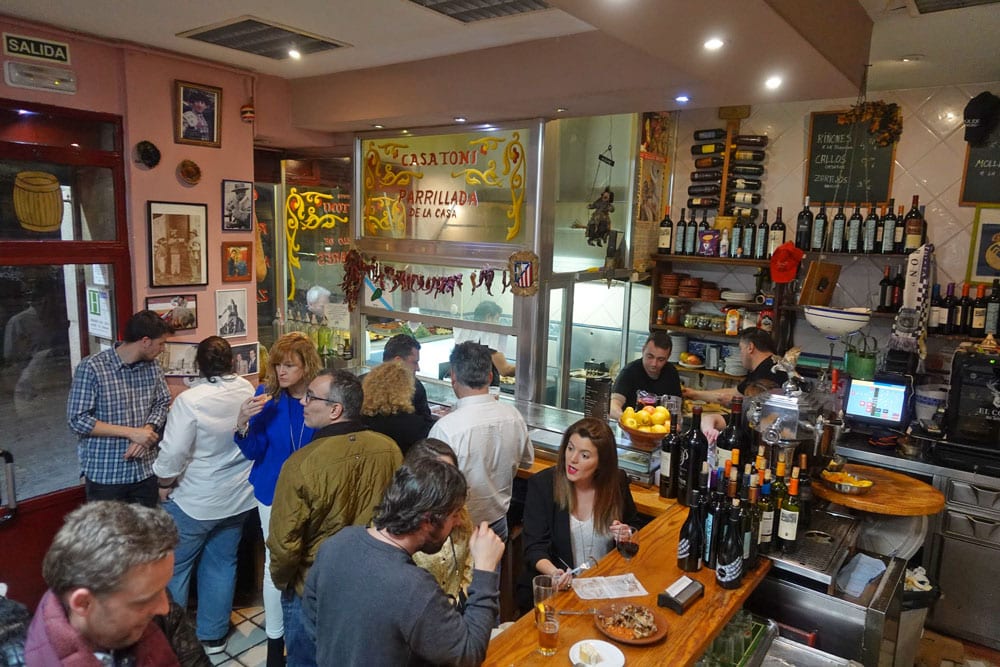
Ok, this is a big one because you can spend a fortune on food if you’re not careful. Luckily, if you’re flexible, there are plenty of ways to cut back drastically on your food expenses.
Research, Research, Research (Before You’re Hungry)
Here is my number one tip for saving money on food — do your research!
Whether you’re eating in restaurants or cooking your own meals, it’s super important to take the time to plan your meals.
Why? Because waiting to think about your meals until you’re hungry or as you’re “out and about” (and you’re usually in the touristy part of town that’s filled with tourist prices) is a surefire way to settle for a meal that’s too expensive or low-quality.
That’s why I always research potential places to eat so I know where I can find a quality meal at a fair price.
Shop At Farmer’s Markets and Grocery Stores
Farmer’s Markets are great for multiple reasons — they’re fun to explore, it’s a great way to experience the local culture, the food is high quality, and the prices are very fair.
Your cheapest option will be shopping at grocery stores — I also think it’s a fun cultural experience. The quality of produce isn’t as good as farmer’s markets but it’s still an excellent resource.
Plan A Group Meal
If you’re staying in a hostel that has a kitchen try getting a few people to pitch in for a group meal. This is an excellent way to make friends and save a ton of money.
Have A Picnic For The Park or City Square
A picnic in the park or city square is an unbeatable way to spend your lunch or dinner time. Even if you don’t feel like making your own picnic, you can easily find takeaway restaurants selling affordable food options.
Chow Down On Street Food And Takeaway
I love street food because it’s filling, tasty, and affordable. Each country/region has its own street food specialty — France has crêpes, Berlin has currywurst, Belgium has fries with a million types of sauce, pizza slices in Italy, and fish ‘n’ chips in the UK, so it’s a good way to try some local favorites.
Also, check out bakeries as they usually have quality sandwiches.
Local Favorites Are Usually Great Values
Do your research to find local favorite restaurants because they usually offer the best value in terms of quality and price. I’ve found that the best way to find these little gems is through local food bloggers and local food tours (they usually also have blogs on their websites).
I’ve also had a lot of luck looking on Reddit for restaurant recommendations as many locals post there and are happy to share their insider knowledge — r/Paris , r/London , r/Berlin , r/Amsterdam , r/Lisbon , r/Rome , r/Barcelona , etc.
Southeast Asian and Middle Eastern Food Are Great Deals
Chinese, Thai, Vietnamese, Indian, Turkish, etc. food are all delicious and is often very reasonably priced.
Save With Lunch Specials
Plenty of restaurants, especially those popular with locals, often have a fixed-price lunch specials to attract people who work in the neighborhood. This is a great time to sample the local cuisine at a discount.
The Menu Speaks Volumes
One sign that a restaurant isn’t a tourist trap is by looking at the menu. A handwritten menu usually means the ingredients are fresh.
Additionally, if the restaurant has a menu in multiple languages it often means they cater to a lot of tourists. Granted, some perfectly fine places have multi-language menus, but it’s a good rule of thumb.
Stick To Tap Water To Save
If you ask for water at a restaurant there is a good chance they’ll bring you a large bottle of water so you have to specifically ask for tap water.
Furthermore, skip the soda as well because you’ll be given a tiny expensive bottle that costs as much as a beer or wine.
Eating Inside vs Outside
Restaurants often charge a slightly higher price if you sit at their outside sidewalk tables. I love people-watching on a sidewalk cafe but if you’re trying to save a little then you’ll want to eat indoors.
Leave The Tourist Areas
Don’t get me wrong, you can find quality meals at fair prices in “touristy” parts of any European city but you’ll have to do your research. However, you’ll find much better deals by venturing out to more residential neighborhoods.
Drink At The Bar
Whether it’s alcohol or coffee, it’s often cheaper to drink standing up at the bar as opposed to at a table.
Drink Local
Every city will have its own regional beer, wine, and spirits — all of which are usually the most affordable option.
Look For Happy Hour Specials
The concept of happy hour isn’t quite as prevalent in Europe as it is in the US but it’s becoming more popular. Most bars will advertise these deals on their windows.
Local and Student Bars
Most bars in the center of the city are more geared towards tourists so the prices tend to be higher. Seek out places near universities or smaller local joints for better prices.
Buy Drinks From The Grocery Store (And Drink In Public)
Most European cities are very lax when it comes to drinking in public parks and squares as long as you’re not causing a scene. So head to the grocery store to pick up a perfectly fine $8 bottle of wine or some cheap beers and enjoy yourself!
Don’t Overtip
Tipping comes automatically to Americans but many European waiters are paid competitive wages so tipping isn’t expected or you might only add a little extra to the bill (but certainly not 15%-20%). Additionally, some restaurants automatically add a tip so pay attention. Each country has its own customs so do a little research first.
How To Save Money On Accommodation
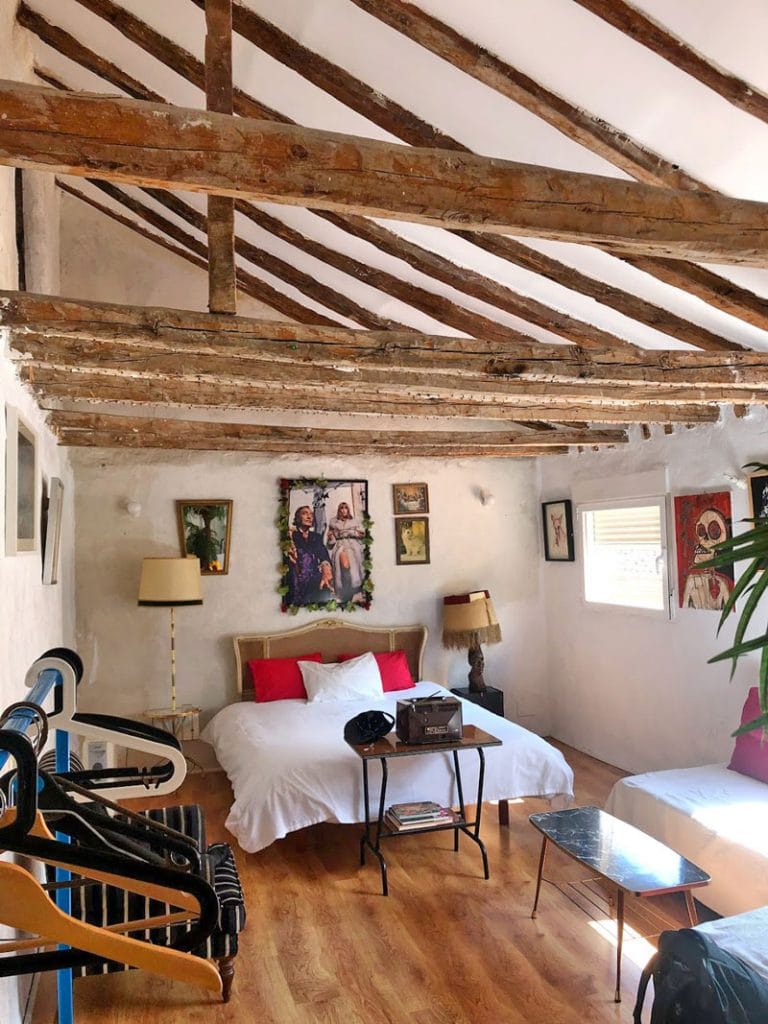
In many cases, your largest overall expense will be your accommodation but there are plenty of budget tips that can save you quite a bit of money.
You’ll Pay For the Location
The joy of visiting Europe is exploring its old cities so you’ll pay a premium if you want to stay in the center of it all — especially with hotels. And even within the city the prices will vary greatly based on neighborhoods.
I’ll be honest, staying way outside the city can take away some of the “magic” of Europe but it’s a great way to save a lot of money.
Stay In A Hostel
Hostels are one of the cheapest accommodation options in Europe and every city will have multiple different hostels that cater to just about every travel style. In fact, there is a recent trend toward “boutique” hostels that have many of the same amenities you’d find in a hotel (but they are a bit more expensive).
Most hostels start around $20-$50/night for the cheapest dorm bed option but private rooms can range from $60-$120/night.
To learn more about hostels, check out my guide to hostels in Europe and my recommended hostels in many of Europe’s top cities:
- Best Hostels in Amsterdam
- Best Hostels in Barcelona
- Best Hostels in Berlin
- Best Hostels in Brussels
- Best Hostels in Budapest
- Best Hostels in Copenhagen
- Best Hostels in Dublin
- Best Hostels in Edinburgh
- Best Hostels in Florence
- Best Hostels in Lisbon
- Best Hostels in London
- Best Hostels in Madrid
- Best Hostels in Milan
- Best Hostels in Munich
- Best Hostels in Nice
- Best Hostels in Paris
- Best Hostels in Prague
- Best Hostels in Reykjavik
- Best Hostels in Rome
- Best Hostels in Venice
- Best Hostels in Vienna
Try Booking Directly
You can sometimes get a better price on your hotel by booking directly with the property since booking websites like Hotels.com, Booking.com, etc. charge the hotel a hefty fee.
However, I haven’t always found that hotels are willing to lower their prices but sometimes they’ll throw in a free breakfast or other perks for booking direct.
Seek Out Independent Hotels Not Listed On The Booking Sites
As mentioned previously, there are still some independent hotels that don’t list themselves on booking websites since those websites take a large cut of the booking. Naturally, these hotels are a little harder to find but the extra work can save you a decent amount of money.
Bed and Breakfast Offer Great Value
Many people forget about B&Bs but they’re a great way to get a comfortable place to sleep while also getting a little closer to the local culture.
Start Looking Early
There are some good deals to be found but it’s easier to find deals if you start looking early.
Rent an Airbnb/Apartment
Rental apartments can be an excellent way to save big — especially if you’re traveling with a group. Rental apartments also come with a kitchen so you can save more by cooking a few of your own meals. Click here to save $30 off your first Airbnb stay .
Rent A Room
People often don’t realize that Airbnb lets you rent a room in someone’s apartment and this is another great way to save a lot of money. Additionally, Airbnb hosts who rent rooms are often happy to share their favorite local restaurants and sights. Click here to save $30 off your first Airbnb stay .
Check Weekend Rates
Hotels and hostels often raise their prices significantly on Friday and Saturday so that’s something to consider when booking and comparing prices.
Pay Attention to Extra Fees
The price you see when looking at hotel prices can sometimes be misleading as they’ll tack on extra fees when you go to book your hotel — and these extra fees can be significant.
Try Couchsurfing
The ultimate way to save on accommodation is by not paying anything — which is why Couchsurfing has become so popular. There are plenty of obvious downsides to Couchsurfing but a lot of people love it and it’s an excellent way to experience a different side of the local culture.
Become A Housesitter
If you’re going to be in one location for an extended amount of time then you might consider becoming a housesitter. The most popular website is Trusted Housesitters . It’s essentially a service that matches up people who need someone to watch their house while they’re away — usually to take care of their pets.
Popular locations have a lot of competition so you might need to do a few housesits in less popular spots to build up your reputation.
Focus On A Region or Visit Fewer Places
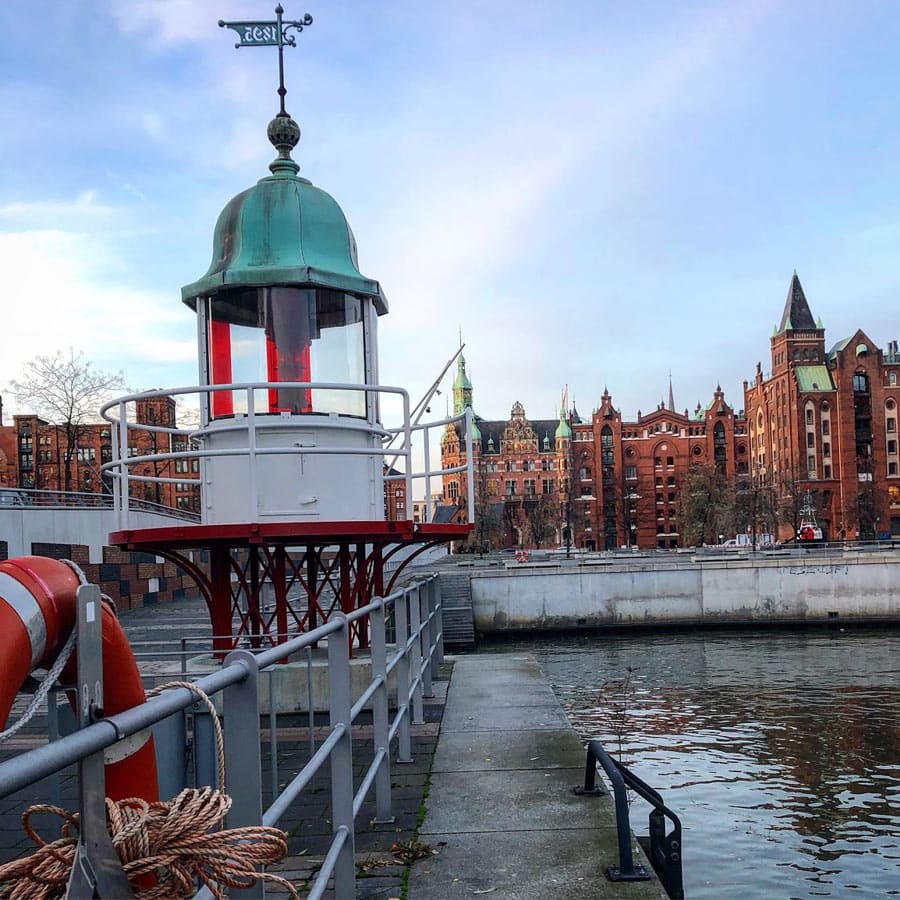
I know I’m guilty of this but many people who visit Europe want to jam their itinerary with multiple cities — after all, it’s so hard to choose where to visit.
However, moving around a lot can get expensive. First, there’s the extra transportation expense (trains, planes, etc.) and then you’re also losing time.
Next, some hotels and rental apartments will give you a slight discount if you book for a week and an even bigger discount if you book for longer.
Focusing on a small region also gives you more time to explore the area and to get to know it better — which I feel ends up being a much more rewarding trip.
How To Save Money On Sightseeing

You visit Europe for the sights but that doesn’t mean you need to spend all your hard-earned money seeing everything! Here are some money-saving tips:
Invest In A Guidebook
Despite their drawbacks, I still think guidebooks are an excellent resource for travel information and they can help you get the most value out of your trip. If nothing else, guidebooks help you make the most of your trip so you don’t waste your precious vacation time.
Both Lonely Planet and Rick Steves guidebooks are geared toward independent, budget travel but Lonely Planet is a little more focused on a younger demographic.
Visit The Tourism Office
Every city will have a tourism office and in many cases, they’ll have resources like free city maps and free wifi. They can also be a good resource about fun local things that are going on in town
City Passes and Sightseeing Cards
Most cities have some form of tourism card that gives you access to museums, cultural sites, and other touristy attractions. These cards can actually end up saving you a lot of money but other passes end up either being a waste of money — it really depends on your travel style.
When evaluating a city pass, it’s important to look carefully at what the pass includes and if those things actually look interesting to you.
Here are the general guidelines for how I evaluate the value of sightseeing passes:
- What It Covers: Many passes are loaded with tacky things like wax museums but skimp on cultural attractions (i.e. museums, etc.). So study the pass to see if you actually want to visit the attractions it covers.
- Pass Utilization: Sure, you can save a lot of money if you visit 5 different things in a day but that’s no way to travel — I try to limit myself to one or maybe two museums in a day, and then I might do another non-museum attraction. Trying to see too much is a surefire way to get burnt out.
- Cost Without The Pass: Most passes cover two or three “big ticket” attractions so the pass is rarely worth it if you don’t do those. The passes also tend to cover a lot of “cheaper” attractions that might only cost $5-$10/ticket so you’ll have to visit multiple sights to get your value’s worth.
In cases you’re interested, I’ve already written reviews of multiple city passes:
- London Pass Review
- Paris Pass Review
- Go Berlin City Pass Review
- Rome & Vatican Pass Review and the Go Rome Pass Review
- Vienna Pass Review
- Dublin Pass Review
- Stockholm Pass Review
- Go Barcelona City Pass Review
- New York City Pass Review
- Go Madrid City Pass Review
- Amsterdam Pass
- Gothenburg Pass
- Helsinki Pass
Free Museum Days
Most cities in Europe have one day a month when all the museums are free. For example, museums in France are free on the first Sunday of the month and many attractions in Italy are also free on the first Sunday.
Some individual museums have weekly free days or they’re free after a certain time of day.
Note: Free days/times at museums attract a huge crowd so expect it to be a little more crazy than normal.
Take Free Walking Tours
Nearly every city in Europe has free (aka pay-what-you-wish) walking tours and they’re an excellent way to see a new city while also learning a bit about its history.
Mix In Free Attractions With Paid Attractions
I like to pad my sightseeing with free things like parks, monuments, or simply exploring a neighborhood. These activities also force you to slow down a bit so you’re not rushing from attraction to attraction.
Enjoy A Leisurely Drink At A Sidewalk Cafe
While you’ll probably pay a premium for a beer or glass of wine at a sidewalk cafe, it still makes an excellent way to spend an hour or so relaxing and people-watching.
Search For “Free Things To Do In X”
A good guidebook will tell you about free attractions but there are often free concerts, events, shows, galleries, etc. happening on any given day. That’s why I always do a quick search for free things before arriving to see if anything looks interesting.
Pre-book Your Museum Tickets
Ok, pre-booking your museum tickets online won’t really save you any money but it can save you from spending hours waiting in line — and time is money, right?
In fact, some cultural sights require everyone to pre-book tickets but they split the available tickets between normal visitors and tour groups. Therefore, once the normal tickets are sold out, you’re forced to take a more expensive tour if you want to visit.
Walk or Bike When Possible
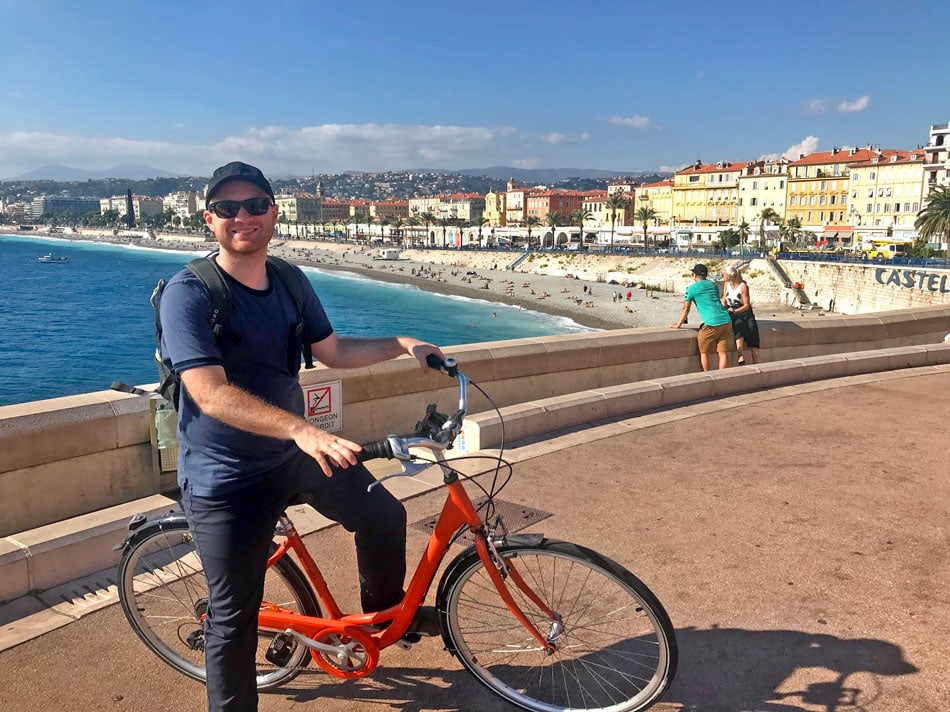
Exploring a city on foot or with a cheap rental bike is not only a great way to save money but it’s an excellent way to get to know a city.
For example, I love the Paris metro. However, if I can walk to my destination in 30-45 minutes I’d rather do that and see the amazing city than using the subway where I see nothing. And then you can spend the €2 you would have spent on a ticket at the bakery instead — win-win!
Many European cities now have free/cheap bike rental stations and this is another fun way to experience a city.
Rent A Car (For Group Travel)
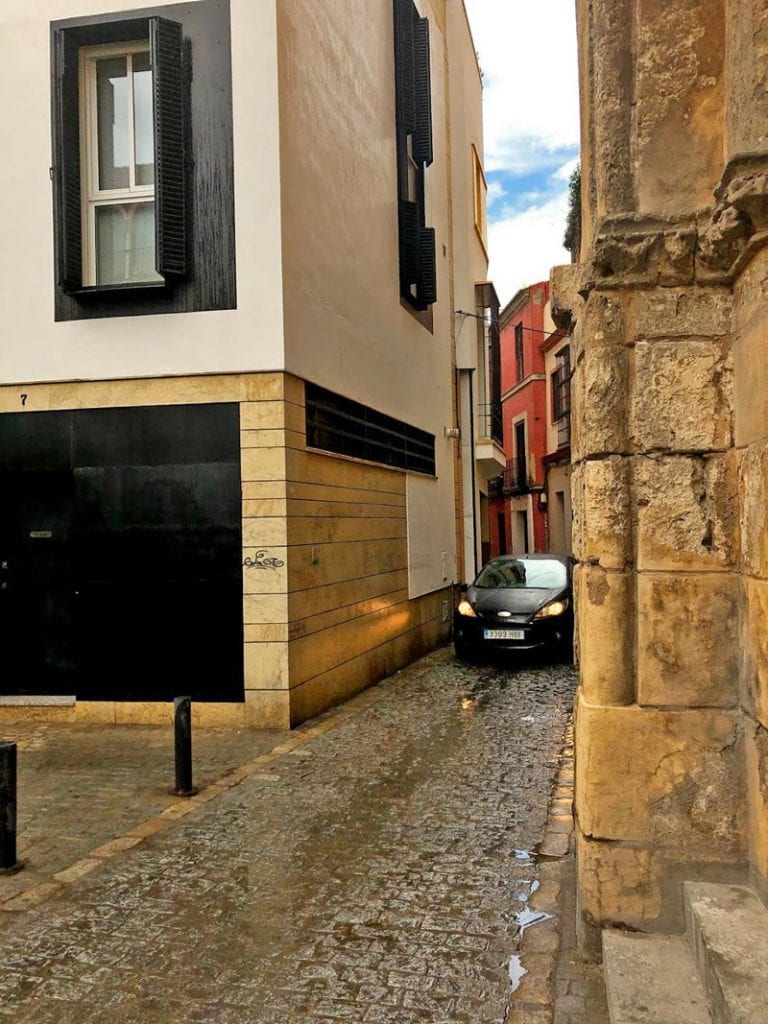
I’m not a huge fan of driving in Europe because it’s expensive (gas, tolls, insurance, parking, etc.) but if you’re in a group of 3-4 people a car can actually be a very affordable way to get from point A to point B.
That said, driving in any European city is a nightmare so I recommend parking outside the city if you’re driving.
I’ve used AutoEurope in the past to book my rental car because they search multiple car rental companies. Read my guide to renting a car in Europe for more tips.
Travel Europe By Bus

The cheapest way to travel around Europe is by bus and it actually has a very extensive long-distance bus network. Granted, the bus will be much slower than the trains since trains travel 2-3x faster and there is no traffic, but it will be cheaper.
Many of these long-distance bus companies will have random deals with super cheap advance fare tickets that are as cheap as €5. You can search for bus fares/routes on Omio .
Another possible way to travel around Europe cheaply is via carpooling with people who are already making the same trip. The most popular service is BlaBlaCar (it’s basically Airbnb for ridesharing) and they make matching up drivers and riders easy.
Avoid Tourist Scams
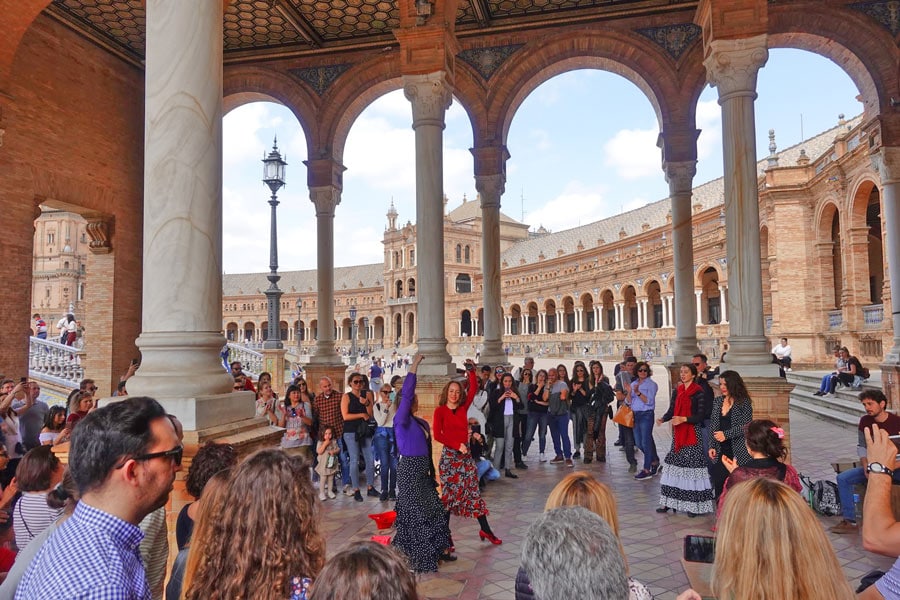
It’s one thing to spend too much money while traveling but getting scammed is another.
Let me start by saying that the chance of getting scammed or pickpocketed in Europe is low but it’s smart to know what scams are out there. Here is a list of Travel Scams in Europe but below are the most common:
Pickpockets
Any city that attracts a lot of tourists will have pickpockets — which is why Europe has gained the reputation of a pickpocket hotspot. Here are some things to pay attention to:
- Beware Of Crowds: Busy streets, subway cars, buses, trains, and places with a lot of tourists are where pickpockets strike.
- Smartphones Attract Thieves: Thieves love smartphones because they’re easy to steal and easier to sell. One of the most common places phones are stolen are off tables at sidewalk cafes.
- Lock Your Zippers: You can get little luggage locks for your bag’s zippers and this is enough to stop a pickpocket.
- Beware of Distractions: Most pickpockets work in teams. One person distracts you with a map or something similar, and the other person swipes your stuff. Groups of little kids are often used as distractions.
- Watch Your Wallet: Keeping your wallet in your back pocket is a pickpocket’s dream so keep it in your front pocket.
- Money Belt: Money belts are a popular way to hide valuables under your clothing.
Credit Card Skimming
I covered this earlier but credit card skimming (aka cloning) is very popular in tourist areas. The best way to prevent skimming is to not let people take your card out of sight and to check ATMs to ensure they haven’t been tampered with.
Some cities/countries have a well-earned reputation for taxi scams. Do your research on normal taxi prices and common scams to keep yourself informed — and don’t be afraid of speaking up if you feel like you’re being scammed.
Research Your Phone’s International Data Plan

Don’t return home from your trip to Europe to find a huge phone bill. Spend some time researching if you can use your smartphone’s data plan. Some plans give you free data in Europe and some let you pay extra to get high-speed data while abroad.
You also have the option to buy a new SIM card while in Europe — which is often the cheapest option but it’s a bit of a hassle.
Hit Up The Dating Apps
One way to experience a city like a local is by meeting up with a local — which is why many travelers are logging into their dating apps as they travel.
- Recent Posts
- The Best Travel Backpacks | In-Depth Buyer’s Guide & Backpack Reviews - April 28, 2024
- Best Prepaid UK eSIM | Data Plan Buyer’s Guide - April 21, 2024
- How to Avoid Pickpockets in Europe — Tips for Outsmarting the Thieves - April 19, 2024

No Funny Business
The Savvy Backpacker is reader-supported. That means when you buy products/services through links on the site, I may earn an affiliate commission—it doesn’t cost you anything extra and it helps support the site.
Thanks For Reading! — James
Questions? Learn more about our Strict Advertising Policy and How To Support Us .
Related Reads
Itinerary planning advice for backpacking europe on a budget.
Choosing well-researched itinerary is essential for budget travelers. This guide will help you make the most of your time & money.
Money & Budgeting , Planning
How To Buy a SIM Card In France | Guide to High-Speed Mobile Data in France
Your guide to using SIM cards and mobile data plans in France.
How To Buy a SIM Card In Spain | Guide to High-Speed Mobile Data Plans in Spain
Your guide to using SIM cards and mobile data plans in Spain.
Money & Budgeting , phones and technology , Planning
How To Buy a SIM Card In Italy | Guide to High-Speed Mobile Data in Italy
Your guide to using SIM cards and mobile data plans in Italy.
City Guides
Choosing travel insurance, travel packing lists, budget travel newsletter.
The best budget travel tips sent straight to your inbox.
Join My Journey
Europe travel tips, advertising & privacy policies.
TheSavvyBackpacker.com is a participant in the Amazon Services LLC Associates Program, an affiliate advertising program designed to provide a means for sites to earn advertising fees by advertising and linking to amazon.com.
© 2010 - 2024 The Savvy Backpacker
Website Design by FHOKE
11 tips for traveling Europe on a budget

Traveling Europe — in Normal Times — can be an expensive splurge or an affordable adventure depending on where you go, how you plan to arrive and what you plan to do at your destination. Although the continent seems small, a quick hop to Ireland is a world away from a five-hour flight to the Canary Islands or an Interrail adventure to the Swiss Alps. With so many diverse countries to choose from, it can often be overwhelming to plan a trip -- especially if you're tight on funds. But if you follow the below tips, you can have a fantastic vacation that won't blow your budget.


1. Get creative with points and miles
Having a stash of points and miles is great, but if you don't really know how to use them , they won't get you very far. So get creative with your points and miles and remember to think outside the box when using them.
For example, if you can't find award availability on British Airways using your Avios, you can transfer them to Iberia or Aer Lingus for a whole slew of other redemption options.
Remember that partner airlines are always an opportunity and that your credit card points are transferrable to airlines that maybe aren't as common. For example, American Express Membership Rewards points transfer to airlines like Aer Lingus and Air France-KLM.
Read more: The ultimate guide to Amex Membership Rewards
2. Fly low-cost
With many spots in Europe just two-hours or less away by plane, flying a low-cost carrier isn't so bad -- as long as you know the rules. Remember that you'll be charged extra for pretty much everything, so plan ahead if you want to check a bag, board first or reserve your seat. If you are country hopping, consider choosing a home base and planning weekend trips so you don't have to check all your luggage. And when you snag a deal for $50, $25 or even$10, just grab your under-the-seat backpack and go -- you won't regret it.

3. Travel in the off-season
Traveling in off-season or shoulder-season will save you money on flights, hotels and award redemptions. Plus, you'll deal with fewer crowds and avoid long lines, especially when visiting major tourist attractions.
Flights and hotels may offer cash deals in the off-season and remember that most airlines have peak and off-peak calendars when it comes to award redemptions, charging fewer miles/points during off-peak dates.
And consider that some hotel loyalty programs, such as Bonvoy, now have both peak and off-peak points redemptions , so if you choose to redeem during off-peak dates, your points will extend even further.
Generally speaking, most European countries' off/shoulder-seasons are October to November and January to June. Of course, avoiding major celebrations like Christmas and Easter, as well as busy bank holiday weekends, will also ensure you get the best rates.
4. Visit affordable destinations
Visiting Paris and Amsterdam (even if you do get an affordable flight deal and are able to use points for a hotel stay) won't run cheap. Instead, consider some cheaper cities in Europe, such as Krakow, Porto, Bucharest, Kiev, Budapest and beyond. A good rule of thumb is to decide what type of vacation you hope to have and then look for alternative options.

For lazy beach days, skip the French Riviera and head to Sicily or the Albanian Riviera instead. Ditch Santorini for a lesser-visited Greek Island like Paxos, Sifnos or Symi. Wine taste in Estonia, not Bordeaux, admire art in Madrid, not Vienna, or ski in Spain's Sierra Nevada instead of the Swiss Alps. Whatever style of European vacation you'd like to have, you can do on a budget -- just pull out a map and think outside of the traditional hotspots.
Read more : Long layover in Madrid? Here's all you need to know
5. Stay in a home rental or hostel
Home rentals can actually save travelers a lot of money -- and not just on the actual rate of the rental, but also on dining out or doing laundry . Since home rentals often come with amenities like a full kitchen or washing machine, you can cook your meals and wash your clothes at home, which is a huge money saver -- especially for a lengthy stay. And living like a local has cultural benefits, too, like getting a real feel for a city and how its residents go about their daily routines.

Hostels are another cost-effective alternative to hotels. And it's not what you think: these types of lodgings aren't all bunk beds and backpackers. In fact, many European hostels come with private bathrooms and bedrooms, more like small hotels than anything else. Plus, Europe is seeing an uptick of trendy boutique hostels such as the Generator brand, meaning you can still have a comfortable accommodation experience while not overspending.
6. Use the right card for purchases abroad
Unfortunately, some points-earning credit cards charge a foreign transaction fee (about 3%). However, depending on the value of the points you can earn, you may (or may not) come out on top when using it abroad. To find out, check out the TPG's monthly points valuations to see how valuable certain point currencies are.
While we almost never recommend using a debit card, but it may make sense in many instances when spending abroad. For the best cards to use, check out this guide on best cards to use abroad .
7. Know the tipping rules
Whether it's 10% or nothing at all, understanding the tipping culture can help you avoid a faux pas post-meal or after a taxi ride, as well as ensuring you don't spend money unnecessarily. Apps like Gratitude Tipping can help, showing you the rules by country for tipping drivers, guides, restaurant waiting staff, bartenders and hotel staff.
8. Don't discount trains
Although trains aren't always super cheap, sometimes they can be affordable and easy -- especially when booked in advance. Trains will help you avoid airport delays, turbulence and are generally more comfortable than a teeny airplane seat. If you need to travel with a lot of baggage or extras, trains can also be an ideal choice. And some European train journeys are incredibly scenic, making the train ride a vacation in itself. For those heading off on a backpacking adventure, Interrail passes are a valid option.

9. Travel light
Almost all European airlines charge for checked baggage -- and many taxi drivers around Europe will also add on fees for luggage, too. You can avoid this by packing light and right, using things like packing cubes or wearing travel clothing .
10. Do a free walking tour
Most European cities offer free walking tours. Check online before traveling, sign up in advance if necessary and enjoy your free tour. Although tipping is suggested, it's likely you'll still spend a lot less, even after generously tipping your guide. You may also meet other like-minded travelers, which can be welcome if you're traveling alone or looking to make new friends.

11. Check on your mobile data
While some mobile networks offer free roaming in Europe, it's a good idea to confirm to ensure you won't see any added roaming charges. There's nothing worse than receiving a hefty mobile bill upon return when you're already dealing with post-vacation blues. If your network doesn't offer free-roaming, see how much roaming rates cost before traveling, or consider buying a local SIM card upon arrival to your destination.

Europe in 3 Weeks: 6 Itineraries
DISCLAIMER: This post might have links to travel services and products that we enjoy. We might make a commission from it at no extra cost to you.
I am confident many people have Europe on their bucket list of places to visit. This continent is filled with preserved historical sites, famous landmarks, UNESCO-certified heritage sites, various natural scenery, and diverse cultures from people of different nationalities.
There are tons of activities that you can do here as well. However, if you plan to stay a little longer than the usual vacation duration, it might cost you a lot, especially if you aren’t familiar with places to go without spending too much.
This guide is for people planning to travel around Europe in 3 weeks . Whether you are on a budget or looking to splurge a little, there’s something for everyone. In this guide, I am covering central and southern Europe – both have famous destinations. I also have itineraries for the eastern region for affordable, nordic areas for unique culture, and off-the-beaten path of Europe.
I want to ensure you spend the 3-week holiday that suits you. If you are new to travelling on a budget, check out these tips for budget travel . You can also read in below our estimate of how much a 3-week in Europe trip might cost.
THINGS TO KNOW BEFORE GOING TO EUROPE
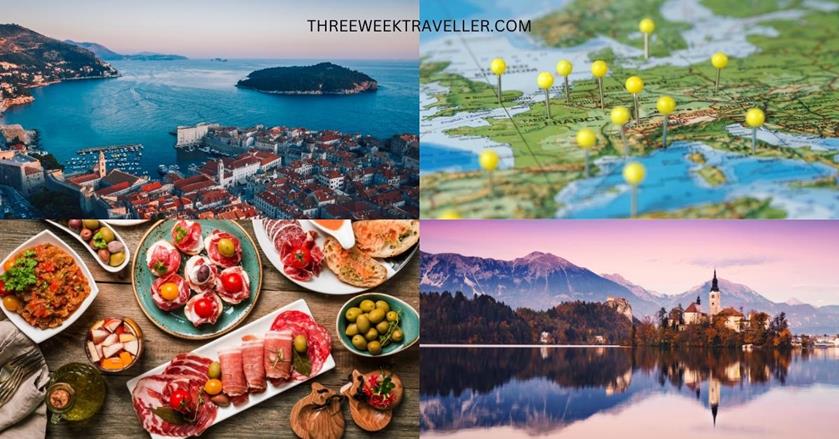
If you plan a trip for 3 weeks in Europe, stay with me as I lay down tips on travelling there on a budget. Decide where you want to go, when, how much you will spend, and what you plan to do once you go there.
I created a detailed outline to help you plan your 3-week Europe trip or you can also consider a 3-week cruise around Europe.
Where to go in Europe for 3 weeks
If you want a hassle-free trip, y ou could visit countries that share land borders or are near each other. You can also limit your visit to 3 countries to spend at least a week in each.
For example, France, Italy, and Spain are super popular and are easy to get from one to another. The same goes for Norway, Denmark, and Sweden. The Baltics (Lithuania, Latvia, and Estonia) is another example of Hungary, Croatia, and Greece/
That way, you could experience what each country offers without rushing. You wouldn’t be overwhelmed by the new cultural experiences and frequent environmental changes. You should check our compilation of 3-week travel itineraries for different (each) European countries .
When to go to Europe
This actually depends on what activities you want to do. For instance, summer would be perfect if you like swimming , various water activities, open-air concerts, and museums. If you’re going to try skiing, ice skating, sledging and see frozen waterfalls and snow in general, you should go during winter.
You can go hiking in spring and discover diverse flora and fauna along the way, as most flowers bloom during springtime. Europe also has various music and cooking festivals, while during fall, you can attend their world-famous festivals, enjoy the changing of the tree colours, and do lots of hiking and museum visits.
However, if you ask me, I like visiting Europe during late spring or late autumn, from March to April or September to October. These are shoulder seasons; the weather is neither too hot nor too cold, there are fewer tourists, and accommodation prices are a bit lower.
Check our list of best destinations to go for a beach trip and t op places to spend winter for 3 weeks .
You don’t have to write your itinerary from start to finish, day by day, but writing some sort of guideline will help you visualise your trip. You can check which destinations you can afford to book a private room and which places you have to book dorm rooms.
Y ou can join free walking tours in Europe, which are widespread . The great thing about this is that you only need to give a tip to the tour guide according to your satisfaction. You can also take local transportation such as trains, buses, or subways (they call them metro in Europe).
You can also check if you can rent bicycles. This means of transportation is enjoyable, and you would be able to appreciate the places you visit more when riding a bike.
Another way to save money when taking public transportation is by booking a shared ride (either from your hotel to the airport or the following city/country).
Pack lightweight
There are so many cheap flights across Europe, but the catch is that the baggage cost on flights often doubles the ticket costs.
That’s why you need only to bring the essentials and pack light. In this way, you also could move faster because you don’t need to rearranging your belongings or drag a heavy suitcase or backpack.
We have an amazing packing list for general travel , which comes with a free printable checklist. You can also check our packing list for summer or the packing list for winter .
Basic travel tools and sites
When planning your trip, check different sites for the most affordable and budget-friendly travel services, such as flights, accommodations, and even travel insurance. If your trip is not final, look for sites that offer flexible cancellations if anything changes.
For those sure of their trip, booking your hotels and flights in advance is best to have more options, especially affordable ones.
These are the websites and tools I personally use when booking my trip. The ones I book right away are flights (for international/intercontinental), hotels (to find the best deals), and car rentals.
3 WEEKS IN EUROPE AVERAGE COST
On average, one person should plan around $2,000 for 20 days in Europe . You should be able to stay in a private room and eat out most of the time. But that still depends on where you plan to go.
If you’re on a backpacker’s budget, you should be able to do it for $1,500 . Plan to stay in dorm rooms and cook when you can.
If you want to splurge, $4,500 for 3 weeks in Europe is very comfortable. You can book five-star hotels, eat at fancier restaurants, and book private tours.
Pro tip: Don’t include your airfare when computing your budget because airfares change drastically . You can also try to book during non-peak seasons to save more or wait for promos.
When computing how much a 3-week Europe trip costs, you should consider food, accommodation, and tours. Last-minute bookings are the most expensive. Hence if possible, book as early as three months before your planned trip.
How much is it really to travel to Europe for 3 weeks? It depends on the person, of course. However, personally, I spent about $1,200 on one summer. I also visited during winter, where I paid $1,000 in 3 weeks, mostly because I decided to head to East Europe . I also backpacked around for three months and spent about $2000.
In my opinion, Europe is not that expensive compared to North America or even Oceania. But it would help if you had a good plan and were okay with not always eating in fancy places. The great thing about Europe is the hostel community, it’s affordable and a great way to socialise.
I mainly stayed in hostels around Europe, took public transportation, walked a lot, ate street food and went to local grocery stores. I also made sure to see as many places as possible and enjoy some “luxury” here and there.
You can also book this 7-day tour of central Europe , which covers Germany, Czechia, Slovakia, Hungary, Austria, and Switzerland. Transportation, accommodation, tour manager, and breakfast are all included.
PINNED MAP OF DIFFERENT ITINERARIES
Click the enlarge button on the top right corner. Credit: map data: Google
EUROPE IN 3 WEEKS ITINERARIES
I created a list of various destinations according to season and budget preference. I included itemised lists of how much a 3-week Europe trip costs so you could know what you could do with specific budget ranges. Please note that this budget is for one person only, and you can adjust the cost according to the number of people.
>> We also have an article on affordable destinations to spend your 3-week vacation
Most Affordable Winter Destination – Portugal, Spain, Italy
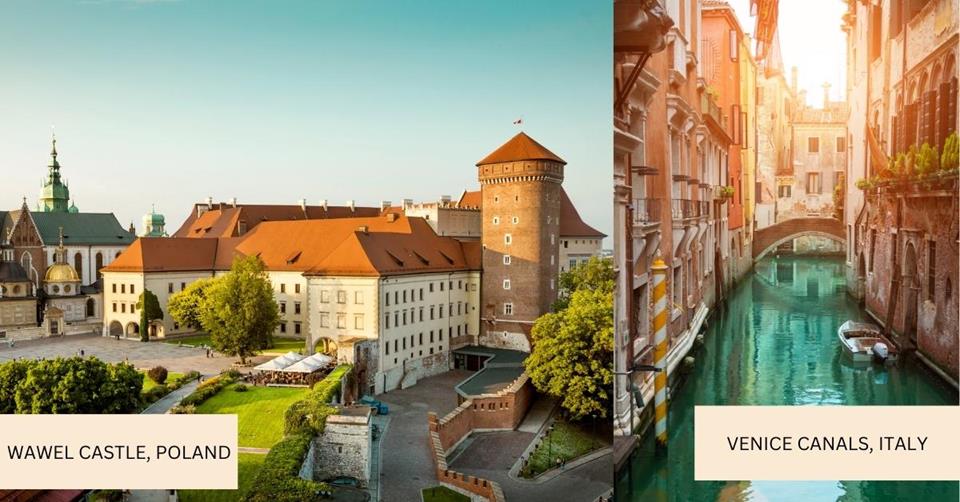
If you want to visit Europe during winter, consider visiting Portugal, Spain and Italy. These three are close to each other. They also have affordable accommodations and generally have fewer tourists during this season.
In Italy, you can enjoy the Colosseum without crowds , explore the mountains, and spend time in museums. You will also have the luxury of spending the entire 3 weeks in Italy , covering north to south. From mountains, vineyards, and historical places, to Mediterranean beaches. If you are foody, you definitely have to try these best Italian desserts .
On the other hand, Portugal doesn’t suffer from freezing temperatures even in the middle of the winter season, so you can still enjoy the sunlight and do various outdoor activities such as hiking. There are popular Instagrammable spots in Portugal that are worth a visit, and of course, wine and food.
You want to see Porto and Lisbon, especially if you want to hike the popular Santiago de Compostela route. Once you get to Porto, stay near a bus or metro stop, both budget-friendly ways to move around. If you don’t know where to stay in Porto, near the historic centre of Ribeira District, both offer affordable options.
Don’t forget Lagos; it offers such wonderful water activities. This is an incredible destination if you plan to visit during summer. Lagos is located in the Algarve region, a popular area for its coastal features. If the water is too cold during winter in the Algarve, there are other things you can do, such as hiking, visiting chapels, enjoy a road trip.
If you are heading to the capital, decide on the activities, from museums, beaches, hiking, and even night-out parties. Knowing what to pack for Lisbon will ensure you don’t waste your time and money. Check our itinerary for 3 weeks in Portugal .
Lastly, Spain holds some of the best festivals on the continent during this season . During winter, the best places to visit in Spain are Seville, Barcelona, Madrid, Granada, the Canary Islands, and Costa del Sol.
There are so many places to see in Madrid, and probably a good 5 days here is the perfect spot. At the same time, Barcelona for 2 days will allow you to cover too many attractions.
But please, do not miss the Canary Islands – like no other in Europe. We have 3 weeks in Spain. Below are the budget ranges you should allocate for food, guided tours and accommodation. You can also check out our 3 weeks in France, Italy, and Spain itinerary .
- food budget per day: $20
- guided tours cost per day: $15-$30
- accommodation cost per day: $25-$45 as a backpacker or $70+ for mid-range
- 3-week budget: $1,200-$1,800 (excluding flights to and back)
Mid-range – UK, France, Germany
If you want to spend more, visit the UK, France and Germany. These countries are rich in history and are close to each other, so much so that you can take trains to cross borders. They also have great wine and beers, so this option is perfect for wine and beer enthusiasts.
Check out our 3 weeks in Central Europe itinerary, which features Germany, Poland, Czechia, Switzerland, Austria, Slovakia, and Hungary. But if you prefer the West, we also have an itinerary for 3 weeks in Western Europe or a sole 3 weeks in Germany post.
If this is the region you want to visit, it’s best to come during the off-season, which is either from March to May or September to November. The prices are lower, and there are fewer crowds.
If you visit the UK, you can finally see Big Ben in London and London Bridge . You can spend your holiday in England, which hosts festive Christmas markets and drink hot chocolate while wandering about or seeing the world-famous Isle of Skye in Scotland.
There are many ways to explore the UK. We have a guide for 3 weeks in England only, or you can also explore the entire country and do 3 weeks in the UK .
However, if you have been to the UK before, you probably want to visit Ireland this tim e. You can combine Scotland, Northern Ireland, and Ireland. Please look at our 3 weeks in the UK and Ireland itinerary .
In France, you can take a picture of the Eiffel Tower or visit the Louvre if you’re a museum enthusiast. You can also try out their seasonal cuisines and go on a shopping spree as they have a government-mandated citywide sale during this season, also known as “soldes”. And yes, we have an itinerary for 3 weeks in France .
In Germany, you can go to thermal bathhouses to experience their outdoor pools and saunas . You can also ride their historic cable car, Merkurbergbahn, to see the snow-covered pine trees. Here are the daily price ranges for food, accommodation and tours.
- food budget per day: $25-$35
- guided tours cost per day: $30-$50
- accommodation cost per day: $35-$50 for backpackers or $80+ for mid-range
- 3-week budget: $1,900-$2,800 (excluding flights to and back)
Affordable Summer Destination – Italy, Croatia, Greece
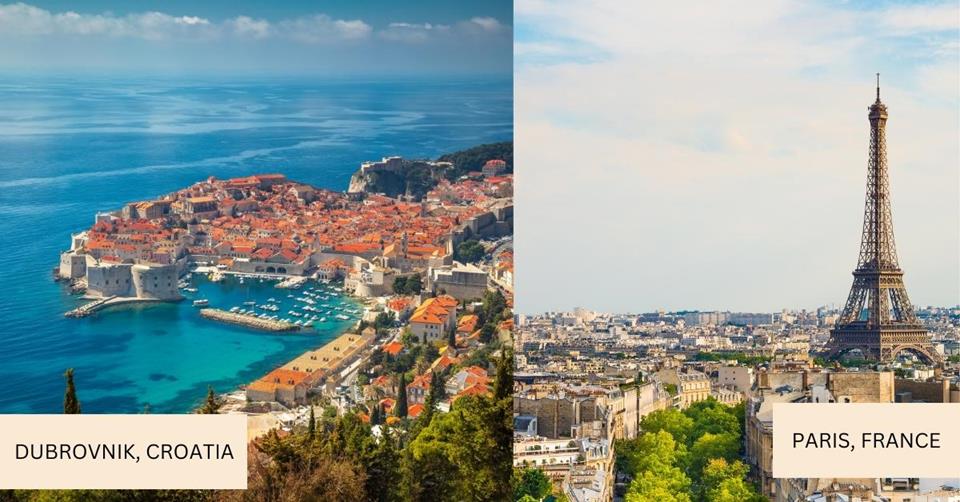
For affordable summer destinations, Italy, Croatia, and Greece are must-visits. They are not necessarily next to each other or affordable. Italy is expensive, but Greece and Croatia are a bit more affordable so that balances it out.
Another thing is that flights between these three countries are affordable. Plus, it’s in Southern Europe ; there’s no better place for a beach vacation in this region.
These 3 destinations serve great food, wine, and beer and are rich in natural scenic spots like beaches and mountains. Personally, I would say this is the best way to explore Europe in 3 weeks on a budget.
Italy is known for their fantastic food. You can go on a gondola ride in Venice and have wine tastings in Sorrento, which sounds like a perfect summer getaway. Venice is not really a budget-friendly destination.
But, if you want to make this trip affordable, check out the coastal cities on the southeast side of Italy. Not only are they cheaper for vacation in this expensive country, but they are also less crowded.
Greece is a famous summer spot as well. You can visit Mycenae, an ageless arch made with monumental stones that was once a dwelling place of some of the most famous people in Grecian history, including Agamemnon, Electra, and Orestes. You can also have a road trip with your friends around Pelion or just chill and have a slow day in Hydra.
This country is an excellent choice if you want to experience the Mediterranean Sea but want to do Europe in 3 weeks on a budget. 3 weeks in Greece is a little more affordable than Spain, France, and Italy.
Croatia is now known for its location in Game of Thrones, but it has more to offer. You can go coral diving during the summer season. You can also avail yourself of a boat trip, hike, swim, cycle or sail; honestly, the sky’s the limit with the number of things you could do here.
It’s another more affordable destination but located ion on the Mediterranean Sea. You can check our 3 weeks in Croatia itinerary too.
- accommodation cost per day: $25-$35 or $50 and up for mid-range
- 3-week budget: $1,000-$1,800(excluding flights to and back)
Drinks and Beach – France, Poland, Greece
If you are the type of person who wants to lounge along the beach while drinking wine or beer, then this triad is perfect for you . Aside from that, these countries are rich in historical artefacts and landmarks, and flight tickets are cheap.
One of the most famous beaches in France is Plage de la Cote des Basques in Biarritz, which you’ve probably read about in Hemingway’s The Sun Also Rises . Another famous beach is the Deauville beach in Normandy, where Coco Chanel opened her first clothing store and held historical value .
Sopot is one of the most famous beaches in Poland , especially for the locals, because aside from chilling and sipping wine along the bay, you can also take boat rides, and there are spas and saunas nearby.
Swinoujscie Beach is famous for its water sports because of the constant wind and waves. It also has a windmill nearby which is considered its most famous landmark. Greece has the most beautiful beaches in Europe, so you won’t have difficulty looking for a great beach there. Some of the most beautiful beaches are Mykonos, Crete and Santorini.
- accommodation cost per day: $25-$50
- 3-week budget: $1,700-$2,800 (excluding flights to and back)
CHECK-OUT: Best itineraries for 3 weeks in East Europe
A bit of splurge – Iceland, Norway, Denmark
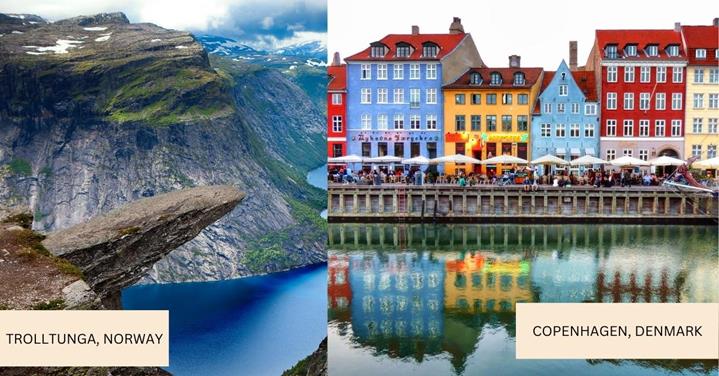
I know Scandinavia or the Nordic region doesn’t scream Europe in 3 weeks on a budget. But if you have a larger budget and want to splurge a little, Iceland, Norway, and Denmark are the perfect places to visit. The best way to make this plan affordable is to rent a car rather than relying on domestic flights, trains, or even buses.
Not super cheap, but it can be affordable if you plan and look for great deals. Remember these tips for visiting Iceland and travelling to Scandinavia for first-time travellers to this region.
You should look at flights and book accommodations 4-6 months in advance . Travelling in the northern hemisphere during the off-season, fall or winter, would be best.
Book hotels in advance to save money and also use local transportation. For instance, if you plan to go during the summer, flights are cheaper if you book them during the winter.
You can enjoy many free or affordable activities like hiking, sightseeing, or road-tripping. You can also enjoy their street foods at a lower price than at their restaurants.
If you are curious, some of the most famous places in Iceland include the Blue Lagoon in Grindavik, a geothermal spa and Strokkur Geysir, where spectacular geysers are found. You can also witness the northern lights if you’re lucky, as the time of their appearance is quite unpredictable.
Meanwhile, in Norway, you can visit the Lofoten Islands or the scenic city of Bergen, which form an archipelago and go to the Lofoten War Memorial Museum. Bygdoy Peninsula is also home to some of Oslo’s top tourist attractions.
In Denmark, you can visit the Tivoli Gardens found in Copenhagen and Nyhavn, the model of most postcards and can also be found in Copenhagen. Here, you will also see the statue of the Little Mermaid, yep, that story was written by the Danish writer, Hans Christian Andersen.
Do you know that you can spend 3 weeks in Scandinavia and cover Norway, Denmark, and Sweden on the same trip? We also have 3 weeks in Iceland itinerary if that’s something you have in mind and a Norway itinerary .
- food budget per day: $30-$50
- guided tours cost per day: $50-$70
- accommodation cost per day: $45-$60 for backpackers or $100+ for mid-range
- 3-week budget: $2,400-$3,500 (excluding flights to and back)
The Baltics – Lithuania, Latvia, Estonia
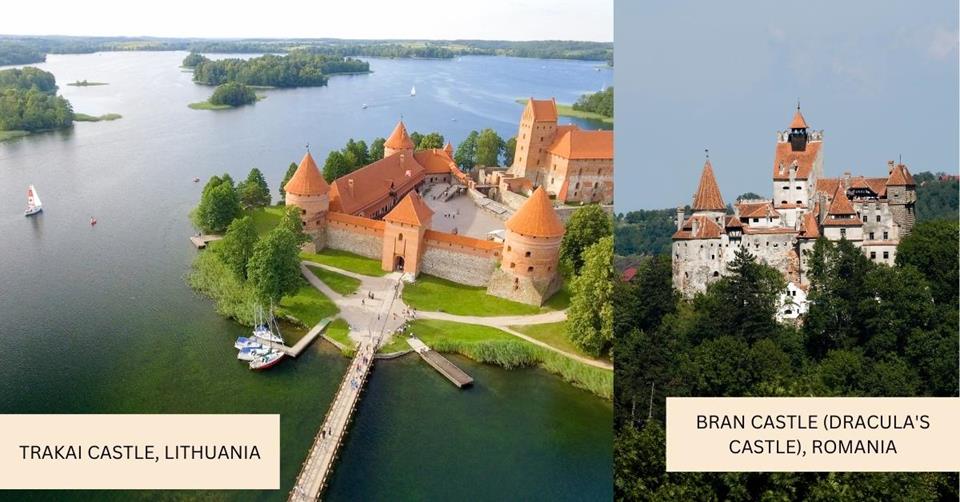
If I’m on a budget, these three countries are my favourite European destinations for Europe in 3 weeks . These places offer a calm and relaxing vibe, from beaches to hiking, to castles, without spending too much.
You can cross the borders via train or bus, saving you money instead of flying. I’m not going to lie. The Baltic beaches are not stunning, but they offer a tranquil scene and few tourists.
I recommend you enter either through Vilnius or Tallinn and make your way north or south. Don’t forget to try cider from this region. It’s one of the best in Europe. Few do this, but road-tripping through the Baltics is the best way to explore this area. It’s more affordable and gives you so much more freedom.
In Lithuania, make sure to visit Vilnius, Kaunas, and Klaipeda. These two cities offer different activities from one another. Vilnius for the cultural and historical experiences and the best nightlife in Lithuania. In comparison, Kaunas is known for its creative and street arts.
Even though it’s a small city, many things to do in Kaunas are related to art. Last but not least, Klaipeda for the beach and other water activities. Make sure to visit Trakai Castle and Uzupis.
From there, make your way to Riga, the coastal capital of Latvia. Enjoy museums, castles, fortresses, and the beach during summer. You can also visit Rezekne, where Raznas National Park is located. Here, you can enjoy hiking, fishing, and even canoeing.
And lastly, Tallinn. A vibrant and modern city, Estonia’s capital and known for being the leading digital powerhouse of the Baltics. Estonia is the pioneer of digital residencies and the first country to welcome digital nomads. Many museums show Estonia’s history and culture. Being on the coast, you can enjoy the beach during warm weather and other water activities.
- food budget per day: $15-$30
- accommodation cost per day: $35-$50 for backpackers and $60+ for mid-range hotels
- 3-week budget: $1,400-$2,300 (excluding flights to and back)
SUMMARY OF EUROPE IN 3 WEEKS
Europe might be expensive in general, but with enough planning and research, you should be able to create a travel plan for Europe without spending too much.
Our own guide to Europe in 3 weeks on a budget, consists of our personal list of places that I visited and perhaps you can visit them as well depending on your budget, season and activity preference.
These budget ranges are for participating in group tours and eating in bazaars, holiday fairs or mobile food carts instead of going to fancy restaurants.
Next summer, I plan to be in Europe for 3 weeks visiting Italy (can never get enough!, Slovenia, and Czechia.
We hope reading this has been enjoyable and informative for you as much as compiling this list has been delightful. We also hope you would consider going to Europe because there are many famous scenic spots and hidden gems just waiting to be visited.
SAVE THIS TRAVEL ITINERARY ON YOUR PINTEREST:
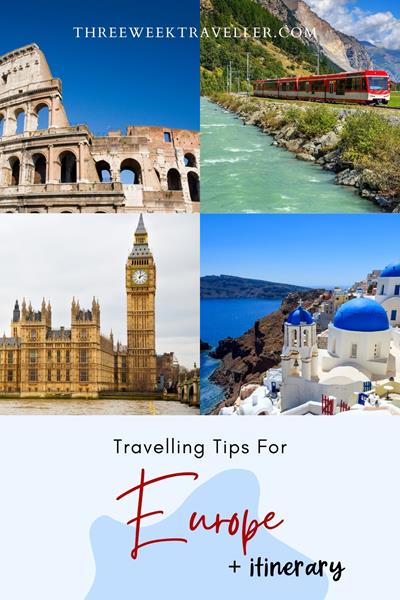
- Travel Planning Guide
Europe Travel Cost Rankings
- Travel Budgets
- Country Travel Cost Rankings
- Cheapest Cities
- Country Budget Comparisons
What are the cheapest and most expensive countries to visit in Europe?
The following travel cost rankings for countries in Europe are calculated based on the travel budgets of real travelers. Also referred to as a Travel Cost Index , or a Backpacker Index , the countries below are in order from most to least expensive by their average daily travel price, per person, per day
- 1 Switzerland € 266.00
- 2 France € 233.73
- 3 Liechtenstein € 231.69
- 4 Iceland € 190.78
- 5 Luxembourg € 183.97
- 6 Denmark € 179.50
- 7 Netherlands € 175.49
- 8 Italy € 166.54
- 9 Andorra € 164.38
- 10 United Kingdom € 162.65
- 11 Finland € 157.09
- 12 Austria € 150.91
- 13 Spain € 150.06
- 14 Ireland € 142.95
- 15 Belgium € 142.20
- 16 Sweden € 128.73
- 17 Slovakia € 126.32
- 18 Turkey € 122.06
- 19 Malta € 117.43
- 20 Latvia € 113.66
- 21 Portugal € 105.95
- 22 Montenegro € 104.13
- 23 Czech Republic € 103.17
- 24 Estonia € 101.94
- 25 Cyprus € 98.96
- 26 Croatia € 94.57
- 27 Slovenia € 93.30
- 28 Lithuania € 91.97
- 29 Romania € 76.95
- 30 Albania € 74.55
- 31 Bosnia and Herzegowina € 68.44
- 32 Bulgaria € 64.04
- 33 Belarus € 62.45
- 34 Russia € 60.69
- 35 Poland € 59.70
- 36 Serbia € 36.54
- 37 Georgia € 30.75
- 38 Armenia € 27.38
- 39 Ukraine € 23.02
- 40 Azerbaijan € 0.00
The Cheapest Cities for Other Regions
Country rankings for other regions, what are the cheapest countries to visit in europe.
The least expensive countries for travel in Europe are currently Azerbaijan (€0.00), Ukraine (€23.02), Armenia (€27.38), Georgia (€30.75), Serbia (€36.54), Poland (€59.70), Russia (€60.69), Belarus (€62.45), Bulgaria (€64.04), and Bosnia and Herzegowina (€68.44).
What are the most expensive countries to visit in Europe?
The most expensive countries for travel in Europe are currently Switzerland (€266.00), France (€233.73), Liechtenstein (€231.69), Iceland (€190.78), Luxembourg (€183.97), Denmark (€179.50), Netherlands (€175.49), Italy (€166.54), Andorra (€164.38), and United Kingdom (€162.65).
Affordable Travel in Europe
Subscribe to our newsletter.
By signing up for our email newsletter, you will receive occasional updates from us with sales and discounts from major travel companies , plus tips and advice from experienced budget travelers!

Pin This Page

- Privacy / Terms of Use
- Activities, Day Trips, Things To Do, and Excursions
This browser is not supported. Please use another browser to view this site.
- All Save & Spending
- Credit cards
- Newcomers to Canada
- All Investing
- ETF finder tool
- Best crypto
- Couch potato
- Fixed rates
- Variable rates
- Mortgage calculator
- Income property
- Renovations + maintenance
- All Insurance
- All Personal Finance
- Finance basics
- Compound interest calculator
- Household finances
- All Resources + Guides
- Find a Qualified Advisor
- Monthly budget template
- ETF Finder Tool
- Student money
- First-time home buyers
- Guide For New Immigrants
- Best dividend stocks
- Best online brokers
- Where to buy real estate
- Best robo-advisors
- All Columns
- Making sense of the markets
- Ask a Planner
A Rich Life
- Interviews + profiles
- Retired Money
Advertisement
By Barry Choi on May 8, 2018 Estimated reading time: 6 minutes
How to plan a Europe trip for less than $2,500
Tips for a quick, affordable, solo adventure
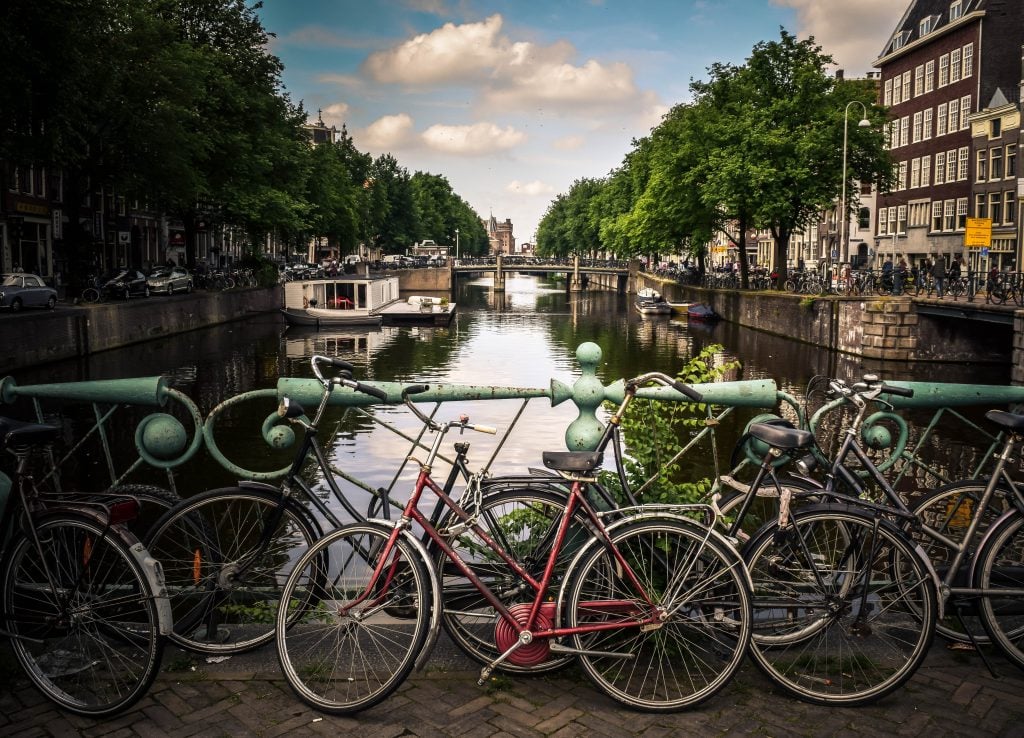
Your first Eurotrip is something you’ll never forget. With so many different countries and experiences to choose from, it may be impossible to decide on what to do and what to see. But regardless of where you end up, there’s no denying that you won’t be disappointed.
However, if you’re a solo traveller on a one-person budget, does that mean you’ll have an inferior trip? Thankfully, that’s not at all the case. Europe is one of the best places to visit solo since you can plan your trip based on how much you want to spend, with many parts of the continent being quite affordable. To inspire you, here’s how to plan a week-long Amsterdam, Paris and London Eurotrip for less than $2,500 as a solo traveller
Transportation
Cost: Approximately $1,170
Generally speaking, regardless of where you’re flying from in Canada, you should be able to find a flight to Europe in the off-season for about $700 – $950 Canadian. Prices drop by about $100 – $200 if you’re willing to have a stopover or you find a seat sale. If you fly multi-destination (where you fly into one city and out of another), you’ll avoid backtracking and possibly save a bit. Since prices can vary, check out KAYAK’s price alert and explore tools to find flights that work within your budget.
READ: How couples can visit Hawaii for less than $3,500
As for getting around Europe, you can choose to take a bus, train, or plane to get between cities. Discount carriers are aplenty so it’s quite inexpensive to fly if you need to cover more ground. For my recommended itinerary of Amsterdam, Paris, and London, taking the Eurostar train shouldn’t cost you more than $200 if you book in advance. If you book at least two months in advance, you shouldn’t pay more than $85 CAD per ticket. If you take public transportation within each city, it shouldn’t cost you more than $10 a day to get around each city.

Accommodations
Cost: Approximately $600
If you’re looking to save money, hostels will always be your cheapest option where a shared dorm will not cost you more than $30 CAD a night. If you want something a little bit more private, a private room with your own washroom in a hostel or even an Airbnb apartment should cost you about $100 a night.
The price of accommodations drop when you get outside of the core tourist areas, but that doesn’t mean you need to stray too far from city centres. Reasonably priced accommodations ($80 – $130 per night) can be found around Luxembourg Gardens in Paris, Russell Square in London, and Museumplein in Amsterdam. Just remember to book as early in advance as possible.
What to see
Cost: Approximately $250
The nice thing about Europe is that many things are free. In London, you can visit some of their top sites including the British Museum, Natural History Museum, National Gallery, and the Tate Modern at no charge. If you’re able to get a reservation, views from the Sky Garden are free whereas The Shard charges £28.95 ($50 CAD) when booking in advance.
Over in Paris, the Paris Museum Pass is arguably the best bang for your buck. The pass is good for two or four days and will cost you 48€/62€ ($73/$95 CAD) and gives you access to 50 + sites including The Louvre, Palace of Versailles, Arc de Triomphe, Musée d’Orsay, and much more. Best of all, this pass allows you skip the lines at many of the venues to help you maximize your time.
MORE: How a family can see New York for less than $4,500
The I amsterdam Card may seem expensive at 74€ ($113 CAD) for 48 hours, but not only do you get access to the city’s best museums and attractions, but you’ll also get an included canal cruise and unlimited use of the GVB public transport in Amsterdam.
Despite the fact that all these passes offer good value, keep in mind that you may only be in the city for a few days so you’ll end up rushing things to ensure you get your money’s worth. It may be a better idea to just pick one or two attractions per city and just soak in the culture at a slower pace. If you extend your trip another week, then definitely consider one or all of these passes.

What to eat
Cost: Approximately $280
Don’t forget to factor in the cost of meals in your budget. As a solo traveller, you should be able to eat for well under $40 a day. Some meals will only cost you a few Euros so don’t feel guilty if you decide to splurge on a meal from time to time. Be sure to have fries with mayo from Manneken Pis in Amsterdam and Indian food from Dishoom while in London.
Getting more bang for your buck
All of the estimated costs are meant to be average prices, but there are ways to stretch out your dollar. Obviously, if you stay longer and are willing to stay in hostels, then the average cost per night can drop significantly.
Joining a tour instead of travelling solo can also save you a fair amount of money. Busabout has a two-week Hop-on Hop-off pass (good to travel any two weeks from May to October) for $549 and they also offer suggested accommodations (usually hostels) for just $30 a night.
If you’re looking to explore more exotic parts of Europe, Intrepid Travel has an 8-day Croatia Sailing Adventure priced at $1,901 which includes transportation, accommodation and some activities. Alternatively, they offer a Highlights of Italy trip starting from $1,530. These tours don’t include airfare, but you can see how they can help you save.
Total estimated cost for one week in Europe for a solo traveller: $2,300
The estimated price is meant to give you an idea of how much to budget, but in reality, you could probably spend less if you wanted to. It’s worth spending more than a week in Europe so you can explore more cities, so save accordingly. But if you’re looking for a quick, affordable adventure, this might just do the trick.
Barry Choi is a personal finance and budget travel expert at Moneywehave.com . He makes regular media appearances where he talks about all things related to money and travel.

[bc_video video_id=”6023929391001″ account_id=”6015698167001″ player_id=”lYro6suIR”]
Share this article Share on Facebook Share on Twitter Share on Linkedin Share on Reddit Share on Email
Comments Cancel reply
Your email address will not be published. Required fields are marked *
Related Articles

How long it takes to get your tax refund in Canada—and how to spend it
Got a refund? Lucky you! Find out when you’ll get the money, what to do with your income tax...

No tickets for Taylor Swift in Toronto or Vancouver? See the costs of an international show
Canadians are travelling the world for concerts and other events. Here’s how to see the Eras Tour abroad—maybe for...

Credit Cards
The best no foreign transaction fee credit cards in Canada for 2024
Cards that waive or refund the fee for foreign currency charges are few and far between—but if you’re a...

The best travel credit cards in Canada for 2024
These impressive travel cards can help turn your everyday spending into flights, hotels and more.

Wise card Canada review 2024
This prepaid travel card eliminates foreign exchange charges on your purchases abroad, though the loading fees could irk some...

How to save money on a Disney Cruise
Planning a magical Disney cruise doesn’t have to cost your family a fortune. Here are some cost-effective ways to...

New Vancouver dates: RBC offers Avion Rewards members exclusive ticket allocation for Taylor Swift
The Eras Tour is coming to Canada. See how you can access the Avion Rewards ticket offer and other...

Travel hacks to help you save money on your next trip
Here are some ways Canadians can save money on travel for holiday vacations and beyond—including flight hacks, thrifty destinations...

“Yes, concerts are experiences—and I’m spending my money on them!”
I explore the impact of prioritizing spending on experiences over material things through my Bruce Springsteen concert experience. With...

How much does it cost to raise a child in Canada?
Inflation has made daily living more expensive, especially if you have kids. Find out how much it will cost...

Accommodations
As you can imagine, your Europe trip cost will vary greatly depending on your style and where you visit. I recommend budgeting $150 a night for your hotel, which works out to $2,100 for 13 nights. From hostels to luxury hotels, Europe gives you many options to easily find accommodations that fit your budget.
If you’re backpacking through Europe, hostels will probably be your choice of accommodation. If you decide to go that route, the average price is $15 – $20 a night. Alternatively, there are a lot of great boutique hostels out there that cost more but offer a better experience since they’re competing with hotels and Airbnb.
Recommendations: YHA London Central (London), Barnacles hostel (Dublin), The Flying Pig Uptown (Amsterdam), Goodmorning Hostel (Lisbon)
Mid-range hotels
For those who think $150 is expensive, I would argue that it’s on the cheaper end. The reality is that hotels are expensive these days, so getting one for $150 a night is a pretty good deal. Remember, this is just an estimate. In some European countries, some hotels will cost you more while others will cost you less. You can also follow my guide on how to save money on hotels .
Recommendations: Alhambra Hotel (London), Stauntons on the Green (Dublin), Hotel Nicolaas Witsen (Amsterdam), Hotel Excelsior (Lisbon)
Luxury hotels
There will likely be luxury hotel options regardless of what city you’re visiting. If you like the experience or don’t mind spending the extra money, you may want to budget another $200 – $300 a night. Your Europe trip cost will skyrocket if you’re going for luxury stays.
Recommendations : The Langham (London), Clontarf Castle (Dublin), Amsterdam Marriott Hotel (Amsterdam), Iberostar Lisboa (Lisbon)
Depending on the city, I sometimes prefer to use Airbnb. I’ve been able to find private apartments in good locations for about $100 a night. If you’re travelling with kids or family, Airbnb can be a great deal since you should easily be able to find a space that fits your entire party. I do admit that Airbnb has become more expensive over the years, but it’s still a good hotel alternative.
If you have the right credit card, you can save a fair amount of money on hotels. Americans should strongly consider the Marriott Bonvoy Brilliant American Express Card since you can earn up to 95,000 Marriott Bonvoy points and $300 back at U.S. restaurants as a welcome bonus . Canadians should consider the Marriott Bonvoy American Express , which gives you up to 75,000 Marriott Bonvoy points. That’s enough points for a few free nights at some hotels, which could easily have a value of over $500.
Local transportation
Since I assume you’re doing thee cities during this trip, you’ll need to factor in flights and/or trains to each destination. I’m also assuming you’re booking a multi-destination ticket, so you don’t need to backtrack. Realistically speaking, budgeting $400 for location transportation may be a bit high, but remember, you must also pay for trips to/from the airport, day trips, and any other public transportation you use.
Generally speaking, getting a Eurail pass won’t be worth it if you’re in Europe for just two weeks and visiting three cities/countries. If you’re going to neighbouring countries or taking day trips, buying tickets as needed is fine. That said, buying your train tickets well in advance (even before you depart) is usually worth it, as you’ll get better prices and a confirmed seat.

Attractions
This is where things can get tricky. Attractions aren’t expensive, but if you keep going into them, you will naturally spend more. First off, always do the free things in every city. That means checking to see if any museums or art galleries have no entrance fee. Note that even museums with an admission charge (including big, famous museums like the Louvre Museum in Paris) usually have a free day, so you must see if the timing works out.
Parks are always free, and quite often, simply walking around neighbourhoods is the best way to see a new city, and that doesn’t cost you anything. In Europe, there are also many free walking tours – well, you need to pay a tip – but that’s a cheap way to learn about the city.
Finally, check to see if museum passes will help you save money. Many cities offer something such as free entry into a bunch of attractions for a fixed price for a set period of time, e.g. 24, 48, or 96 hours. You would need to do the math to see if the cost of the attractions you’re interested in makes up for the cost of the pass.
If you plan to pay for some attractions or do day trips into the countryside to see some of the local landscapes, check to see if Klook sells tickets. Buying your tickets in advance usually means you can get a small discount and skip the lines when you arrive.
Food and drink
The food and drink budget will vary by person, but a rough estimate for a meal, including drinks is as follows:
- Breakfast – $5
- Lunch – $10
- Dinner – $30
That works out to $45 per person per day, which some people think is too much, while others think it’s too low. If you like to drink alcohol, you’ll need to budget more. What I personally try to do is balance eating street/fast food with restaurants. I also go to grocery stores to get breakfast and snacks, which saves me a lot of money. Cutting back on eating out will help you see Europe on a budget.
Every city and country you visit will have some local delicacies which I highly recommend you try. To this day, I’m still mad at myself for not having tapas in Spain because I thought it was too expensive. I’m not suggesting you blow your budget on food, but it’s okay to splurge occasionally. Even then it doesn’t need to be fancy. A baguette and cheese in Paris is pretty cheap but also delicious.

Random spending
Many people forget to include shopping when planning their vacation budget. It’s silly to think that you’ll spend nothing on random things; you’ll buy gifts for people, right? Plus, you’ll want to pick up plenty of souvenirs for yourself, regardless of how tacky they appear. There’s nothing wrong with buying gifts for yourself or friends; you just want to make sure you budget for it.
As you can imagine, some cities have better shopping experiences than others, so you must consider where you’re going and budget accordingly. For example, you may be headed to Italy and intend to buy a leather purse. There’s nothing wrong with that. Just make sure you’ve set aside some money for that purchase.
As a general rule, you should set aside $200 or 200 Euros for those random expenses that come up. Heck, even spending some extra money on sightseeing can be worth it.
Cost to go to Europe
So how much does it cost to go to Europe for two weeks? You know the answer – it depends! But, a good estimate is about $4,280. One time I spent just $2,300 because I focused on doing it for as cheap as possible. Another time I spent closer to $8,000 (for two people) when visiting just three cities. The cost of a Europe trip depends on you, but it’s not hard to stretch your travel budget.
For more European inspiration, check out my guides to Scotland , Italy , Croatia , Austria , Malta , Greece , and Amsterdam on a budget .
Frequently asked questions
Is it possible to see europe on a budget.
Absolutely! But it will take some planning. The biggest thing to remember is what countries or cities you visit. Places like London, England, Paris, France, Copenhagen, Denmark, and Florence or Milan in Italy will cost a lot more than places like Romania, Poland, Bosnia, Slovenia, and even Croatia. There are also several other ways to help cut costs and see Europe on a budget, even in the pricier destinations. Take a look at my Europe on a budget article for more tips and advice on how to see and do more for less.
Is it safe to backpack Europe?
Generally speaking, yes. This is somewhat of a blanket statement as Europe is a huge place and different countries and even cities will have some not-so-savoury places that are best avoided. But that’s the same everywhere. Some cities are very backpacker-friendly, such as Berlin, Zagreb, Luxembourg, and Munich.
You should be fine if you travel smart, follow basic safety protocols, and trust your gut. At the end of the day, use common sense. Don’t go to a bar with strangers and get black-out drunk. That’s not a good idea anywhere.
If you are uncomfortable or unsure about doing it yourself, you can always book a package tour or even a cruise. However, these will dramatically increase your costs and don’t allow for as much flexibility.
Are rail passes worth it?
It depends. Rail passes, such as the Eurail Pass , can be great because they take out a lot of planning and leg work and make it easy, but you pay for that convenience. Oftentimes there are more affordable transit options that are just as comfortable. Many countries have slower local trains that you can take advantage of. In some places, like Ireland, the bus system is better connected (and cheaper) than trains, etc.
If you are trying to figure out how much does it cost to go to Europe because you are on a tighter budget, it’s worth taking the time to do a bit of planning and do it on your own. If money isn’t an issue and you are more concerned about convenience, then a rail pass might be worth it for your Europe tour.
What are some fun things to do in Europe?
Europe is a popular destination for North Americans because it’s so different from here in many ways. The history and architecture are incredible; it’s wild to think some buildings are centuries older than Canada. Food is another huge perk to travel in Europe. It’s so varied across the continent, and while we have plenty of food options from different cultures in Canada and the USA, it’s always better from the source.
You may also be interested in visiting Europe for specific events. Perhaps St. Patrick’s Day in Ireland, or Carnival in Venice, or the Christmas markets of Germany. Don’t worry about finding things to do in Europe, and there’s plenty.
What are the best places to visit in Europe?
This depends on your interests. Are you interested in history? Maybe cities like Berlin and Vienna will be the most interesting for you. Love art? Perhaps Paris is the best option. More into beaches and nature? Try Croatia. Some people have dreamt about the canals in Venice and the Leaning Tower of Pisa, so they make Italy their priority.
What are the five most important tourist attractions in Europe?
It depends on your likes and interests. What is interesting to me might not be interesting to you. That being said, the most popular tourist attractions in Europe include:
- The Eiffel Tower in Paris
- The Colosseum in Rome
- Neuschwanstein Castle in Germany
- The Acropolis in Athens
- Stonehenge, England
- Aurora Borealis in Iceland
What are some unusual things to do in Europe?
Europe has plenty of weird and wonderful things to do that you wouldn’t necessarily find in North America. A few recommendations include the following:
- Visiting Sedlec Ossuary just outside of Prague (It’s made of human bones)
- Eat haggis in Scotland
- Attend a Krampus Run in Austria (Krampus is essentially a Christmas demon that kidnaps and tortures children. Like an anti-Santa)
When is the best time to go to Europe?
This can depend on your goals and the destination itself, but generally speaking, the shoulder seasons (September/October and April/May) are great. It’s not too crowded, the weather is pleasant, and you can avoid peak season costs.
How long can I stay in Europe?
While many backpackers love to do European tours, you need to be mindful of the amount of time you are allowed to spend not just in a specific country but in an area. Many European countries are part of the Schengen Zone, and Canadians and Americans can only spend a total of 90 days within a 180-day period in these places. Examples of Schengen zone countries include Austria, Netherlands, Spain, Poland, Italy, Iceland, and more.

About Barry Choi
Barry Choi is a Toronto-based personal finance and travel expert who frequently makes media appearances. His blog Money We Have is one of Canada’s most trusted sources when it comes to money and travel. You can find him on Twitter: @barrychoi
128 Comments
Great post. Our vacation plans for this year is to go to Denmark and Sweden. I heard that Scandinavia is really expensive. I found airline tickets for $1,600 for 2 people. Still looking for accommodations at Airbnb. My plan is not to go over our budget of $5k for our 11 day trip.

I’ve actually heard Scandinavia is expensive so let me know what the real costs are after. The good thing is, flights to Scandinavia have never been cheaper. You can get cheap flights if you fly via Iceland and I’ve also seen cheap airfare on Noreweigian.
Hi Barry! I’m planning an all girls trip (around 6 girls) to Europe from Pakistan. Which countries/cities would you recommend? Also we all have a budget of $2500 per person. Do you think it would cost less on accommodation as the cost would split? And would love if you can give some tips?
So I recommend talking to your girlfriends and asking what cities/countries they’re most interested in first. From there, you can try to figure out logistics. Your flights will be the biggest expenses. If you fly into one city and out of another, you won’t need to backtrack. E.g. fly into Paris and out of London.
As for accommodations, since there are 6 of you, you could look for a hostel that has rooms for 6 – 8 with a private room. If you buy out every bed in the room, you’ll have the entire place to yourself. That will likely be cheaper than getting 2-3 hotel rooms each night. You could also look for an Airbnb that accommodates 6, but that might be tough.
$2,500 a person is doable (depending on the destinations) and how long you go for, but I always recommend budgeting extra. This sounds like a really fun trip for you and your friends, the last thing you want is to be watching your budget the entire time you’re there.
Hi I’m from south Africa and I’m looking to travel to barcelona for 2 weeks.
I’m a student so I’m looking for as cheap as possible but I dont want to miss out on anything.
I have a friend living in barcelona so accommodation is already paid for which is a big expense luckily.
We are looking to travel to Greece and Amsterdam during this time.
Was wondering if I take 2000 euros if that would be enough for the two weeks.
Kind regards Jonathan
Hi Jonathan, if you’re staying at hostels or inexpensive accommodations when you’re in Greece and Amsterdam, that should be enough. I’m assuming your flight isn’t part of that 2000 Euro budget.
Nice post but the airfare costs seem to have gone up from your estimates.
Lowest price to Germany from Toronto was $1000 and that was a deal where you are estimating $850 CDN. Plus $200 travel insurance.
Hey Heather,
Yes flight prices have gone up this summer. I expect them to drop during the fall, but I haven’t researched it thoroughly yet.
Thanks, Barry! You always have the best budget/travel advice 🙂
[…] is one of few places that actually has a decent choice of accommodations that won’t burst your travel budget. Hostels are always a favourite among solo travellers, and there are plenty to be found around the […]
I know this is a little old of a thread. I was able to backpack europe with a friend, and only staying in Airbnb. 980$ is what was spent on lodging. We were gone for 4 weeks. The total trip was $5,000 which included souvenirs, trains, rental cars, ferries to the Greek Islands and 4 flights. Two were one way tickets from JFK to Paris, then London to JFK. One of the flights was also $400 from Croatia to Greece. Some of the trains and ferries were accidentally booked first class (which after doing so, I recommend).
Thanks for sharing. Europe can definitely be cheaper if you want it to be. My prices were rough estimates with hotels in mind instead of Airbnb. I love how travellers can see Europe on any budget and as you mentioned, they may still get the luxury experience unintentionally.
Thanks for putting this site togehter. Im planning for a trip to Budapest and Athens, 1 week each, the first 2 weeks of October. Is it still tourist season at this time? Some say prices only drop mid way or end of October. Can you confirm or deny this?
October tends to be slower for Budapest, but depending on where you go in Greece, parts may still be busy since it’s now cruising season in Europe
Thanks for the rapid response, I’m planning on Athens since I’m greatly interested in the historic sites. Not going to any islands like Crete, Rhodes etc. Also out of interest a question if you don’t mind: do you think the recent economy stabilisation (although it probably won’t last long) will change the price of visiting Greece?
Generally speaking, October is the lower season, but since Athens is so popular, it’s not like you’ll see NO tourists, it’ll still be busy. As for their economic situation, I don’t there will be much change as their economy has been tanking for years without prices at hotels or restaurants falling.
I am planning a Euro trip from Canada. I am intending to visit Croatia, Amsterdam and France if possible London. My budget for me and my wife is 7000 USD.
Any advise is much appreciated. Such as where to start and end must visit places and best time to go.
With that budget, you should have no problems seeing those countries. London, Amsterdam, and Paris are quick train rides away from each other. Although Amsterdam and London can be a bit pricier, during the fall, you shouldn’t have many issues finding a reasonably priced hotel. Paris can be inexpensive if you choose a hotel outside of the main areas, just find a place near the metro.
Adding Croatia gets a bit tricky since it’s not really close to the other countries. THat being said, you can find discount air carriers from London, Amsterdam, or Paris to get there. Most people who visit Croatia see more than just one city which is why you need to decide how much of the country you want to see when planning your trip.
Hello! I’m planning out a ways (gives me something to look forward to) for Europe in spring, 2021. We’ll start at a friend’s relative’s in the Black Forest, then on to Paris by train, then Italy by train. Goals are Rome, Florence and Venice. I’m very excited, as I’ve never been to Europe. With staying free the first few nights in Germany, and then four of us sharing AirBnbs, I’m thinking (depending on airfair) that we might be able to do this for around $2,500 each. That’s the goal. I love the idea of looking for special food everywhere we go. In Puerto Rico, we ate the fried plantains, and I enjoyed those. Not sure what tapas is, but hope you get to go back and eat it!
That sounds like a reasonable budget since you have some of your accommodations covered. As for tapas, it’s basically small plates meant for sharing. I actually went back to Barcelona earlier this year and splurged on tapas this time around. It was worth it!
Good for you. Thanks for the tips. Anne
Hi there, I’ll be visiting Europe for 9 days in Feb-Mar flying directly from Newark to Rome, from there to Paris and end the trip in Madrid. On airfare I spent USD 500, in lodging thru AirBnb and hotels a total of 225. I was wondering how much money should I expect to spend on attractions and food? Note: the amount mention above is per person and we are going to be 6 people in total. Note 2: thank you for reminding me to have a category of random expenses!
How much you spend on food is really up to you. Generally speaking in Rome you can get takeaway pizza, sandwiches, or pasta for 5 – 7 Euros per person. Sit down places will probably cost you 10 – 15 Euros per person. I rented an apartment when I was in Rome last and saved a bunch by stocking up on water, drinks, and alcohol from the grocery store. That being said, food in Rome is EXCELLENT so you could easily end up spending more if you want to try more things. I ate gelato twice a day because it was so good there. I wasn’t even hungry, I just wanted it! I STRONGLY advise checking yelp or tripadvisor before dining at any restaurant as the quality can vary quite a bit. Be sure to ask your host for recommendations.
The costs in Paris will likely be similar to Rome, probably a little cheaper (wine is cheaper than water). I haven’t been to Madrid so I can’t comment there, but I would suggest splurging on tapas one day.
Random expenses ALWAYS come up which is why I always budget a little more.
Planning a 10-11 day vacation for family of three( two adults one 7year old) in July 2019 to London, Amsterdam and Paris planning for a 7000 budget. Does this seem reasonable? Round trip from lax to Heathrow are about 2400 planning on doing Airbnb and we are not shoppers. Most likely spend on food, drinks and attractions. First time big vacation so exited!!!!!! Any feedback would be appreciated
That sounds more than reasonable assuming you’re not staying at hotels that cost you $1,000 per night =D. In Paris, it’s easy to find cheaper accommodations. London hotels can be pricey, but there area areas that are more reasonable. Amsterdam tends to be expensive in general unless you stay in Amsterdam SOuth and the take the train into the main areas. That being said, with your budget, you can likely find hotels in good locations.
We are going to Budapest, Kiev, Chisinau, and a couple stops in western Europe (Paris and somewhere else) in June, 2019, for about 23 days. International tickets aside, and with free lodging in Kiev, do you think $50 per person per day is reasonable? Two adults and one 17 ye old are our ages. We are not backpacking and we feel too old to sleep on someone’s couch for three weeks. Thanks for your input.
Does that $50 a day include accommodations? If not, that’s probably way low for an estimate. Food alone will cost you $50 if not more per day. You also need to factor in local transportation, attractions, and any souvenirs you may buy.
Thank you for this article. I am planning an European vacation for next year during the summer, Our trip can be any time between the months of July and August, there will be three of us, myself and my two daughters, 18 and 12. My budget is about 20,000 USD, I´m going to try to make it as long as I can stretch it, maybe 3 weeks, could it be stretched to 4?. I am not sure where exactly to go, I am thinking England, Paris, Italy for now, but that might change depending on where we can fly in and out of the cheapest. I guess my questions are, given that summer is the most expensive time to travel, which cities would you recommend traveling into and out of? I´m in the east coast. Also, I have read about hostels and I’m aprehensive about using them with my daughters, what is your take on them? Another concern of mine is traveling with my daughters, with me being a woman, are there any cities I should stay clear off because of crime? Any help, guidance is greatly appreciated! Thank you!
Hi! Im playing on going on a 16 day eastern european trip to several countries with a budget of around $2500-2700. I plan to save a lot by going to grocery stores and using airbnb. However, I will be going in the wintertime when the world junior ice hockey championship is so the tickets of a couple games might cost $50-100. Is this a reasonable budget for 1 person?
It can be done, but your flights and accommodations will eat up a lot of your costs. It also depends on how many countries you plan on going to. If you’re going to do Airbnb, try renting a private room as opposed to a private apartment since they’re cheaper.
Is it reasonable to expect to find a ticket to Greece or Italy for the $650 estimated price if we book now for July? I haven’t flown much so not sure, but looking at prices from US on Google seem to be more in the $1000-1500 range. Do I just not no where to go for a reasonable deal on a ticket? Any help is appreciated.
July is the summer so prices tend to be higher. For whatever reason, it’s usually a bit more expensive to fly into Greece as opposed to other destinations within Europe. It might be cheaper to fly into a major hub such as London or Amsterdam and then catching a discount carrier from there.
Note, sorry, I just realized I commented on the wrong place before. I apologize.
That budget is pretty healthy so I think you’ll do alright. Here are some things to consider. Have you talked to your daughters about where they want to go? It may be worth letting each daughter choose one destination or country ad then you pick one. That will give you three spots to build your itinerary around. I do believe you could stretch our your itinerary to 4 weeks as long as you don’t go all out on everything. That being said, even at $250 USD per night for hotels, you’d only spend $7,000 for 28 nights.
Figure out your destinations first and then you can work out flights. Getting to Europe will be more expensive in the summer, but getting around once you’re there is realtively inexpensive due to discount carriers.
Hostels can be okay to save money, but again, your budget is quote high so you’d be better off getting a hotel. ALternatively, Airbnb can be a great option for 3 people. That being said, some hostels have private rooms that sleep 4 and have their own bathroom so they might be worth considering. I just think it would be better to use Airbnb.
As for crime. I don’t think it’s fair to say one city is more dangerous than the other. You should obviously do some research about local scams and find out if certain areas are less safe than others, but use common sense when you travel e.g. don’t show off valuables, don’t walk down dark streets alone.
Thank you for your quick response! I will definitely ask my daughters to pick a city/country they want to visit, and then go from there. I´ll also be reading more of your posts to help me along, and will be asking you questions as well,
Hi, I am trying to plan a 15 day trip (not counting 3 days for travel to and from the United States). We want to spend 3 days in Amsterdam, take a night sleeper train to Munich on night 3. Spend maybe a half day exploring Munich before heading to Italy for 5-6 days. From Italy we want to travel to France for 2 days. From France we will travel to Spain for the last few days and fly home from there. Its myself, my husband and our teenage children. I will probably only have between $10,000-$11,000 for our trip, our flights would not be coming out of that. Normally when we travel, we do bananas and oranges for breakfast to save money but we’ve only traveled in the US so I’m not sure how that would work. Is a trip like this doable on that budget?
It’s probably doable on that budget, but I think you’re packing in too much. You have 15 days and you want to go to the following:
Amsterdam Munich Italy (where I assume you’ll go to more than one place) France Spain
You’ll essentially be on the road every 3 days which is crazy busy. Based on your itinerary, Munich seems like the easiest destination to drop. I’d also even consider dropping Spain so you can spend more time in Italy and France.
There are plenty of grocery stores in Europe so you can eat for cheap for breakfast if you like.
Hi Berry, thank you for your reply. Originally my plan was Amsterdam, Italy and Spain but the sleeper train from Amsterdam to Germany makes since so we can sleep while traveling so we aren’t really losing time there and my husband wants to see France over Spain and its closer to Italy so I guess Spain is out. Yes in Italy we want to do Venice and Rome.
ALthough you would save on accommodations and technically travel, you’re still adding another destination. Right now you’re looking at:
Amsterdam Munich Rome Venice France
This is all in two weeks. Are you going to skip Florence? How much of France are you planning on doing?
Hello Barry!
My husband and I are planning a trip to Europe this summer around July for two weeks. We’re budgeting about $4000 (or a bit over depending) each person and want to visit at least 4 cities while we are there. Our top picks are London, Amsterdam, Paris, and somewhere in Italy! Is it doable with our budget? And will we have enough time in each city? We’re flying out from LA and wondering where we should start first. I think a lot of people fly out to UK and start there. Would that be the best course? And flights look most expensive in July and August. Will we be able to plan something in June or is that too soon?? (It’s almost April already) sorry I just bombarded you with so many questions. Any help is appreciated!! We’re super excited and want to make sure we get the best scenario for our trip!
I second this question from Gloria please!
We have 14-15 days and right now thinking spain, italy, france. Leaning towards warmer time of year where we can maybe go to a couple beaches. However we are open to weather in 60s or above. How soon in advance should we be booking this trip? Any suggestions would be greatly appreciated!
Yikes, I don’t know how I missed Gloria’s question last year.
With 14-15 days, I personally would stick to three locations at max with maybe a few day trips on the site. You could easily spend 14-15 days in each of the three countries you’ve listed. I personally recommend going with what your top priorities are. If you want beaches, Spain and France are probably your best bets. Maybe start in PAris, head to southern France and then make your way to Barcelona where you can fly home? I would save Italy for another trip where you do that country on its own.
Hello! My boyfriend and I are leaving May 9th and returning on June 5th (27 days). We are going to London (staying with family), Brussels, Bruges, Munich, Vienna, Salzburg, Interlaken, Milan, Barcelona & Madrid. We booked all of our hostels & aribnbs, bought the eurail pass and paid for our flights. How much should we bring with us for food, attractions, etc for those 27 days?
It really depends on how many attractions you want to see and if you’re foodies or not. Many attractions (especially in London are free), but you could also spend 10 – 20 Euros per museum which adds up quickly. Be sure to do your research to see what’s free and pick one attraction in each city that you’re willing to pay for. Food can be cheap if you visit the grocery store your entire trip and make sandwiches, but that gets boring fast. Between the two of you, you could spend $20 – $100 a day depending on what you like to eat. That being said, many hostels offer free or cheap breakfast so you won’t need to buy every meal.
I think we planned on doing a grocery store breakfast, street food for lunch, and a sit-down/casual meal for dinner. Naturally, we are trying to stick to free attractions. We both enjoy doing things on our own but definitely will at some point pay to get in.
I think we were each planning to bring $3,000 for 27 days ($6,000 total). This would be for food, miscellaneous transportation & attractions. Do you think this is enough? We don’t plan on living lavishly but also not living like “bums” 🙂
I truly appreciate your reply. I have been reading your articles and you are fantastic. Thank you for your advice!
Hey Audrey,
I think that’s a great budget and you’re being smart about your meals. One piece of advice, don’t save just for the sake of saving while there. Enjoy this month with your boyfriend. I personally would rather save money at home where I skip coffee/snack breaks and pack more lunches. You should be able to enjoy as much gelato as you want in Italy guilt free.
Don’t forget to factor in spending on things such as local transportation and souvenirs. You won’t spend a ton on that stuff, but it’s something many people forget to account for.
Hi, i’m planing to travel to Europe next year around Easter time with my teenage son for 2 weeks, our plans are to visit Barcelona, Madrid (soccer game) Paris and Italy, i estimated $6000 for our budget , planning on using Airbnb and trains and lot of walk , which it could be the more economic order to visit those countries?
Hi Alexandra,
Booking an award flight for 4 persons is challenging.
Hawaii being a popular vacation destination, finding award seats can be difficult. I would suggest to set up price alerts for Hawaii flights as this is a very competitive route. It’s often a better value to pay for the flight than using miles.
As for Asia, the biggest challenge is to find the transpacific flights. But if you book well in advance and are flexible on your dates you can find 4 award seats in business class on Air Canada to several destinations in Asia. You can also often find availability on Air China if you don’t mind a layover in China. United could also be a solution for some routes via one of their major hubs like Chicago, Houston, Washington or San Francisco. Finally, you can be lucky and find flights on EVA directly to Taiwan as they fly to Toronto, Vancouver and several US cities.
Once in Asia, you will have more options since there are more Star Alliance airlines to choose from including Asiana, Singapore Airlines, Air Nippon and Thai Airways. Finding availability is also easier since there are more flights and some airlines like Singapore Airline releases more business class award seats for short hauls than they release for long international flights.
Note that since Aeroplan search engine has limited capacity for long and complicated itineraries, you will have to search for each leg one by one as one-ways to see if there is availability.
In conclusion, it is possible to make such a trip for 4 people in business class, but it will require a fair amount of preparation and luck!
It depends on where you’re flying from and what direct routes you have available. Paris, Rome, and Barcelona are all major hubs so it might not be that difficult to figure out a route. You also need to factor in if there’s a certain date you need to be in Madrid for the soccer game.
Hi there! I came across this post while trying to research info about traveling to Europe. My 2 friends and I are trying to plan a trip to France, UK, and possibly Austria within 8-10 days in mid-December. We’re trying to figure out about how much the trip might cost for each of us if we are able to stay with people we know at these destinations. We threw around the number $2000-2500 USD, but I was wondering if you even thought this would be possible (esp so close to the holidays)? We are planning on taking in the sites as much as we can, and want to experience the culture of each of these places, yet we want to do it on a tight budget! Would love to know your thoughts and any advice you might have.
It’s possible, but your flight alone would eat up a fair amount of your budget. You also need to factor in the train and flights when you’re in Europe. Food can be cheap, but it can add up unless you’re just eating fast food or getting groceries. Many attractions are free, but there will be ones you want to pay for.
I think it would be tight, not impossible, but I’d personally budget a little more.
Thank you for a quick response! We’ll see what we can do – hopefully the trip will all work out!
I think it’s doable but just note that you’re choosing 4 expensive destinations. In Paris and Italy, you can likely find reasonable accommodations but London and Amsterdam are a bit on the more expensive side.
For two weeks, I think 4 cities is the maximum you can do. If you need to drop one, drop Italy as that country deserves a trip on its own. London, Paris, and Amsterdam are all within train distance which will make your life easier. Where you start and begin depends on what direct routes you have available to you and prices. Once you’re on the ground, it’s easy to get around. Heck a flight from London to Amsterdam might only cost you $110 USD one-way.
June is a great time to go, those cities don’t require too much planning.
Thank you so much Barry! We are so excited! 🙂
I will be in England, France & Scotland for 2 weeks in June. Thankfully, I will be staying with a friend. I’m not into buying tons of souvenirs, and I don’t expect we’ll be eating out much. Planning to go to lots of free museums & walks in London. We will take train into London & Paris. I’ve been reading every bit of advice I can. Thank you for your helpful articles!
Hi Barry, Im planning to go Europe trip 2 weeks.What 3 -4 cities can you suggest.Mostly do sightseeing, eat from grocery stores, staying at budget Airbnb or hostels, Do free stuff as possible.How much should be the cost.Including air fare.i will be going with my husband as our wedding anniversary. Thanks
My article gives you a good estimate of costs with some recommended cities. If you’re trying to do things cheap, you should look at eastern Europe. You also need to consider what flights you have available to you e.g. is it cheaper for you to fly direct to say Paris or Rome? There are so many variables in play that I can’t just give you a blanket statement or estimate.
Hi Barry Thanks for getting back to me. We plan to start from Paris then 1 day in Prague then Rome Italy to finish.I want to visit Amsterdam but this city is a bit pricey.I hope 2 weeks is enough to cover major attractions, try food and wander around.
Paris, Prague, and Rome aren’t close together but you can get to each one by taking discount carriers. You should probably restrict your itinerary to 4 cities at max or 3 with day trips. Every city can be affordable if you stay outside of the major tourist areas and use public transit.
Helpful site! But you don’t say where you are based out of, when you mention airfare costs. Info please! And thanks.
Hey Catherine,
I’m based out of Canada, but with flight prices, I tend to give an average from North America.
Where in North America? Big difference between east and west coast!
The east coast.
Hi Barry, So glad I stumbled upon this article, very useful info and helpful advice. Thank you! I am planning a trip to Europe perhaps end 2020 for my family of 6 (3 adults, 2 teenagers & a 11yo) for 2 weeks or max 3 from Malaysia/Singapore. 1st trip. Staying with friends in Manchester, hope to take a trip to London. Also visit friends in Geneva. What other cities would you recommend? possible for a budget of usd15k? Mainly Airbnb, groceries, some eating outs, buying food stuff home, minimal souvenirs, mainly doing free stuff if possible. Thanks Barry.
If you’re staying in Manchester and you plan on going to Geneva too, I would just look for another stop in between the two via a discount carrier. Paris and Amsterdam are likely cities that fit your route.
I think your budget is pretty reasonable. It’s the flights that will cost you the most.
We are currently living in Dubai. We (with my boyfriend) are planning to do a Europe Tour. Which country would you recommend most? Planning for a 3-4 week vacation. Would love to see Paris,Rome, Amsterdam, London, Norway,and Prague. What do you think? Any recommendations for perfect destination for us? And propose budget for both of us?
If you have 3-4 weeks, you can do quite a lot, but I would recommend to sticking to a route that’s logical and limits the amount of time you’re on sitting on trains. Right now you’ve listed all the major cities but Norway is sort of out of the way. If you’re going to Rome, you should probably check out Florence too.
I would recommend choosing 3-4 MUST SEE destinations first and then building your itinerary from there. I can’t recommend you the perfect destination as I don’t know what type of traveller you are or the type of person you are.
Thanks Barry, appreciate your input.
Me and my husband are planning to visit to Amsterdam, paris and swiss by the end of August 2019 from India. we have no clue how to plan a budget travel as we never been there in europe. please give your input to plan our budget travel. thanks in advance 🙂
Just start researching everything. Look up the cost of flights from India first then start looking at hotels or Airbnb in the destinations you want to go to. AMsterdam and Paris are a quick train ride away from each other, but if you want to go to Switzerland, you may need to fly. Switzerland can be quite expensive.
I am glad I stumbled across your website. I have not travelled much at all and never internationally, but I want to take my daughter, who just graduated from high school to France and possibly Germany in the next couple of months.Can you recommend what cities or areas we should see, definitely Paris, but I wasn’t sure if I should consider other areas? I was planning on probably 8-10 days in Europe. We love history and museums and music (my daughter is a cellist and singer). Also, since it’s just the 2 of us and we don’t have any international travel experience, do you think it would be better for us to stay at hotels or Airbnb?
Thank you for all your great suggestions!
Hi Stefanie,
If this is your first time travelling to Europe, you should ask your daughter what city she wants to see most and build around that. 8-10 days will give you enough time to see two cities with maybe one day trip. If she’s a cellist and singer, perhaps Vienna will appeal to her? Hotels or AIrbnb likely wouldn’t make a difference. Just go with what fits your budget.
Im planning a 2 and a half month, Western Europe trip in summer of ’21 and was wondering, if I am backpacking through France, Germany, Belgium, Netherlands, Czechia, Austria, Italy and Switzerland could I reasonably get by with 10,000? Airfare and a eurorail pass to get around wouldn’t be included. Just wanted to know if I am out of my mind or if thats a reasonable price if Im spending 100 a day, on hostels and food and then would have around 2.5 for a little bit of wiggle room. Just wanted someone who has done this before to get their opinion on it please!
If you’re slow travelling and staying in hostels, that amount will likely be more than enough. Some countries will cost more than others but everything should balance in the end.
This was great and gave me better idea’s on a visit to Europe, thank you very much. I’m a 68 year young woman and thinking about going to see my friend in Portsmouth. I don’t have a clue on budget. I’ve never been to Europe so I thought on a budget of $2000. I could possibly do this for 7 to 10 days staying with my friend of course. I’d like to see a couple of places, Rome and Paris.
That budget is tight and likely wouldn’t leave you much wiggle room. Even though you’ll stay with your friend in Portsmouth, you’ll need to get there first which may eat a lot of your budget depending on where you’re flying from. You’ll then need to factor in flights and hotels in Rome and Paris. There’s also food and attractions to consider.
Hi! I’m looking to plan a trip with a friend from LAX to Switzerland. I found round trip tickets to Zurich for $550 and definitely want to go to Grindelwald (we’re both hikers and Harry’s potter fans). It looks like accommodation in Grindelwald can work out to about $100 per day, so $50 per person. Is that a reasonable budget for Zurich as well? We’re not looking at hotels but Airbnb and hostels. We plan to eat maybe 1 meal a day at a restaurant and definitely breakfast at the hostel or Airbnb. Does a budget of about $1,000 per person for one week sounds reasonable to you? I was surprised while pricing it out that accommodation, travel etc. basically double the cost of the trip. Any recommendations for Switzerland (specifically near the Zurich and Grindelwald areas)?
The above $1,000 is for 6-7 days.
If you’re able to keep your accommodation costs down it’s doable, but note that Switzerland, in general, is expensive. You’ll also need to budget for food, transportation and attractions which can add up quickly.
Really a great article. I need your suggestion on my itenary and budget. I am from India and planning a first time trip to Europe covering 14 countries stating from Turkey to Greece (10 days), Italy(10 days), Paris (only) 5 days, Swizterland(4days), Luxembourg 3days, Belgium 4 days, Netherlands 4 days, Austria 7 days, Budapest 3 days, Prague 3 days, Denmark 3 days, Sweden 3 days, Norway 5 days and finally 10 days in Iceland. A total of 75 days in Schengen Area. and 5 days in Turkey. Me and my wife and our 1yr old son will be doing this trip and I plan to start in March 2020. My budget is 13000 Euros. I am planning on getting a EU global pass most of my europe travel will be in trains apart from a few places like India to Paris, Iceland to India and Athens to Venice, etc and staying at airbnb everywhere I go. I also want to do food cheap apart from eating/tasting local delicacies once per city, Only going to free attractions or buying citypasses.
Is this doable? what are your suggestions and comments?
Hi Shankar,
Thanks for reaching out. I think your budget is reasonable, but I think you’re being a bit ambitious with your itinerary. You could likely do it if it was just your wife and you, but with a 1 year old, it’ll be torture.
Train travel sounds easy with a 1 year old, but your son will be on your lap the entire time. Every time he gets adjusted to a new spot (don’t forget about jetlag), you’ll be on the move again.
When I traveller with my wife and 9 month old, we originally planned to do Copenhagen, Stockholm, Amsterdam and Brussels in about 21 days. We realized that we didn’t want to be on the move so much so we ended up doing Rome for 7 days and Amsterdam for 14 days. This made travelling and the experience much easier.
If I were you, I would personally cut back on locations quite a bit.
Thank you Barry. Will do and what locations should I remove If I reduce it to say 45 days If I start in March 2020. What would be my must see locations around March/May timeline.
Really appreciate the quick turn around and please help me with your suggestion
I think you and wife should just choose the locations you want to see most and work from there. I personally quite enjoyed Turkey and it’s not that expensive compared to some other cities. Italy is a bit more expensive but I loved it. March is still a bit cold in England and Scandanavia so maybe start from the east and make your way west?
With 45 days, you’ll still have LOTS of time. It’ll also allow you to enjoy cities more. I mentioned I did 15 days in Amsterdam, that’s considered long since the city doesn’t have much to see, but we enjoyed just going for walks and living like locals.
I’m going to Scotland and Ireland for 10 days in early September. Right now the budget is at $3870 per person. We booked a guided tour which includes all of our accomodations, bus transportation, tours and 19 meals. Plane tickets were $645 per person round trip from North America. Does that seem expensive? My significant other thinks that $387 a day is expensive for Europe. Some meals are not included based on the nature of the tour so we will be on our own.
It definitely seems on the higher side compared to if you booked things on your own, but it’s not an apples to apples comparison. As you mentioned, just about everything is included in your tour including a guide which is why prices are likely higher.
You could do Ireland and Scotland on your own for cheaper, but then you need to figure out all the logistics on your own.
We(4 members) are planning for Europe trip next year. Can i know best time to travel and what is the avg budget during that season. Do also have any travel tips and places to visit for sure. My trip will be 2 weeks period.
Hello I am planning for a family vacation to europe: paris, london, rome, for 4 adults, 2 kids, and 1 infant with budget of $10k which include ticket, hotel, for 10 days on january. Any thought. Do u think that is enough budget.. Is it doable for three places to go. Thanks
How and where can I get best deal for airline tickets
That budget is going to be tough as you’ll need 6 flights and probably two hotel rooms in each location. With just 10 days, doing 3 different locations is likely too much. I would personally stick to two or just one country. As for the best deal for airline websites, I like using Google Flights or KAYAK.
Hi, first thank you for your site and information! I’m planning a solo trip to Europe but not sure how much I should save. I’m flying from NYC and as of today the tickets to my top 3 destinations (Italy, Spain, Greece) are only $350 or less RT. I’ll only be going to only one of the countries and will only have 6-7 days to work with. I’d like to stay in a 3-4 star hotel. What are your thoughts on budget? Should I consider multiple destinations? I honestly don’t want to go over $2k-$3k but I want to pull the plug since the tickets are so cheap.
I know this is vague :/. Thank you so much for your help!
I am planning a trip to Germany – 4 nights, Austria 2 nights and Slovenia – 4 nights. With hotels, flights and innercity transfer its about $2200. I expect my total trip to cost around 3,400 after food, souvenirs, day trips etc Is that good for a solo travel or can i cut it down a bit?
I think that budget is fine. You’ve budgeted a lot for food, souvenirs and day trips, but I don’t think you’ll spend that much.
Hi! Do you have any suggestions for traveling with a wheelchair? We are planning a trip to Europe this summer, July, for 5 people including my son (mobile but in a wheelchair for any distance) and my 82 year old father. Do you have any suggestions? We have a little over two weeks and the only must do is Paris (and Disney). We don’t have a set budget yet but probably about 10,000 not including flights from US.
Unfortunately, as I’ve never travelled with a wheelchair, I can’t really comment. All I can really say is that many cities have quick a few stone roads e.g. Rome and Amsterdam where it may be slightly difficult with a wheelchair.
Hi Barry What is the most cheapest month to travel France? I’ll travel 20 days to France, specifically Le Havre, and the planned date to trip is October 2020.
I find October and April to be the cheapest but since you’re going to be in a smaller town, prices don’t tend to go down that much.
Hello Bary ,
so i’m from Egypt anyways yet I’m planning for an European round tour for around 15 days as max. ( Greece, Italy , Spain , France, Germany , Netherlands , Amsterdam ) with a plan of 2 days per city , The thing is this is my first solo trip abroad and also this is my first ever trip abroad and i am a bit scared from where to go and so on and also i don’t know how much money i should keep on me and how much should i expect to pay like on airplanes and hostels or even coach serving , i am also aware that this trip would be perfect if i made it on September or October so if you could help that would be awesome and highly appreciated , Thank you so much .
I’m Actually a bit torn between what i just mention and South Korea round tour as it’s my dream country anyways ! ♥
I just flew through Egypt. DO NOT try to do 6 countries in 15 days. Think about what you just said. 2 days per city and you’re not factoring in transit times. Each country also has multiple cities. You will NOT enjoy it. I recommend 4 cities at max in 15 days even that’s rushing things. 3 is safer with day trips when you can.
Hostels and airfare will be paid in advance. You can easily find out costs before you depart. Daily costs on food and attractions are up to you. Credit cards are widely accepted and you can just withdraw cash as you need it from ATMs.
If South Korea is your dream destination, I would personally go there first. If you want to do a tour, just look for a good tour operator. G Adventures is one of the best.
https://www.gadventures.com/destinations/asia/south-korea/
Hi Barry! I will be going to Europe for 12 days in March. (London, Paris, Switzerland and Italy). I have already paid for flights, hotels, transportation and breakfast. It was all a total of about $3,800. Now I have to focus on saving up for lunches, dinners, and little miscellaneous things (gondola rides, the louvre tickets, souvenirs, etc.) and that’s pretty much it. I have $5,000 saved up. Do you think that’s enough or should I save up more?
If all your flights, hotels, transportation and breakfast is covered, $5,000 is more than enough unless you like to eat and shop A LOT.
me and my friend are planning to follow an artist on tour through Europe and see him around ten times in maybe 2 months, how much would we have to save up for this trip? we’re both from the Netherlands which means we don’t need plane tickets to fly over from another continent.
i calculated it might be around €5000 euros each including food, hotels, concert tickets, random spendings and train/plane tickets.
also, would you advice going by train or by car?
I think your estimate is decent, but it shouldn’t be hard to get an accurate estimate since you know where the artist is playing. Just look at the tour dates and start figuring out when it makes sense to train and fly.
This is best budget and good information for travelling Europe. I want to travel Europe then I find best Europe Tour Packages from USA.
Hi Barry ! I am planning for 6 nights trip to europe for 2 of us in mid Feb 2021 flying from Canada
Want to visit Paris, London, Rome, Santorini and also Iceland(if possible) Will appreciate your advice for budget including transportation (trains or car rentals) and accommodations for 6 nights in different cities.
It is impossible to do 5 destinations in 6 nights. If you only have 6 nights, I would choose two destinations at max. A better idea would be to choose 1 spot and then do day trips. Once you narrow down your choices, I can help you out.
Hi barry, priceless article and info you have here. im planning a trip starting with st. petersburg and entering the eu at helsinki. i want to do stockholm, malmo, copenhagen with a side trip to ystad somewhere and then iceland. We are a family of 2 adults, a 14 yr old and an 8 yr old. We will be staying in airbnbs. We are ok with budget food options, take away food, fast food and such. how much should we budget for a month, excluding airfare and accomodation? Thanks.
I haven’t been to those areas, but from what I hear, Scandanavia is much more expensive compared to western Europe.
That said, if you’re not factoring in flights and accommodations, your food costs will likely be similar, or maybe to your monthly grocery / eating out budget at home. I assume you’ll cook some meals, but enjoy yourself at the same time.
Local transportation also needs to be factored in, but it shouldn’t be crazy expensive.
I appreciate these messages, questions and answers. We plan to go to Europe next year, considering the status of the CoronaVirus. We live in Texas. We know that travel from the East coast is much more convenient and less expensive. Would you suggest flying from Texas? Or would you travel in some other way to the East coast? I assume the flight or a train or car would take us to the East coast from which we would fly to England.
Can you also give us a guestimate of the cost of traveling to England from Texas?
Thank you. S. Briggs
All you need to do is just check the flight prices from where you live to London. That way you have an accurate estimate of flights. Once you do the search you can see if it’s cheaper to fly direct or via a connection.
All the other estimates in my article would still apply.
Hi Barry, thank you very much for all this information! I’m planning on doing and Europe trip next year for two weeks (preferably on the cheapest months I can find ex: September November I think?)
So how much do you think I would need if I only plan on doing Italy (Rome and/or Venice if possible) and part of Switzerland in two weeks since it’s close and I would love to do the train trip to Switzerland, it’s only for One person and I can adjust to anything.
Would you say $2500 is enough? Or how much would you say is a safer bet? Don’t wasn’t to be having second thoughts about having enough money for the whole trip while being there but I can definitely accommodate my expenses, would be my first trip to Europe specially 2 countries in 2 week but would love to know more from someone with much more experience! Thanks in advance.
Italy can be done on a budget, but Switzerland is one of the most expensive countries in Europe. I’m not sure where you’re coming from, but your airfare could eat up a fair amount of your budget. I personally recommend budgeting more and not trying to do Europe super cheap. I made that mistake the first time and I regretted it.
You can save money by staying at hostels or in cheaper parts of the city. You could also do Airbnb. Saving money on food is easy if you go to grocery stores. But, why go all the way to Italy and not try the local cuisine?
Here are some guides on Italy and Switzerland.
https://www.moneywehave.com/how-much-does-it-cost-to-go-to-italy/ https://www.moneywehave.com/how-much-does-it-cost-to-go-to-switzerland/
Thanks for your comments, I was just thinking if it would be possible to do a quick trip for Switzerland but spend most of the two weeks in Italy, I was more interested in the train trip to switz and watching some natural landscape anywhere in the country than actually visiting through the whole country, not sure if that would still be out of budget, but I’m thinking about what other train trips I can think of near Italy that go into the budget, do you have any recommendations if Switzerland if way out of budget even for a very quick trip? (Not sure about France since I’m not sure it would be as interesting) But I’ll have to keep an eye out for other train alternatives, thanks again!
Italy is big enough that you could spend two weeks, but if you’re looking to just cross the border since you’re nearby, it’s not a terrible idea. I would just prioritize what you want to see first.
I personally would only do Switzerland if you’re flying in or out of it. E.g. fly into Zurich, make your way down to Italy, fly out of Rome.
I loved reading this article and the comments. For the last 6 years we have been traveling internationally as a family of five. We were unable to travel in 2020 due to Covid. We have been to 15 countries so far (six of them twice). We tend to go to 2-4 cities/ countries each trip. We stay in AirBNB’s, eat out 1-2 times per day nothing too fancy and we eat fruit for breakfast. I splurge on guides and museums. I like to book through AirBNB Experiences. We usually travel 15-17 days. I usually spend $12,000 total for five people. This year we are traveling 26 days through Egypt- Spain- Turkey and we are spending $18,000 which feels very expensive to me. Our travels have meant the world to me as we have gotten to share so many amazing experiences with our children, however it’s not friendly on the wallet. If you have any suggestions of how I can do things cheaper please let me know. We take public transport, use miles for our tickets most of the time (not this coming trip) and eat breakfast at the AirBNB. I can’t give up the guides, day trips, and museums. I love history and want my family to have an appreciation for the history of other cultures and the guides truly bring everything to life and make everything so much more interesting (my children tend to listen to them intently). We did not have guides on our first trip through Japan and we missed out on so much. Interestingly enough I found out on our second trip to Japan how reasonable guides are in Japan compared to other countries. Please let me know how you think we are coming in on our budget.
I wish someone would write an article on traveling through Turkey and The Czech Republic because they are so affordable and interesting. I have truly enjoyed every country that we have been to. Thank you again for writing such a great article.
Hey Lizzie,
When you’re travelling as a family of 5, it’s hard to cut back on costs. I think you’ve already established your priorities and you’re spending accordingly.
The thing I would suggest (and you may already be doing this), is to try to save money when you’re not travelling. Any funds you save can be put towards your travel budget.
I personally try not to eat out much when I’m home. When I’m travelling, I have no problem splurging.
Also, you’re right about Turkey, it’s one of the cheaper places I’ve been. Egypt was cheap too relatively speaking. Jordan is a another destination that’s budget friendly. I enjoyed Jordan more than I did Egypt.
I am wanting to go to Jordan! We went to Israel and loved it. I feel like if we weren’t going to Egypt and Turkey this year we would be spending a lot more than 18k for our 26 day adventure. My children’s favorite country is Turkey. They loved all of the stray cats. I would love to see someone write an article on traveling on the cheap’s most yucky experiences 🙂 When we went to Turkey five years ago I rented an AirBNB that was VERY inexpensive ($60 a night for five people) there were slugs coming up through the wet bathroom drain….my husband dealt with that. The funny thing is my children loved that AirBNB more than any other and want to return to it because of the stray cats that snuck in through the open windows (we were on the third floor) in the middle of the night. They loved waking up with cats cuddling them hahaha. I hope that you write more articles I enjoyed reading this one very much 🙂
Ha, Airbnb is still great for families, but it’s getting pretty expensive in some destinations. I remember booking an Airbnb in Manhattan for $90 USD a night before Airbnb was a household name. Now it would be triple that price, plus cleaning fees.
As for other articles, I actually have a ton on different countries and cities – https://www.moneywehave.com/?s=how+much
Fabulous!! I am excited to read these articles 🙂 My husband doesn’t like AirBNB as much as I do. I like that all of our children can have their own beds and that we are all in the same apartment. I have splurged on maybe two AirBNB’s that had amazing views (France and Santorini) I am a sucker for a good view. I feel like one thing that has been really important to us enjoying our trips is staying within walking distance to the attractions, restaurants, and shopping areas. My children love to window shop, or “lick the windows” as they say in France. In Santorini we stayed out in the middle of nowhere. My family felt like they missed staying out late (9-10pm) walking around and people watching after dinner. I am going to have a great time reading your articles!! Thanks again 🙂
Hi. Planning to do trip in June. It’s a honeymoon trip and we are planning to cover Amsterdam, Switzerland, & Berlin. We are travelling for the first time. Can you please tell how much it will cost to us? We will be taking bus or train, plus hostels. Our trip is of 11 days. And we are coming from India. Please share your feedback of cost plus what places should be visit
These articles should give you a rough idea of costs. Note that 11 days for 3 cities for your honeymoon is A LOT. You’d be rushing many things and may not enjoy yourself.
https://www.moneywehave.com/how-much-does-it-cost-to-go-to-amsterdam/ https://www.moneywehave.com/how-much-does-it-cost-to-go-to-switzerland/ https://www.moneywehave.com/how-much-does-it-cost-to-go-to-germany/
Hi, We. are planning a trip next year November 2023, for 12 days, there’s 6 of us. Is Euro trail a good idea to hit just main capital in 10 days? From Paris, France, Amsterdam, Netherland, Berlin, Germany? Our budget would be $3000 each not including airfare.
Hey Ellene,
3 cities in 12 days is doable. I think a budget of $3,000 each is pretty good.
Hi Barry. Great information. Summer of 2024 I would like to take my family of four (Wife, myself and two kids). We would like to visit a few countries in Europe including England, France, Germany, Austria, and Italy. We would like to go for three weeks to a month.
We live in Vancouver. What city should we fly in to and what city should we fly out of? We really have no idea about traveling in Europe. Thanks for any insight.
So first I’d consider the age of your kids and determine how much they can handle. Three to four weeks is a lot of time in Europe so you could easily see quite a few places. That said, I would probably stick to 3-4 destinations and then do some day trips.
Try to figure out which is the top place you want to go to and make that your priority. You’ll then base your decisions around that. Alternatively, you could try to find the cheapest flights to Europe first and then determine where you want to go from there.
Generally, the earlier you book, the better chance you have at finding flights for a reasonable price. Google flights is a good way to quickly see the cheapest way for you to get to Europe.
We are planning a trip to Strasbourg for a wedding in August. We have our accommodations for 3 nights at the venue but we have contacted a travel agent to plan a 10 day trip. We will fly to Munich from Green Bay, WI. USA. Spend 3 nights. One day hopping on and off site seeing on own. One full day on the Romantic road trip. Then by train we go to Strasbourg and we have our hotel for 3 nights. She did book an optional wine tasting? We want to spend one day going to tourist sites and the other 2 with the wedding festivities. We are still trying to find out if there is a way to get around Strasbourg similar to the hop on and off like Munich. Our hotel is about .8 of a mile from some tram? The last leg of our trip takes us to Innsbruck via train thru Switzerland. Here we spend 3 nights and have 2 gondola excursions one goes up to the 007 Element. We wanted something where we get see the Alps not so much the Bond experience. We then go back to Munich for the night and fly home. Our cost is coming in around 5000.00 per person. Does this seem about average or high?
Considering where you’re flying to and from, plus everything else included, that sounds like a pretty reasonable cost.
Leave a Comment Cancel Reply
Get a FREE copy of Travel Hacking for Lazy People
Subscribe now to get your FREE eBook and learn how to travel in luxury for less

Wondering How Much a Trip to Europe Costs? Find Out What to Expect in 2024
W hen I first starting taking my family to Europe, I got a lot of side eye from other parents. You could almost see the thought bubble that says, “you must be rich.” There were also a lot of off-hand comments about how they couldn’t afford to go to Europe (from families that frequently dropped a few thousand dollars on trips to Disney.) TL;DR, we aren’t rich, but we do prioritize spending money on travel. The fact is, there are some misconceptions around how much a trip to Europe costs.
There were actually times when we decided to go to Europe because the flight was cheaper than getting to Florida! Of course, when, where, and how you travel can greatly impact your European trip budget. But after visiting 14 European countries, many multiple times, I’ve learned a lot about how much a trip to Europe costs.
Now I won’t lie, it can get REALLY expensive, especially if you are traveling with a family and need two or more rooms (this is why we have used Airbnb ), prefer private tours (worth it with kids!), or if you can only travel during the expensive summer months.
But, I have some tips to help you lower those costs and choose more affordable destinations. I’ll also walk you through average costs for a European vacation , including airfare, accommodations, activities, food, and transportation .
First, if you are interested in a specific country, I have very detailed cost breakdowns for:
- Iceland trip cost
- Ireland trip cost
- Scotland trip cost
- London trip cost
- Amsterdam trip cost
- Paris trip cost
- Portugal trip cost
- Italy trip cost
- Greece trip cost
Ways to Save on Your European Trip Cost
f you are looking for ways to save some money on your trip to Europe cost, here are some ideas;
Visit Less Expensive Countries
If you want to go to Iceland or Scandinavia, you are going to need a healthy budget. Even places that used to be considered budget-friendly, such as Portugal, have gotten pricier in the last few years as tourism has increased (although it is still cheaper than other Western European countries.).
However, if you go the bit off-the-beaten path, you can find great deals, it may just be a bit trickier to find direct flights. Look at destinations like Scotland , Wales , and Eastern European countries like Hungary or Slovenia.
Avoid Big Cities
Everyone wants to visit Paris , London , and Rome , but the less time you spend in these large European capitals, the better it is for your budget. Sevilla is going to be cheaper than Barcelona, and so on.
You can also stay in less-popular countryside destinations, like Piedmont or Umbria instead of Tuscany in Italy or Languedoc instead of Provence in France. We have stayed in gorgeous chateaus in the Languedoc region of France for half the cost of our hotel in Paris.
Stay in Rentals
If you are visiting Europe with kids , one way to save money is to find an apartment or villa rental through Airbnb, vrbo, or other vacation rental alternatives . Since it is hard to find family rooms in Europe that sleep four or more, often the cost of a two or three-bedroom apartment is cheaper than renting two hotel rooms or an expensive hotel suite.
Even couples will benefit from staying in agriturismos, which are farms that offer accommodations on-site in Italy, or something similar.
Travel Outside of Peak Season
I know it is hard to travel during shoulder season or low season if you have kids, but remember that Europe has different holidays and school schedules. You can find great deals around our U.S. Thanksgiving. And, if your kids get out of school early, you can still find better deals and availability in June than July or August, when European schools have summer break.
If you have more flexibility, traveling in late October through May (outside of holiday weeks) will save you some money. Just do some research about half-term or school break weeks.
Use Points and Miles or Low-Cost Carriers
There are a lot of ways to hack your way to free flights to Europe using sign up bonuses and flexible points transfers if you can easily meet the minimum spend amounts with your current spending. However, even if that isn’t an option, you can often find great deals on flights to Europe.
We have flown to London and Vienna for under $500 each. I highly recommend signing up for a flight deal subscription service such as Going . With the premium level you can set up your preferred airports and dream destinations and receive alerts on airfare sales and even points deals.
There are also a number of low cost carriers that offer flights from the United States including Norse Atlantic Airways, Condor, and French Bee. You can also use Play Airlines, which connects through Iceland.
Fly to a Hub and Then Use a Low Cost Carrier
If you find a great flight deal to a major European city, you can then use a low-cost carrier such as Ryan Air, EasyJet, Vueling, or others to connect to your final destination. These flights are typically under $100 per person, but make sure you are aware of the luggage restrictions on weight and size, which are different from U.S. carriers.
Trains are also another option, but don’t assume they will be cheap, especially if you book first class with assigned seats and luggage storage. Be sure to research your options before you book.
How Much Does a Trip to Europe Cost
Note: This post contains affiliate links. If you click a link and make a purchase, I may receive a small commission at no cost to you.
Now let’s look at some average costs for a trip to Europe. I’ve based these on two people traveling to Europe from the United States for a one week (7 night) trip.
Airfare to Europe Cost
Airfare from the United States to Europe can range from $500 per person (if you find a great deal) to over $2,000 (if you book late and travel during high season on a standard carrier.) As I mentioned above, you can save money by looking for flight deals, traveling off-season, or using low-cost carriers or connecting flights.
However, you can assume an average cost of $1,000 per person.
Total Airfare Cost = $2,000 ($1,000 x 2 people)
European Accommodations Cost
Accommodation costs can vary greatly depending on if you are staying in a big city or elsewhere, or if you are in a luxury hotel or a rustic rental. You will usually want to split your trip between a city and somewhere in the countryside. If you only have a week, I’d suggest three nights in the city and four nights elsewhere. Think Rome or Florence + Tuscany, Milan + Piedmont, Paris + Burgundy, Edinburgh + Highlands, London + Wales, etc.
In the city, expect to spend $250-500 per night and $150-350 per night in another location. Remember, you can refer to each of my detailed cost breakdowns for specific hotel and itinerary recommendations for those various destinations.
Total Accommodations Cost = $2,050 ($350 x 3 nights + $250 x 4 nights)
European Transportation Cost
Even if you plan to stay in one city for your entire trip to Europe, you will still need to spend some money on transportation. For example, when we went to Amsterdam for three days, we walked all over the city but we still took a transfer to and from the airport. So whether it is Uber, taxis, public transportation, or private transfers, you will need to budget for transportation expenses.
More likely, you will need to also either rent a car or take a train between destinations. If you are renting a car, be sure to book it early as the prices go up the closer you get to your arrival. Automatic transmission cars are also more expensive than manual transmission. Try to pack in carry on suitcases if possible so that you can rent a small to mid-size car. Driving in some countries (especially Ireland, the UK, and parts of Italy) can be challenging on small roads so you will appreciate it for more than the price point! Also keep in mind that gas is more expensive in Europe than the United States.
Total transportation cost = $800 (estimated)
European Activities Cost
Your activity costs vary greatly depending on where you go in Europe. For example, if you are visiting Scotland or Wales and you just want to spend a lot of time in the outdoors and maybe visit a few castles, your expenses will be minimal. But if you are going to Paris or Rome and you want to explore historic sites and museums and get the most of the experience, you will want to take a tour.
When in Greece, you can spend your days by the pool or the beach, but you will probably want to at least take a sunset sail and maybe a food or wine tour. I know it can get expensive, but don’t skimp on your activities. This is what you will remember most about your trip. More than your hotel. More than your airplane ride. It is also what matters the most when visiting a foreign country. After all, you want to experience the local culture. You want to learn more about the destination’s history. And you will want to see what makes a place unique.
Total Activities Cost = $1000
European Food Costs
It used to be that food in Europe was more expensive than in the United States but in the last couple of years, I have not found that to be the case. You can still spend a bundle on food if you elect for hotel breakfasts or fancy chef’s tasting menus. But in general, you can find affordable meals especially in destinations like Scotland, Wales, Portugal, and Italy.
You can also save money by preparing some of your own meals if you rent an apartment or stay in an aparthotel with a kitchenette. Remember, you don’t need to tip as much in Europe (or sometimes at all) and the alcohol is usually a lot cheaper because it isn’t marked up as much. These factors can make a big difference in your bottom line.
As a rule of thumb, plan to spend:
- $10 per person for breakfast (stop at a bakery for pastry and coffee or juice)
- $15-20 per person for lunch (think pizza, sandwiches, or street food)
- $25-50 per person for dinner (maybe plan for one splurge dinner too of up to $100 pp)
Total Food Cost = $1150
You may also want to budget some money for souvenirs and travel insurance.
Total Trip to Europe Cost
A seven-night trip to Europe for two people will cost an average of $7,900, or $564 per person, per day.
Save this to Pinterest
The post Wondering How Much a Trip to Europe Costs? Find Out What to Expect in 2024 appeared first on We3Travel .


2 Weeks in Europe: 6 Itineraries
DISCLAIMER: This post might have links to travel services and products that we enjoy. We might make a commission from it at no extra cost to you.
Europe is a continent consisting of 44 countries with diverse languages, climates, and cultures . It has numerous world-famous landmarks preserved from years upon years of history.
Spending 2 weeks in Europe will cover plenty of amazing places. It’s not much, but a good start, especially if it’s your first time here.bulga
Another great thing about Europe is that the places are close to each other, you can reach most of them via train, buses, and driving. Land borders separate the countries. However, many of them practice free movement across borders.
This continent has peninsulas, islands, and varied landforms, as well as seas, lakes, and other bodies of water. There are infinite fascinating places to see, foods to taste, and activities to try out during your 2 weeks in Europe.
TIP : This is a long-form article, I highly recommend you check the Table of Contents below to help you navigate the page easier and faster.
THINGS TO KNOW BEFORE VISITING EUROPE
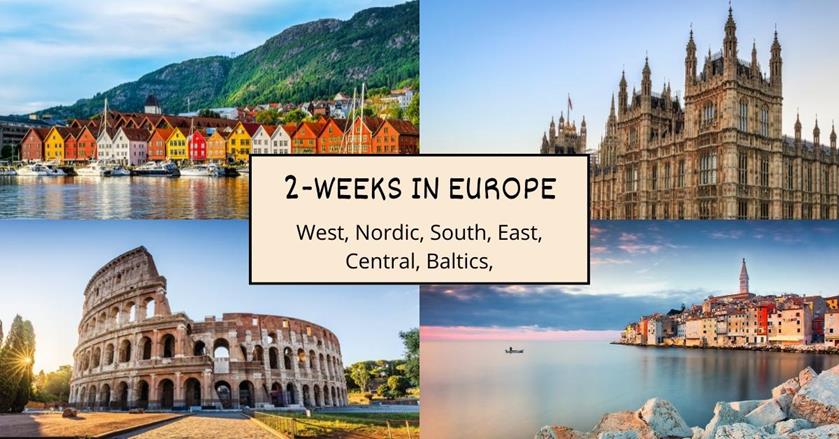
Before you go book your flight and hotels, take a look at the information below first. It will help you visualise and plan your itinerary better. You can get ideas on when to go, how to travel around, and what to pack.
When is the best time to go to Europe
This depends on what you plan to do. Most people go to Europe during summer, but of course, if you want to ski, come between December and February. I personally love going in spring and summer, during autumn, it’s also very pretty but it rains a lot.
You might want to consider travelling during the off-season because this is when there are fewer travellers and the prices of accommodations and tours aren’t sky-high so you’ll be able to save quite a bit.
Getting around Europe
The best way to get around Europe is to rent a car especially if the country you’re visiting are next to each other or have an open border agreement. It’s cheaper and gives you freedom of your time.
However, if you are crossing countries and they are not next to each other, you are probably better off flying than doing a long drive. Check first if your driver’s license is valid in Europe and check what type of cars each country you are going to have.
For example, Italy, Spain, and France are known for using a stick or manual transmission. While the UK and Ireland drive on the left.
Buses and trains are quite reliable and affordable. But there are also domestic flights which are affordable as long as you don’t pack too much unless you are willing to pay extra.
Language and currency
There are over 24 official languages in Europe. You should be able to get around with English but it’s important to also learn basic words to show respect for each country’s culture and easily communicate with locals.
Luckily though, most countries in Europe use Euro, except in the UK, Nordic countries, and maybe some countries in East Europe. It’s easy to pay with credit cards but carrying cash with you for emergencies is still advisable.
Visa and COVID-19 policy
Each country has different visa rules, however, if your destination is an EU member, they have the same visa policy; 90 days visa-free for visitors with a passport from North America, some Latin America, some Southeast Asia and East Asia, and most Oceania. This also applies to non-EU countries such as Switzerland and Norway.
For visitors with a passport from the EU or a European country, you should have freedom of movement for unlimited time except for some nationalities such as the UK and countries in East Europe.
Europe is open to COVID-1 vaccinated tourists. If you are unvaccinated, best to check if your destination has extra entry requirements. Depending on the airline and destination, you might be required to submit a test before boarding.
Wearing a mask is no longer required in many places in Europe, but it’s smart to carry one just in case you get to countries that still require them. Read about the EU reopening .
What is the average cost for 2 weeks in Europe
As diverse as the European culture is, the cost also varies a lot. The budget for 14 days in Europe depends on a few things such as the countries, type of tours, accommodation, and how you plan to move around.
$800 in Eastern Europe will not work for Scandinavia. $800 is a tight budget, but it might work for more affordable countries such as Eastern Europe or the Baltics (assuming this excludes the flights to the region and back). $1,000 will be fine for southern-east Europe, and $1,500 will be decent for central Europe. While west Europe and the Nordics plan to spend around $3,000.
The accommodation will cost the most expensive, but the food can be budgeted. Then the transportation. You can either use public transport or rent a push bike when moving around the cities. Take the bus or train when travelling to the next country or ride a plane.
Travelling during the peak season will also cost a lot more. Check under each itinerary to see the average cost of a 2-week trip in Europe.
Other basic travel tips
Planning a trip can be exhausting and often overwhelming. To make it a bit easier, I use travel sites and services that have flexible cancellation policies in case I change my mind or my travel dates. Here’s a list of travel tools I use. From flight selections, affordable hotels, wide-range options for car rentals, and even affordable travel insurance.
TOP PLACES IN EUROPE (pinned map)
Click the icon on the top right to enlarge the map. Credit: map data: Google
2 WEEKS IN EUROPE ITINERARIES
I will show your six itinerary options to choose from for your 14 days in Europe. Covering multiple countries and featuring famous attractions that are historical, cultural, and outdoor activities.
Deciding where to spend your 2 weeks in Europe can be hard. Should it be in Spain or Portugal? How about both? Should you visit Rome or Paris ? When unsure, there are a few things you can do to see which places are more suitable for you.
For example, Rome would be ideal if you love historical sites such as ruins. Perhaps you like history, but in the form of art, then Paris is the one. For food lovers, don’t miss visiting France, Spain, Italy, and Greece.
Itinerary #1 South Europe: Spain and France or France and Italy
We have two sub-options in our first itinerary for your 2 weeks in Europe. This includes either Spain and France or France and Italy. Spain is well-known for its lively culture, flamenco, arts, and literature, as well as its wines, beaches, and, of course, football.
If you feel like this itinerary is a little too expensive, you can instead go to Portugal. Take a look at how to spend 2 weeks in Portuga l or even just a few days in Lisbon. Spending 14 days in Southern Europe is a good place to do your first trip to this continent.
France, on the other hand, is well-known for macarons, wine, champagne, great pastries, as well as fashion, museums, and other historical sites. You could also do many water activities in France or if you plan to come during winter, you can head to the Alps for some skiing.
Italy is loved for its opera, its art cities, unique scenery, and good food. They are also among the four fashion capitals, with luxury brands, and of course, who could forget the Vespa?
If you have never been to Italy, make sure you visit Venice, Rome, Florence, and the southwest coast, where you can visit Naples for Amalfi and Sorrento. You can also consider 2 weeks in Greece for this itinerary. Not to mention, the south is a famous region to spend honeymoon in Europe .
Spain for 7 days
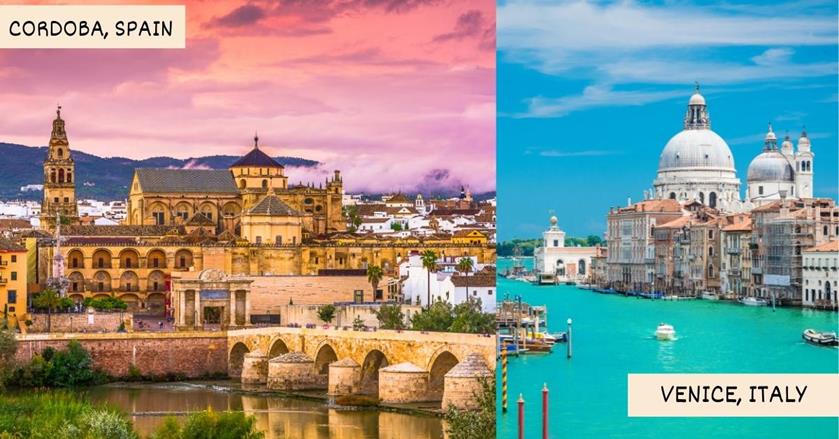
Spain is one of the most popular destinations in Europe, not only for foreign visitors but also for other European nations. With its stunning beaches, yummy food, and very welcoming culture, Spain is undeniably a must-visit when you come to Europe for 2 weeks.
Most people go to Madrid, the capital of Barcelona, a coastal city. However, if you want to get away from big crowds, head to Seville, Valencia, or even Zaragoza. For young travellers who love to dance and party, Ibiza is a top spot, while Palma, Tenerife, and Gran Canaria are awesome islands to explore and spend your vacation in.
We have a specific 2 weeks in Spain itinerary , which might help you plan a trip there if you decide to spend your trip in one European country only.
Here are some of the top-rated attractions in Spain :
- Alhambra and Generalife in Granada
- Palacio Real in Madrid – get your ticket in advance
- El Escorial near Madrid
- Aqueduct of Segovia – north of Madrid
- Sagrada Familia and Gaudi Sites in Barcelona – check tour prices
- Great Mosque in Cordoba, near Seville
- Guggenheim Museum in Bilbao
- Beaches of Gran Canaria
France for 7 days
Some of the options to reach France from Spain include flying, taking a train, riding the bus, using rideshare or driving. The most recommended option is to ride a plane, but if you have plenty of time, you should consider renting a car and driving on your own. We have an article with 3 different itineraries on how to spend 2 weeks in France .
France is a country famous for many reasons. The food is great, it is rich in culture, the abundance of historical sites, and thousands of wineries to explore. France is also known for Tour de France and is a great holiday destination any time of the year. You should geat a hop-on hop-off bu s that will take you to the top attractions of Paris.
Paris is an obvious place to visit, but if you don’t like big cities or have been here before, you can consider other places. For history buffs, head to Calais, Dunkirk, and Normandy. For those who love the outdoors, check out Lyon, Marseille, Nice, and Bordeaux (aka the Basque region).
Here are some of the top attractions n France:
- The Louvre in Paris – book a guided tour
- Cathédrale Notre-Dame de Chartres near Paris
- Eiffel Tower in Paris – get your skip-the-line ticket in advance
- Chateau de Versailles in Paris – visit with a garden access
- Mont Saint Michel
- Loire Valley Chateaux
- Côte d’Azur aka French Riviera in the South
- Provence for lavender fields
- Chamonix-Mont-Blanc for skiing in the Alps
Italy for 7 days
To reach Italy from France, you could either take the train or fly but taking the train is preferred by most tourists and locals alike because you’ll be able to reach your destination in less than five hours anyway. There are tons of routes to choose from if you want to see some interesting scenery and plan to drive instead.
2 weeks in Europe have to include Italy. It is loved for its dishes to die for, beautiful castles, amazing hiking trails, and warm culture. Just like in Spain and France, wine in Italy is world-class and their historical sites are well preserved.
Before you book anything, decide where you want to go. Rome and Venice are the top places to visit in Italy. But if you have been there, it’s time to explore Florence, Milan, Bologna, and Genoa in the north. For the south, head to Naples, Sicily, and all the way to Palermo. Check out our 4 itineraries for 2 weeks in Italy .
Some of the top tourist attractions in Italy include :
- Colosseum in Rome – get your ticket in advance to skip the very long queue
- Spanish Steps in Rome
- Trevi Fountain in Rome
- Venice Grand Canal – don’t skip the romantic gondola ride
- Gode Palace and St. Mark’s Basilica in Venice – explore with a tour guide and secure a ticket
- Leaning Tower of Pisa
- Vatican City near Rome; Basilica of St. Peter, Sistine Chapel & Vatican Museums – you can visit this in one go
- The Uffizi Gallery in Florence
- Cathedral of Santa Maria del Fiore in Florence
- Lake Como near Milan
- Cinque Terre
- Amalfi Coast
- Pompeii and Mount Vesuvius in Naples – visit this and the entirety of Naples on a day trip from Rome
Travel cost
These three destinations are one of the most expensive places in Europe. Budget around $2,000 for a 2-week trip around Spain, France, and Italy not including the flights from your location and back. Accommodation will be the most expensive cost while food is quite affordable in these places.
Of course, if you want to travel with luxury, you can easily spend $3,000-$5,000 which will allow you to stay at 4-5 star hotels, dine at fancy restaurants, and take a private car with a driver anywhere.
For those on a tight budget, $1,500 is possible , however, you will likely stay at youth hostels and share a room with other people in dorm/bunk rooms or even look at Couchsurfing. You can also save more money by looking at ready-to-eat meals at grocery stores or cooking in the hostel is possible. Join a free walking tour where you will be expected to give a tip based on the tour guide and the tour itself.
Itinerary #2 Central Europe: Germany and Poland
For this next itinerary, we’ll be covering 2 weeks in Central Europe, which consists of the countries Germany, Poland, Switzerland, Liechtenstein, Austria, Czechia, Slovakia, and Hungary. However, in this itinerary, we’ll only be covering Germany and Poland.
Germany is well-known for its cathedrals, castles, palaces, and colourful architecture, as well as its sausages and beers. It has many historical sites relating to World War I and II. Berlin is loved for being vegan-friendly, but meat-eaters shouldn’t have a problem finding their way around restaurants either.
Conversely, Poland is famous for its food, stunning geography, folklore, history, and friendly locals. In Poland, you’ll find Europe’s most ancient forest, Medieval Castle, the infamous Auschwitz-Birkenau Camp, amazing museums, and more.
Apart from that, you can also visit theme parks in Poland, such as Engerylandia Theme Park, Rabkoland, and Aquapark Sopot.

Germany for 8 days
Germany has so many things to offer that it would take 8 days to satiate your curiosity, and even then, you would barely scratch the surface. Don’t overwhelm yourself trying to see everything in 8 days. If you want t visit Germany only, we have these 2 weeks in Germany itineraries .
Most people will go to Berlin or Munich, but there are also other cities such as Hamburg, Frankfurt, Nuremberg and Cologne to name a few. I highly recommend you rent a car to move around easier, but taking a domestic flight or the train is also easy and affordable.
If you’re going to Berlin, the best way to see all the top attractions is by buying a hop-on hop-off bus with live a tour guide .
Here’s a list of the top attractions in Germany:
- Brandenburg Gate in Berlin
- Berlin Wall
- Cruise the River Spree – book a 2.5-hour boat tour
- Museum Island in Berlin
- Sachsenhausen Memorial – visit with a tour guide
- Neuschwanstein Castle near Munich
- Linderhof Palace near Munich – book a combo tour with Neuschwanstein Castle
- Marienplatz in Munich
- Pay respects at Dachau Concentration Camp – join a tour from Munich
- Kölner Dom in Cologne
- The Black Forest, Baden-Württemberg, near Stuttgart
- Miniatur Wunderland at Port of Hamburg
- Bamberg and the Bürgerstadt near Nuremberg
Poland for 8 days
There are tons of modes of transportation from Germany to Poland, including boarding a plane, using rideshare cars, trains, buses, or driving. Flights between these two countries are frequent and affordable.
Poland has a dark history, but the country is more than that. It has stunning lakes, UNESCO sites, and rather interesting cuisine, and it is in the top 20 safest countries in the world – a great place to discover if you are travelling alone.
Poland also has the biggest castle in the world, and many believe that vodka originated in Poland. In winter, you can ski in Poland, which is more affordable than France, Switzerland, and even Italy.
Many foreigners get confused and think Krakow is the capital of Piland, but it’s actually Warsaw. Apart from these two cities, you can also visit Gdansk, Wroclaw, Katowice, and Lublin. Most of the cities are connected via buses and trains hence moving around during your 2 weeks in Europe shouldn’t be a problem.
>>TIP: Check out our 2 weeks in Poland post if you prefer to explore that country on a single trip. There are two itineraries to choose from.
Here are some of the top tourist attractions in Poland:
- Wieliczka Salt Mine near Krakow
- Auschwitz- Birkenau Camps near Krakow – book a guided tour or combine it with the Wieliczka Salt Mine tour
- Oskar Schindler’s Enamel Factory in Krakow
- Wawel Royal Castle in Krakow
- Warsaw Old Marketplace
- Lazienki Park in Warsaw
- Malbork Castle near Gdansk
- Morskie Oko Lake and Hot Bath Pools near Zakopane – check tour prices
- Crooked Forest near Szczecin
Travel cost:
Central Europe in general can be costly, but only if you plan to visit Germany, Austria, and Switzerland. Poland and Czechia are both affordable destinations compared to their neighbouring countries. $2,000 will take you a long way if you choose one expensive place to spend a week and the other one is a more affordable country (e.g Germany and Poland or Switzerland and Czechia).
You can save even more money if you focus on Poland or Czechia only or book a trip to Switzerland just for 2-3 days instead of an entire week.
$5,000 will be a great budget for a luxury trip . This is suitable for couples who are on their honeymoon or retiree travellers. For young visitors and backpackers, you can probably get away with $1,000 to $1,500 for the 2 weeks trip .
Accommodation in Germany, Switzerland, and Austria is costly but affordable in Poland and Czechia. Rely on using public transportation in all countries, such as buses and trains, instead of renting a car or flying.
Itinerary #3 Baltics: Lithuania, Latvia, Estonia
The Baltics are one of the most affordable regions in Europe. Although it has its fair share of tourists, the streets and attractions don’t get too busy, even during the summer season. It’s an awesome place to spend your 2 weeks in Europe vacation without being surrounded by a big crowd.
Lithuania is famous for its natural scenery, including forests, lakes, flatlands, and other landscapes. There are also historical spots here to visit, and you must try their local ciders. I personally loved their local food, especially beetroot. If you’re a foody, check this Vilnius food guide for a list of must-try dishes.
Conversely, Latvia is known for its UNESCO World Heritage Sites and art nouveau architecture. It’s on the coast, hence if visiting during summer, don’t forget to dip your toes.
Last but definitely not least is Estonia, which is famous for its dense woods, thousands of uninhabited islands, and rich history. It experienced a boom in tourism recently since it implemented a digital nomad visa.
Estonia is among Europe’s most linguistic nations, is one of the countries with the cleanest air in the world, and half of the country is made up of forest, which probably explains the great air quality. We also have two itineraries specifically for 2 weeks in the Baltics only or 2 weeks in Eastern Europe itineraries .
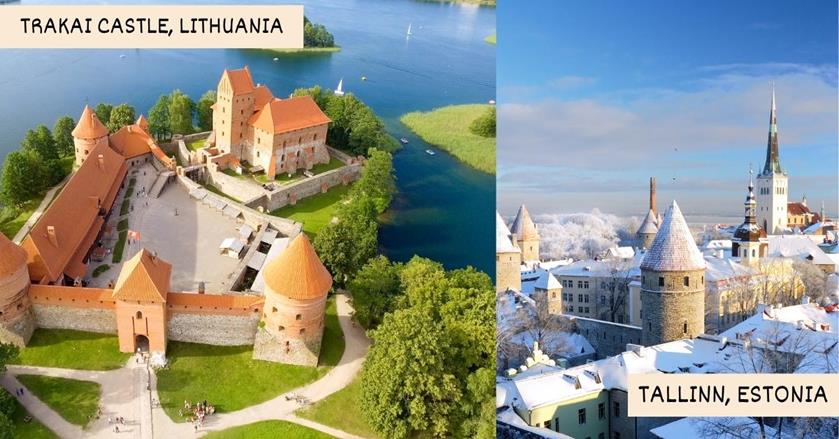
Lithuania for 5 days
Lithuania is rich in cultural preservation, so much so that UNESCO considered their folk dance as one of the intangible cultural heritages. They also have one of the oldest languages, even older than Greek, German, and Celtic, and the oldest tree in Europe could be found here as well.
With five days in Lithuania, you can do and see a lot of things. You can cover at least two major cities; the capital city Vilnius, and the cultural art city of Kaunas. If it’s warm enough, head to the coast and visit Klaipeda.
Here is a list of the best places to see in Lithuania:
- Gediminas Castle Tower in Vilnius
- Vilnius Cathedral Square
- Hot Air Balloon Flight – over Vilnius or Trakai Castle
- Energetikos ir technikos muziejus in Vilnius
- Museum of Occupations and Freedom Fights and A.Mickiewicz Memorial Museum in Vilnius
- MO Muziejus in Vilnius
- Gates of Dawn in Vilnius
- Three Crosses Monument in Vilnius – join a full-day tour from Vilnius
- Walk around Uzupis
- Trakai Castle near Vilnius
- Kaunas Castle
- Devils’ Museum in Kaunas
- Hill of Crosses near Šiauliai
Latvia for 4 days
You can go to Latvia from Lithuania by driving, riding a bus, plane, or taking the train. The most recommended option is through riding a bus as it is the cheapest and fastest. Latvia is also a great destination during summer. You can take a swim on its sandy beaches, lakes, and rivers.
You can either spend the entire 4 days in Riga, the capital city or take day trips to see Gauja National Park and Turaida Museum Reserve for example. You can also explore Riga on a segway tour .
Here are some of the top tourist attractions in Latvia :
- House of the Black Heads in Riga – get your ticket in advance
- Riga Cathedral
- Three Brothers, Latvian Museum of Architecture
- St. Peter’s Church
- The Freedom Monument in Riga
- Shop souvenirs at Riga Central Market – join a food-tasting tour
- Gauja National Park outside of Riga
- Rundale Palace and Museum ner Jelgava
Estonia for 4 days
To reach Estonia if you’re coming from Latvia, you could board a plane, ride a bus, take the train, or drive. The most recommended option would be to ride a plane as it’s the fastest, but the cheapest option would be to take the bus.
Estonia is very unique, they have islands but are inhabited – and that makes them interesting to visit. There, you can go fishing, sailing, canoeing, kayaking, and for those who love birds, birdwatching is a popular thing to do in Estonia.
Tallinn, the capital, is obviously the most popular destination. However, with 2 weeks in Europe, around the Baltics, you can also head to Parnu and Tartu – both are located in the south of Estonia. Go to Haeska, Kabili, and Matsalu for birdwatching and wildlife experiences.
Here are some of the sights to see in Estonia :
- Tallinn’s Old Town
- Lennusadam Seaplane Harbor in Tallinn
- Lahemaa National Parl – sign up to a day trip
- Patarei Prison Exhibition/Communism Prison in Tallinn
- Parnu’s Beaches
- Alpakafarm near Parnu
- Estonian National Museum in Tartu
- Tagurpidi Maja (Peapeal OÜ) / Upside Down House in Tartu
- TYPA Letterpress and Paper Art Centre in Tartu
- Kuressaare Castle in Saare
- Join a 3-hour food tour
Travelling around the Baltics is one of my favourite destinations and one I recommend if you’re on a budget. You will still experience the European culture, walk through the alleys and paves with cobbled stone, and eat delicious meals.
It’s honestly possible to travel here for around $1,000 for those on a budget . You will stay in a hostel and consume street food or grocery store meals. The tours also don’t cost that much. Accommodation is around $25 to $35 a night, but transportation is cheap.
$2,000 is the average cost where you get to have a private room and try out a few local restaurants. For a luxury trip, $3,000 will get you very comfortable.
Itinerary #4 East Europe: Hungary and Croatia or Romania and Bulgaria
East Europe is a massive region. You will have to choose 2-3 countries to cover during your visit and perhaps next time, you go to new places. Right now, we’ll only cover 4 destinations for your 12-day in Europe itinerary; Hungary and Croatia or Romania and Bulgaria.
Croatia has so much to offer, but in the last few years, being the filming location of Game of Thrones, this country attracted more tourists. Aside from that, they also have stunning waterfalls and gorgeous Adriatic Islands, among other landscapes.
Hungary on the other hand is famous for its ruin bars, paprikas, and goulash. It also has sought-after outdoor and public thermal bars and great nightlife. Outside the city, Hungary has a lot of nature preserves and can be an affordable ski destination in winter.
Bulgaria is the oldest country in Europe and has tons of hot springs. It’s undeniable how affordable Bulgaria is as a travel destination. It also sits right on the Black Sea, a popular spot during summer.
Nightlife in Bulgaria is another reason tourists come here for its affordability. Speaking of cuisine, the traditional Bulgarian food is something of a must-try.
Romania is famous for its Carpathian Mountains, Salt Mines, and Medieval Fortresses. Just like Bulgaria, it’s also located on the Black Sea. One might want to visit Romania since it’s famous for being the home of Dracula.
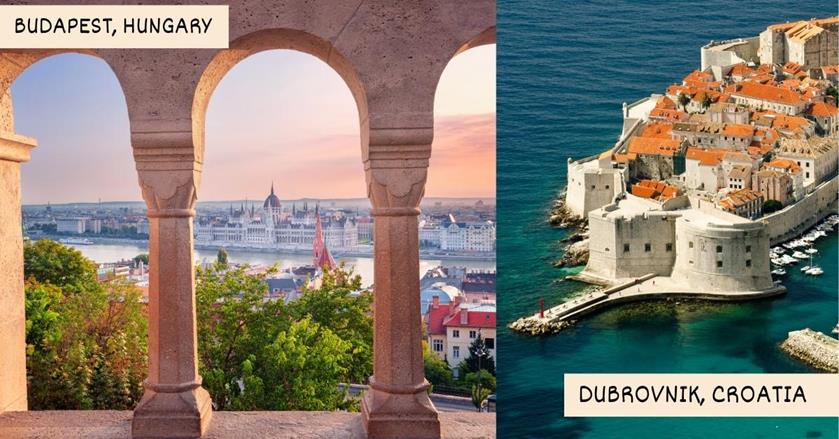
Hungary for 7 days
Hungary, like many other European countries, is a landlocked country. But it doesn’t mean you can’t enjoy summer in Hungary. This country has over 1,000 natural springs water, hence, the popularity of its thermal baths.
Budapest is not the only city worth visiting in Hungary, you should also consider Debrecen and Szeged. While Balaton Uplands National Park is the spot to you want to go hiking, join wine tours, and be around nature.
Here are some of the top tourist attractions in this country :
- Hungarian Parliament Building in Budapest
- Budapest’s Széchenyi Thermal Bath – book a full-day spa
- Buda Castle
- Buy souvenirs at Central Market Hall
- Take a boat cruise Danube River in Budapest – check cruise prices
- Matthias Church in Budapest
- Esztergom Basilica
- The Caves of Lillafured near Miskolc
- Lavender field at Tihany
Croatia for 7 days
It is relatively easy to travel to Croatia if you’re coming from Hungary as they are neighbouring countries. You could travel by bus, by train or by driving. Any option is fine, but the cheapest option would be to ride the night bus.
As mentioned before, Croatia is now popular for being the filming location for Game of Thrones, but there are other places to see in this magnificent country. Just like its neighbouring country of Italy, Croatia is also a fantastic beach destination and so much more affordable.
Zagreb is the capital of Croatia and a must-visit, then you can go to the coast. The most popular city is Split and Dubrovnik, but Zadar, Hvar, and Pula are an equally stunning area for swimming and other water activities.
Want to spend 14 days in Croatia ? Our guide has three itineraries you can check out and see which one suits you best.
Some of the top tourist attractions in this country include :
- Dubrovnik’s Old Town Walls – join a walking tour
- Trsteno Arboretum, Trsteno near Dubrovnik
- Dubrovnik’s Lovrijenac Fort
- Visit Game of Thrones filming locations – book a tour
- Nikola Tesla Technical Museum in Zagreb
- Diocletian’s Palace in Split – enjoy a walking tour with a local guide
- Blue Cave, near Split – book the 5 island boat tour
- Krka Waterfalls, near Split – visit on a boat tour
- Plitvice Lakes National Park near Zadar
- Kornati National Park near Zadar
- Euphrasian Basilica in Porec
- Pula’s Roman Arena
- Swim at Galebove Stijene in Pula
- Explore Brijuni/Brioni National Park near Pula
- Mulini Beach in Rovinj
Romania for 7 days
A massive country in East Europe, Romania has a lot to offer. From national parks, vibrant cities, historical sites, and beach access to the Black Sea. Bucharest is known for great nightlife, but apart from that, it’s also rich in cultural and historical spots.
Other than Bucharest, you have to go to the Transylvanian region, known as the home of Dracula. If it’s warm enough, head to Constanza, while Brasov and Cluj-Napoca are the areas to go to during winter for skiing and other winter activities.
Here are some of the places you could visit once you reached Romania:
- Romanian Athenaeum in Bucharest
- Grigore Antipa National Museum of Natural History in Bucharest
- National Museum of Romanian History in Bucharest
- Dimitrie Gusti National Village Museum in Bucharest
- Vaser Valley Forestry Railway
- Bran Castle aka Dracula’s Castle in Transylvania – book a tour combo with Peles and Brasov trip
- Sighisoara Historic Center
- Covered Stairway in Sighisoara
- The Clock Tower in Sighisoara
- The Black Church in Brasov
- Peles Castle near Brasov – book a 2-day tour from Bucharest to visit Brasov, Sibiu, and Sighisoara
- Bucegi Natural Park near Brasoc
- Transylvanian Alps
Bulgaria for 7 days
Just south of Romania, you can reach Bulgaria by train, bus, or driving. The quickest option would be to drive, which would take you more or less five hours, but the cheapest option is by riding a train.
Another country with the best nightlife, Bulgaria is popular with young tourists. But it doesn’t mean non-partygoers cannot enjoy Bulgaria. This country is a great place to explore the outdoors. There are many hiking trails and to ski here, you don’t have to spend too much.
Head to the capital city, Sofia, but for winter sports, you can go to Bansko, Borovets, and Pamporovo. If you are coming during the warm months, you can still go to the Black Sea by heading toward Varna.
Some of the top spots in Bulgaria are:
- National Palace of Culture in Sofia
- Sofia History Museum
- Rila Monastery – visit with combo tour to Boyana Church
- Seven Rila Lakes – check tour price from Sofia
- Tsarevets Fortress in Veliko Tarnovo
- Belogradchik Rocks
- Prohodna Cave in Karlukovo
- Krushuna Waterfalls
- The Rose Valley near Kazanluk
- The Ancient Theatre of Philippopolis in Plovdiv – join a tour of Plovdiv, Asen’s Fortress, and Bachkovo Monastery
- Pirin National Park near Plovdiv
- Thracian Tomb of Sveshtari near Shumen
East Europe is one of the most affordable regions in Europe. The accommodation alone can range between $20-$30 while food and the use of public transportation are also very affordable.
It’s easy to travel on a budget in eastern Europe, around $800 is feasible for backpackers and young travellers. If you want to be comfortable, $1,000 will be great and get you your own private room and dine at restaurants. $2,000 can easily be a luxury trip in this region for a 2-week adventure.
Itinerary #5 Nordic: Iceland, Norway, and Denmark
The next option would be the Nordic countries, which consist of Norway, Iceland, Sweden, Finland, and Denmark. However, in this itinerary, we will only cover Norway, Iceland, and Denmark.
Norway is also known as the Land of the Midnight Sun. It is famous for its fjords, lakes, and magical skies (Aurora Borealis), as well as Viking culture and folklore.
Iceland is also famous for a lot of natural wonders such as geysers, active volcanoes, and glaciers. You could also see the Northern Lights here. Iceland is relying 100% on renewable energy; hydropower, and geothermal.
Last but definitely not least is Denmark, which is well-known for its coastal towns, architecture, Royalty, and cuisine. Copenhagen is a must-visit. If you find yourself with extra time, you can hop on a train and head to Sweden.
You can also just visit Denmark, Norway, and Sweden using our 2 weeks in Scandinavia itinerary .

Iceland for 4 days
Iceland is the land of fire and ice, and you might be wondering why. They have glaciers but have volcanically heated pools at the same time, where you could swim all year round. That’s pretty fascinating.
Aside from that, it is also a literary-focused country. In fact, one out of ten Icelanders will publish a book even at least once in their lifetime.
Iceland is not a big country, but spending four days here is plenty. Most tourists love staying in Reykjavik, but you don’t have to. If you want to save money, you can stay outside the city and rent a car instead. You can easily move around in your own car, which means it doesn’t matter if your hotel is not in the city.
We have a complete guide and itinerary for 2 weeks in Iceland .
Top attractions in Iceland:
- Drive the Golden Circle
- Blue Lagoon – get your ticket in advance including Kerid Volcanic Crater
- Gullfoss Falls
- Seljalandsfoss
- Silfra – snorkel between 2 tectonic plates between North American and Europe
- Þingvellir National Park
- Jökulsárlón
- Chase the Northern Lights – join a tour to find the best spot
- Icelandic Phallological Museum
- National Museum of Iceland
- Reykjanesfólkvangur
- Whale Watching near Reykjavik – book a cruise
- Eystri-Fellsfjara / Diamond Beach
Norway for 6 days
You will need to ride a plane to reach Norway if you’re coming from Iceland. The fastest route takes more or less 6 hours. However, the journey would be worth it because there are so many sights and sceneries once you reach Norway.
This includes the world’s longest road tunnel and the world’s most remote island, among others. This is also an amazing place to ski during winter.
Many tourists usually go to Oslo and Bergen, but you can also add Stavanger, Kristiansand, and Tromso to your itinerary of 2 weeks in Europe.
If you want to see Fjords, you have to head west; from Trondheim all the way down to Stavanger. Check our 2 weeks in Norway itinerary list if you only want to see this country.
Here is a list of some of the best places to visit in Norway:
- Bygdoy Peninsula in Oslo
- Vigeland Sculpture Park in Oslo
- Viking Ship Museum in Oslo
- Naeroyfjorden
- Akershus Fortress in Oslo
- Oslo’s Fjords – check tour prices or a cruise to Nærøyfjorden, Flåm, and Stegastein
- Hanseviertel Bryggen in Bergen
- Sognefjord near Bergen
- Osterrjod and Mostraumen near Bergen – join a cruise
- Pulpit Rock (Preikestolen), in Stavanger
- Lofoten Islands
- Geirangerfjord
- Arctic Museum in Tromso
- Find the Northern Lights from Tromso – book a guided tour
- Atlantic Ocean Road
Denmark for 4 days
To reach Denmark from Norway, the best would be to take a plane. There is also a car ferry service, but with a limited time, it’s not ideal. Denmark has the oldest Monarchy in Europe.
Denmark is a small country but popular not only in Europe but around the world. For many years, it has been voted the happiest country in the world. It’s also known for being safe for tourists, the home birth of lego, and has the oldest monarchy in Europe and the oldest flag in the world.
Naturally, visitors will go to Copenhagen, but since the country (excluding Greenland and the Faroe Islands) is not that big, 4 days in Denmark is plenty
You can explore the entirety of Copenhagen and even have time to go to Odense, where the famous children’s book author Hans Christian Andersen was born. You can actually get to the city centre from Copenhagen airport in just 13 minutes – a great way to save time.
Here is a list of some of the best attractions in Denmark:
- The Little Mermaid (Den Lille Havfrue) – explore Copenhagen in a day
- Freetown Christiania
- The King’s Garden
- Amalienborg
- Rosenborg Castle
- Tivoli Gardens – get your ticket in advance
- Botanical Garden
- The Round Tower
- Memorial Anchor
- Copenhagen Opera House
- Walk around Strøget
- Ny Carlsberg Glyptotek
- Christiansborg Palace
- Danish Architecture Centre
- Ofelia Plads
- Legoland in Billund
- Hans Christian Andersen’s Childhood Home
- H. C. Andersens House
Nordic and Scandinavia is undeniably the most expensive place to travel around Europe. Accommodation alone could run $100, and dining and consuming alcohol are costly as well. But taking the bus and train is a little bearable.
To ensure that you will enjoy your 2 weeks in Europe around this region, plan to spend about $2,000 . If you are on a budget, you can probably do it for $1,700 but no less. But for l uxury, your trip cost will really skyrocket up to $5,000 .
Itinerary #6 West Europe: The UK, Netherlands, and Belgium
The last itinerary option for your 2 weeks in Europe includes the countries the UK, Netherlands, and Belgium, also known as the west of Europe.
The UK is popular for many things, including its monarchy, culture, history, and performers. Being the home of four different countries; England, Scotland, Wales, and Northern Ireland, you can easily say that it’s worth a visit. From bustling cities, amazing hiking trails, pubs to check out, and castles to explore.
There are tons of iconic places in the Netherlands despite it being a small country. The Netherlands is famous for many things . Here, you’ll be able to see windmills, cheese markets, bulb fields, and earthenware, among others. The Netherlands also have plenty of historical spots to discover including Anne Frank’s House.
The last country on our list is Belgium. They have high-quality chocolates, hence the name Belgian chocolate. This country is also well-known for waffles and beer and is the home to NATO headquarters.

The UK for 6 days
There are many things to see in the UK, and six days is definitely not going to be enough. But don’t panic. If this is your first time here, list the attractions you really want to see first. The world-famous Big Ben, London Eye, and River Thames can all be found here, and that’s just in London.
If you have been here before, perhaps, you can now explore less popular areas. Perhaps, you can focus on hiking instead of being in the city or just spend 14 days in England only, especially if it’s your first time.
It’s undeniable that the UK has the most famous monarchy in the world. London alone has a lot of attractions related to the British Monarchy and historical places. In order to make the most out of your trip, the recommended duration of stay is at least five days.
ALSO READ: 2 weeks in the UK , 2 weeks in England , and 2 weeks in Ireland and Northern Ireland itineraries.
List of some best places to see in the UK :
- Tower Bridge
- Stonehenge – book a combo tour with Windsor Castle and Bath
- Buckingham Palace
- The British Museum
- Tower of London and Crown Jewels Exhibition – buy your ticket in advance
- Kensington Palace
- Madame Tussauds – get your skip-the-line ticket
- Shakespeare’s Globe
- St. Paul’s Cathedral
- Book a Harry Potter tour – Warner Bros. Studio
- Scotney Castle
- Bodiam Castle
- Warwick Castle
- Lake District National Park
- Dean Village
- Edinburgh Castle – book a skip-the-line tour
- Palace of Holyroodhouse
- Loch Ness, Glencoe, and the Scottish Highlands – check the tour price from Edinburgh
- Loch Lomond & The Trossachs National Park
- Titanic Belfast – join a guided tour
- Crumlin Road Gaol
- Giants Causeway – visit with a stop at Dark Hedges, Dunluce, and Belfast
- Free Derry Corner
- The Derry Walls
The Netherlands for 4 days
You could either ride the train or drive if you want to reach the Netherlands from the UK. Once you reach the Netherlands, you could experience the biggest ice skating tour in the world, or join a cycling tour. You can also know more about world-famous painters like Van Gogh and Rembrandt.
Four days sounds too little but you can actually do a lot while in the Netherlands. You can of course explore Amsterdam, and head to The Hague, Rotterdam, and Groningen.
Some things to see and do in The Netherlands:
- Jordaan and Amsterdam’s Canals – book the famous canal cruise
- Anne Frank House
- Rijksmuseum
- Mauritshuis
- Van Gogh Museum – enjoy with an audio guide
- The Windmills of Kinderdijk
- Hoge Veluwe National Park
- Valkenburg Castle Ruins
Belgium for 4 days
To reach Belgium, you could ride the train, ride a bus, use rideshare, or drive. The cheapest option would be to use rideshare and the most recommended option would be to ride the train. It would take you almost 3 hours to reach your destination.
The popular cities in Belgium are Brussels which is the capital, Ghent, Antwerp, and Bruges. You can take buses, trains, or rent a car to travel between cities. Don’t forget to go try different beers and waffles which are two of my favourite part of my visit.
Popular attractions in Belgium:
- Grand Palace
- Atomium – get your entry ticket in advance
- Sign up for the famous Hungry Mary’s beer and chocolate tour or join chocolate making class
- Manneken Pis
- Day trip to Bruges and Ghent – enjoy with a tour guide
- The Canals of Bruges
- Battlefield in Flanders
- Belfry of Bruges
- Basilica of the Holy Blood
- Bruges Beer Experience
- Sint-Salvatorskathedraal
- Gravensteen
- Museum Aan de Stroom
- The Rubens House
What I enjoy about travelling in western Europe is how it’s honestly a pricey place but it can be done on a budget. If you think you can stay on your feet for long hours and walking around is not a problem, you can easily cut costs by taking the bus or taxi. The accommodation will surely get you, but dining can be affordable.
The street food in all these countries is fun, globally diverse, and easy to find. For budget travellers, $1,700 is required for your 2-week trip and most likely requires you to stay in a youth hostel. $ 2,500 offers comfort and a bit of luxury where you can dine at nice restaurants. $4,000 means you can stay in hotels right downtown and near the top attractions, With this budget, you can even hire taxis during your entire trip.
SUMMARY OF 2 WEEKS IN EUROPE
There are so many countries to choose from if you plan to visit Europe. Fortunately, Europe has amazing transportation between cities and countries, making it easy to travel around even with limited time.
When planning your 14-day itinerary for Europe, don’t try to cram it too much. It’s better to travel a bit slower, see fewer places, but be able to enjoy and process everything you have seen and experienced. Europe is not going anywhere, you can always visit again and check out a new place.
I hope that you found these 2 weeks in Europe itineraries helpful in planning your own.
TO SAVE THIS ITINERARY, PIN THIS IMAGE BELOW:


COMMENTS
Totally a scam, so watch out for that if you decide to go. Otherwise the prices are pretty average and definitely doable with 2k :). That is a lot of cities for a two week trip. You need to consider that traveling to each city will take at least 1/2 a day. Recovering from a long haul flight is a least 12chours.
Italy is much cheaper than those though, with accomodation and travel to pay for and food etc, I'd say an average of €60 euro each per day there. Have a great trip. I'd not counting plane tickets/ transport costs anywhere from $1500 ($50/day budget- pretty slim/hostel staying budget traveling) to like $10,000.
If you want to stay in moderate hotels reasonably close to the city center. Then you are looking at 300 to 400 per night. You can save a little by staying a long way away and use public transit to get in. You can save some money on food by buying at a supermarket or street vendor.
In the mode expensive countries, we cooked a couple meals at home, otherwise, we mostly ate out. Free and low cost activities only with a couple exceptions. Pre-Trip expenses: One-way flight to Germany - 290€ | 315$ USD | $ $450 AUD Travel Insurance for 3 months (medical only) - €150 | $160 USD | $230 AUD
For someone who is going to stay at a hotel, eat all meals out, and do some guided tours, I would probably budget $100/day for western/northern countries. perhaps $70s for Spain/Italy/Greece. And maybe down to $50s for the east. If you're going to share a room, I'd add maybe $20-40/day for food and tours.
Berlin: 7 nights. London: 7 nights. Amsterdam: 3 nights. Number of travel companions: 1 for 4 weeks and 4 for three weeks. Primary lodging: AirBnb (mix of private room and entire apartment depending on # of friends. Primary travel: trains everywhere expect to London from Berlin. Major Cost Breakdown: Flight (Orlando to Amsterdam): $1200.
Is $2,000 a good max budget for a 19 day Europe trip. So from research so far cheapest travel costs I've found would be around $1,100 so for wiggle room the travel expenses would be around $1,150, which leaves $850 max for things like eating and leisure. To clarify, the $1,100 includes hostels!
Hello, I'm currently exploring the possibility of going to Europe solo for 2 weeks toward the end of this summer. I figure I can swing about $3,000USD for those 2 weeks not including airfare, which I can get heavily discounted with accrued miles. I would most likely be visiting 3 cities starting in London, then Paris, and then taking Ryanair to ...
Nov 6, 2023. One-Month Europe Trip on a Budget: A Full Itinerary and Cost breakdown. This guide includes my full itinerary and cost breakdown for accommodations and transportation between cities. It also contains things to do and where to stay in London, Paris, Ghent, Bruges, Barcelona, Seville, Granada, Cordoba, and Madrid.
More insights into how I travel full-time and what it costs to live and travel in Europe. First, though, let's talk about travel styles… Luna sporting bedhead in Gozo, Malta. What full-time travel looks like for me. First, it's important to say that there's no right or wrong way to travel full time. There's no standard.
If you choose to stay in only one city, bus or train rides are very cheap, ranging from 1 to 3 euros. You can also buy 24 to 72 hour passes. If you choose intercity travel, average prices are: From Lisbon to Madrid: 16 euros; From Madrid to Rome: 26 euros; From Rome to Paris: 23 euros; From Paris to London: 38 euros.
If you're on a budget but not a "backpacker" then you can expect to pay around $90-$225/day — your accommodation choice will make the biggest impact on your daily budget. Note: These are just ballpark figures so your results will vary. Also, these don't include transportation (i.e. train tickets, airfare, etc.).
A transatlantic flight to the US from Europe costs 200-300 US dollars. I know someone who paid only $294 between LHR and JFK on American Airlines. Yet, flying from the US to Europe is 2-3 times as expensive.
Almost all European airlines charge for checked baggage -- and many taxi drivers around Europe will also add on fees for luggage, too. You can avoid this by packing light and right, using things like packing cubes or wearing travel clothing. 10. Do a free walking tour. Most European cities offer free walking tours.
Here are some basic guidelines for how many places you can visit depending on how much time you have: With 7 days: 2 cities OR one city with day trips. With 10 days: 3 cities OR 2 cities with day trips. With 14 days: 4 cities OR a road/train trip through one or two countries. Barcelona, Spain.
Some of the most beautiful beaches are Mykonos, Crete and Santorini. food budget per day: $25-$35. guided tours cost per day: $30-$50. accommodation cost per day: $25-$50. 3-week budget: $1,700-$2,800 (excluding flights to and back) CHECK-OUT: Best itineraries for 3 weeks in East Europe.
The most expensive countries for travel in Europe are currently Switzerland (€266.00), France (€233.73), Liechtenstein (€231.69), Iceland (€190.55), Monaco (€184.47), Luxembourg (€183.97), Denmark (€179.50), Netherlands (€175.49), Italy (€166.54), and Andorra (€164.38). As the smallest of all the continents and with 27 ...
Food: $515. Transportation: $58. Flights: $6. TOTAL: $888. Prior to my trip, I had two main travel gear expenses- my new all-time favorite travel backpack, the Osprey Aura 65, and some Europe-appropriate clothing that I was lacking (dresses, light jackets, shorts, etc.) My 3-month journey abroad began in New York.
Transportation. Cost: Approximately $1,170. Generally speaking, regardless of where you're flying from in Canada, you should be able to find a flight to Europe in the off-season for about $700 ...
But, a good estimate is about $4,280. One time I spent just $2,300 because I focused on doing it for as cheap as possible. Another time I spent closer to $8,000 (for two people) when visiting just three cities. The cost of a Europe trip depends on you, but it's not hard to stretch your travel budget.
In the city, expect to spend $250-500 per night and $150-350 per night in another location. Remember, you can refer to each of my detailed cost breakdowns for specific hotel and itinerary ...
Travel cost. Nordic and Scandinavia is undeniably the most expensive place to travel around Europe. Accommodation alone could run $100, and dining and consuming alcohol are costly as well. But taking the bus and train is a little bearable. To ensure that you will enjoy your 2 weeks in Europe around this region, plan to spend about $2,000.
🏟 Day 1-3: Rome, Italy. Start your 10 day Europe trip in the ancient capital of Italy. Rome is home to endless historical monuments, artsy squares, and scenic lookouts. Learn about the gladiators' world at the majestic Colosseum and admire world-famous art in Vatican City, where the Pope resides.. As touristy as it is, tossing a coin into the Trevi Fountain is a must.
IR Stone / shutterstock.com 1. London, UK. A fantastic place to start your first trip to Europe, London is a huge city with countless things to do.. Naturally, you'll want to take in its highlights, starting with well-known landmarks like Big Ben, the Palace of Westminster, and Westminster Abbey.You can then head down the road and wave to the royal family from outside the gates of Buckingham ...